
U.S. Fulbrighters
-
Home U.S. Fulbrighters
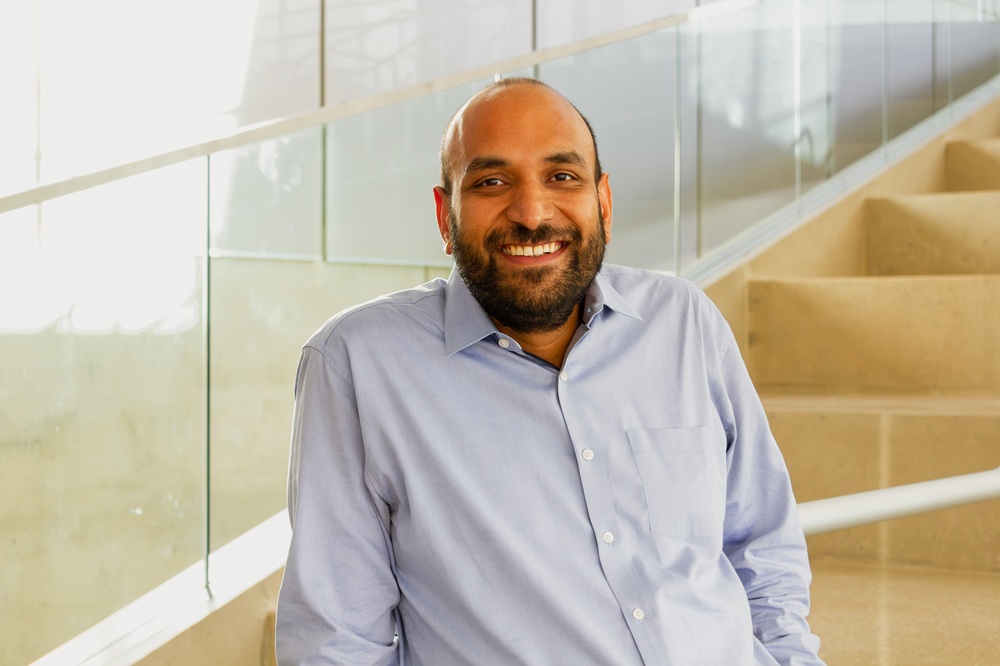
Bhati, Abhishek
Abhishek Bhati
Read more

Abhishek Bhati
| Grant Category: | Fulbright-Nehru Academic & Professional Excellence Award (Research) |
| Project Title: | Impact of Artificial Intelligence (AI) Technology on the Civil Society Sector |
| Field of Study: | Public Administration |
| Home Institution: | Bowling Green State University, Bowling Green, OH |
| Host Institution: | Indian Institute of Technology Delhi, New Delhi, Delhi |
| Grant Start Month: | September 2025 |
| Duration of Grant: | Seven months |
Brief Bio:
Dr. Abhishek Bhati is an associate professor of political science and director of the Asian Studies Program at Bowling Green State University, Ohio. He holds a PhD in public administration from the University of Nebraska, Omaha, and an MA from Tata Institute of Social Sciences (TISS), Mumbai. His research focuses on nonprofit and civil society organizations. Specifically, Dr. Bhati examines how nonprofit and civil society organizations mobilize resources to advance their mission and support public good. He was awarded the Wilson C. “Bill” Fundraising Research Award in 2021 and was a social impact strategy doctoral fellow at the School of Social Policy & Practice, University of Pennsylvania.
Dr. Bhati’s work has appeared in top nonprofit and public administration journals such as Public Administration Review and Nonprofit and Voluntary Sector Quarterly. In 2022, his work received the best paper award from Voluntas: International Journal of Voluntary and Nonprofit Organizations. Beyond his academic responsibilities, he serves on the Planning Commission of the city of Bowling Green.
Dr. Bhati’s Fulbright-Nehru research project is focusing on understanding how nonprofit and civil society organizations (CSOs) are using generative AI tools to advance their mission; it is also studying the potential pitfalls or challenges to the use of this emerging technology. The study is using a mixed-method research design by conducting an online survey and interviews with CSOs and other stakeholders in India. This research aims to benefit CSOs and policymakers by helping them understand the impact of “disruptive technologies” on the global civil society sector.
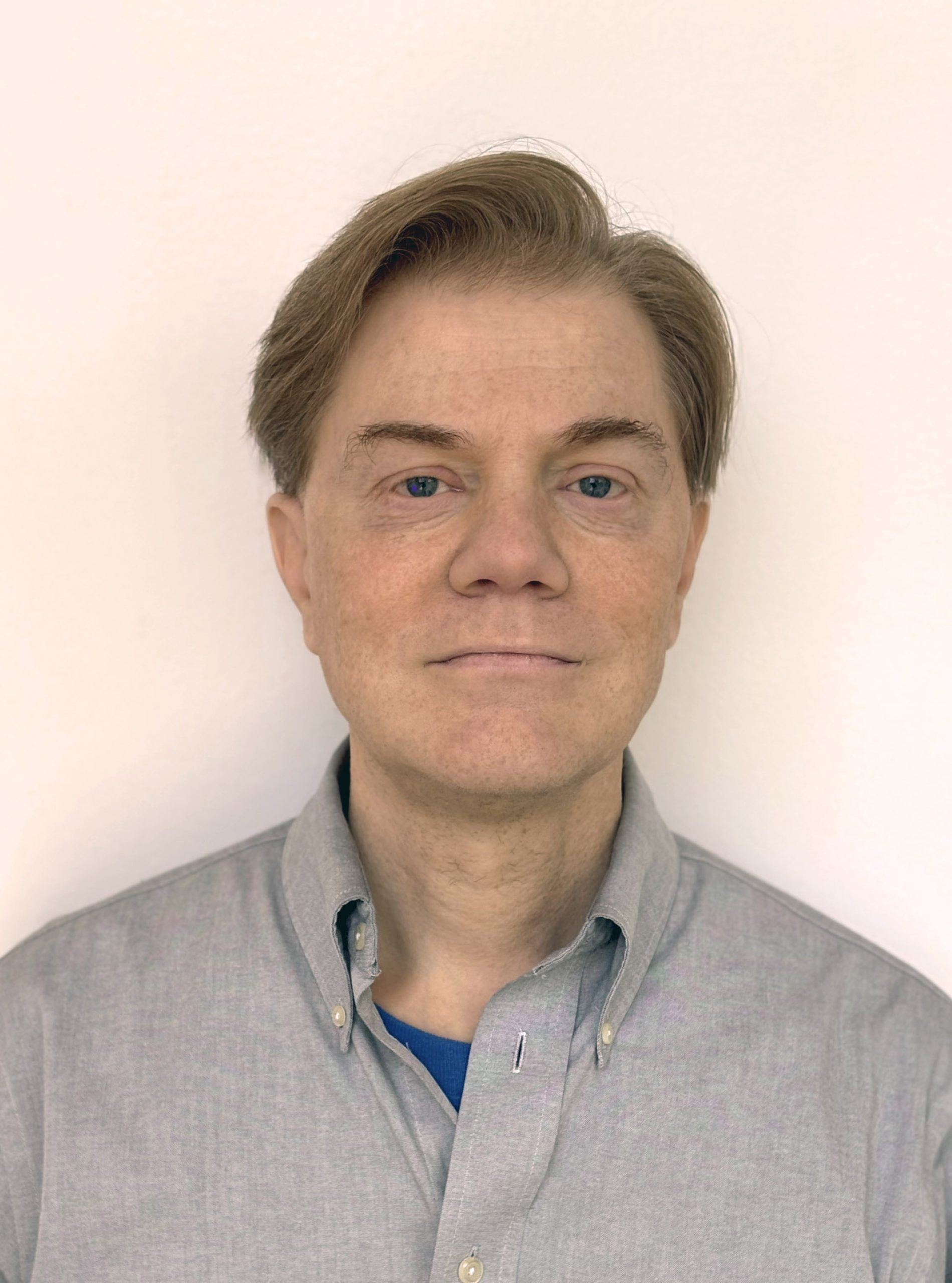
Efurd, David
David Efurd
Read more

David Efurd
| Grant Category: | Fulbright-Nehru Academic & Professional Excellence Award (Research) |
| Project Title: | The Caitya Hall at Karle and Its Milieu: Design and Order in Early Buddhist Monuments |
| Field of Study: | Art History |
| Home Institution: | Wofford College, Spartanburg, SC |
| Host Institution: | Deccan College Post-Graduate & Research Institute, Pune, Maharashtra |
| Grant Start Month: | September 2025 |
| Duration of Grant: | Nine months |
Brief Bio:
Dr. David Efurd is associate professor in the Department of Art and Art History at Wofford College where he also serves as coordinator of Asian studies and co-coordinator of Ancient World studies. He teaches various courses about global artistic traditions which contribute to Wofford’s curricula in Asian studies, Chinese studies, and Middle Eastern and North African studies. He received his PhD in history of art (South Asia) from Ohio State University and his MA in art history from the University of Georgia. Dr. Efurd has also a BFA in painting and drawing from Cornell University where he began pursuing his lifelong interest in darkroom and digital photography.
With South Asia as his research field, Dr. Efurd studies early Buddhist monasteries carved directly into the stone cliffs of western India. His research encompasses interactions among peoples in the ancient western Deccan and the resulting artistic and architectural forms hewn from living rock. His present work focuses on revisiting scholarship from the era of the British Empire to later studies of Buddhist monuments. He utilizes both meticulous examination of archaeological sites and his training in the arts to foster understanding about ancient and contemporary artistic practices throughout Asia. Dr. Efurd’s other scholarly interests include digital humanities and the preservation of cultural heritage sites. He maintains an archive of photographs of caves, architecture, and Buddhist art, which is accessible to scholars all over the world.
Dr. Efurd’s Fulbright-Nehru project is examining holistic design in early Buddhist architecture through data collection via photographic documentation and intensive study of an ancient monastic cave complex in western India. The project aims to offer insights into little-known architectural practices of 2000 years ago, which reflect in the extent and scope of holistic unity attempted by the cave’s creators.
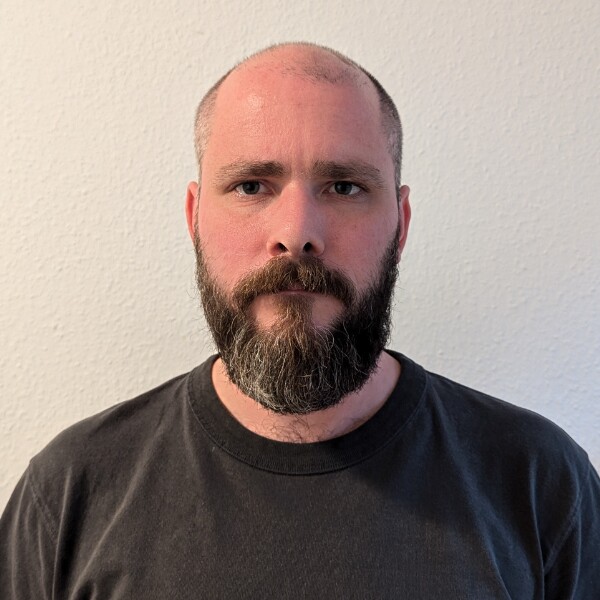
Goulding, Gregory
Gregory Goulding
Read more

Gregory Goulding
| Grant Category: | Fulbright-Nehru Academic & Professional Excellence Award (Research) |
| Project Title: | Central Borderlands: Literature, Landscape, and Identity in a Multilingual Zone |
| Field of Study: | Literature |
| Home Institution: | University of Pennsylvania, Philadelphia, PA |
| Host Institution: | Ashoka University, Sonipat, Haryana |
| Grant Start Month: | January 2026 |
| Duration of Grant: | Six months |
Brief Bio:
Prof. Gregory Goulding is an associate professor in the Department of South Asia Studies at the University of Pennsylvania. His first book, Cold War Genres, was released with SUNY University Press in 2024. His research focus is on mid-20th-century Hindi literature, with a particular interest in ideas of space, aesthetic debates, and conceptions of the international. Some of his recent articles have appeared in Comparative Literature, Modern Asian Studies, South Asia, and the Journal of the Royal Asiatic Society.
Prof. Goulding’s Fulbright-Nehru project is posing Central India as a key location in the literary history of modern South Asia, situating it as an area shaped by its political history as a borderland between Maratha, Mughal, and later British power. He is also studying Central India’s position on the periphery of three modern literary cultures, as well as its landscape of forested mountain and scrubby plateau, home to peoples who articulate radically different ideas of space and belonging. The project aims to intervene in both current understandings of modern South Asian literatures as well as in global understandings of modern literatures after the emergence of monolingual linguistic identities.
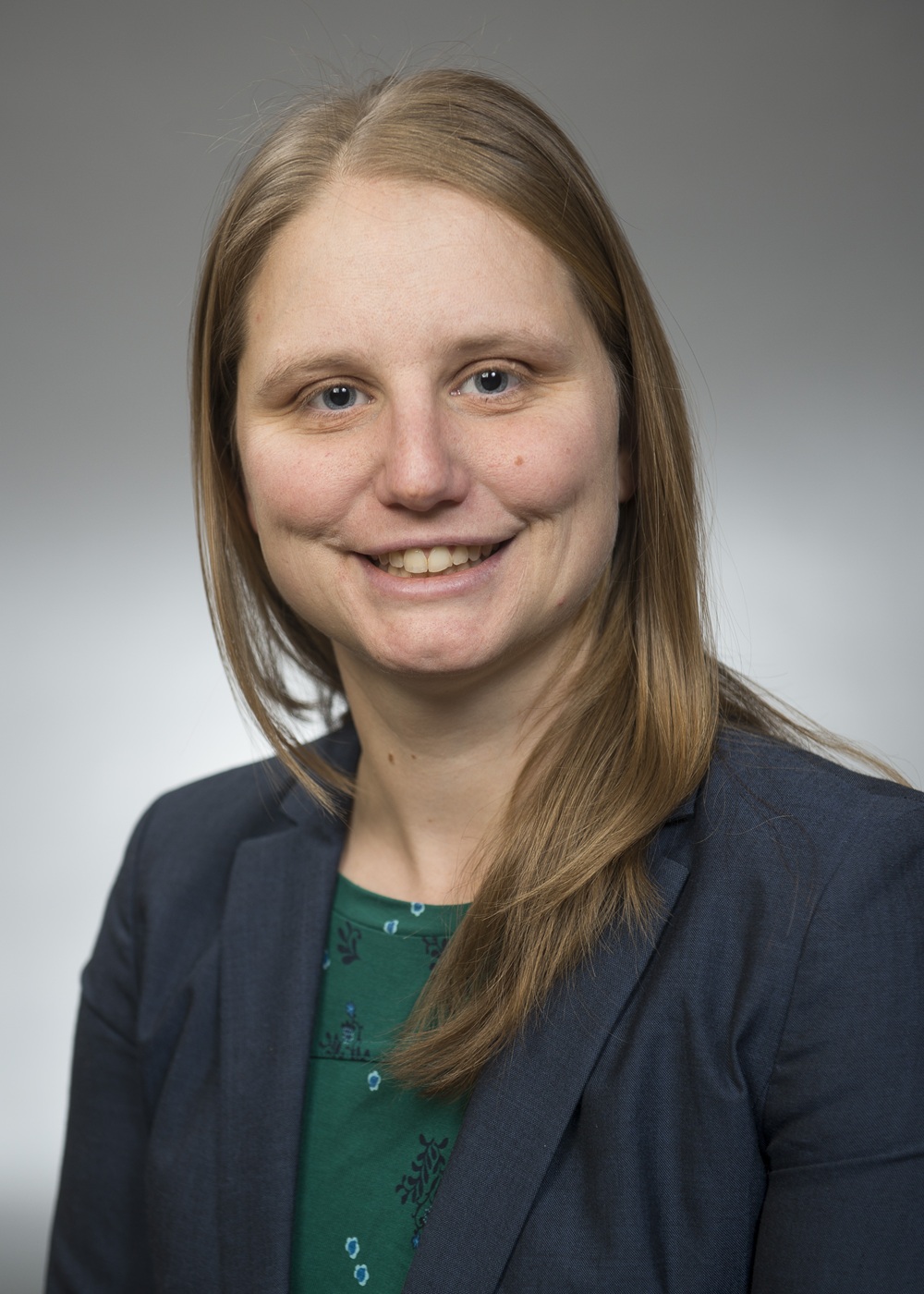
Kumpel, Emily
Emily Kumpel
Read more

Emily Kumpel
| Grant Category: | Fulbright-Nehru Academic & Professional Excellence Award (Research) |
| Project Title: | Intermittent but Reliable Water Supplies: Measuring Continuity and Predictability in Water Systems |
| Field of Study: | Engineering |
| Home Institution: | University of Massachusetts Amherst, Amherst, MA |
| Host Institution: | Indian Institute of Technology - Bombay, Mumbai, Maharashtra |
| Grant Start Month: | August 2025 |
| Duration of Grant: | Nine months |
Brief Bio:
Dr. Emily Kumpel is an associate professor in civil and environmental engineering at the University of Massachusetts Amherst. Her research advances sustainable and equitable drinking water systems through innovative approaches to water quality, household storage, and data science applications. With over 40 peer-reviewed publications on topics such as intermittent water supply, disinfection byproducts, water quality monitoring, and small water systems, she has secured more than $15 million in funding from NSF, EPA, Massachusetts agencies, and private foundations. Her current projects include an NSF CAREER award investigating household water storage as a reliability strategy, and extensive partnership work with the Massachusetts Department of Environmental Protection (MassDEP). She leads comprehensive drinking water assistance programs for the state of Massachusetts, including support for complying with the Safe Drinking Water Act, research on emerging contaminants among small and disadvantaged communities, lead testing in schools and childcare facilities, and small systems technical assistance. She has received multiple awards such as the College of Engineering Barbara H. and Joseph J. Goldstein Outstanding Junior Faculty Award (2024), Outstanding Teaching Award (2022), and a PIT@UMass Faculty Fellowship (2024). Dr. Kumpel serves as associate editor for AWWA Water Science and has extensive international field research experience, having lived and conducted research for over six years across India and countries in sub-Saharan Africa.
Before joining UMass in 2017, she was a senior research scientist at Aquaya Institute in Kenya, where she led water-quality monitoring and evaluation projects across multiple countries. She earned her PhD and MS in civil and environmental engineering from UC Berkeley and a BS in mechanical engineering from Johns Hopkins University.
Dr. Kumpel’s Fulbright-Nehru project is developing metrics for water supply continuity and predictability, testing new measurement methods, and analyzing the sources of unpredictability. She is conducting her fieldwork in and around Mumbai with the faculty at the Indian Institute of Technology Bombay. The intended outcomes of the research are at least two co-authored manuscripts, mutual student mentorship, and establishment of networks to enable future research endeavors.
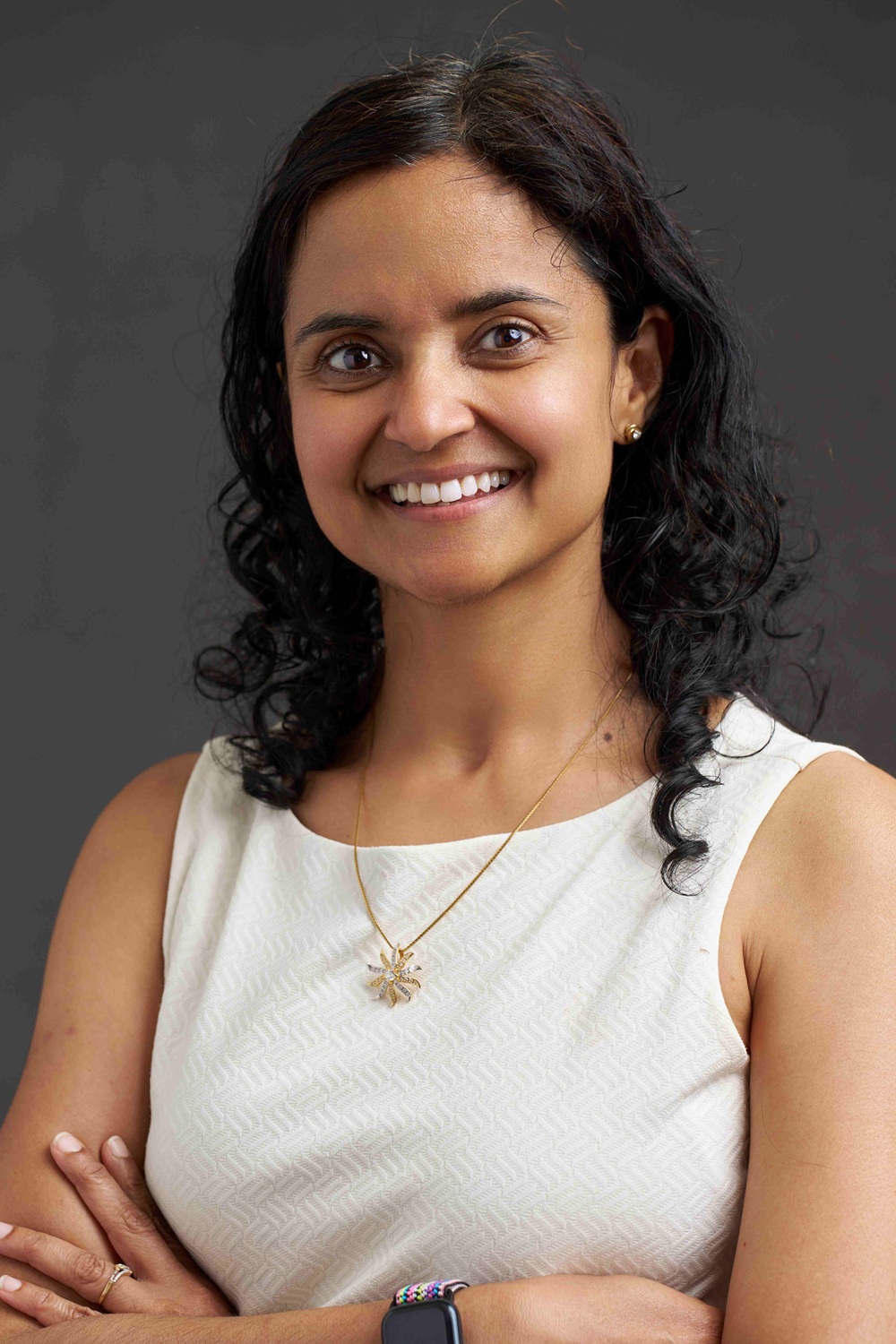
Lodha, Neha
Neha Lodha
Read more

Neha Lodha
| Grant Category: | Fulbright-Nehru Academic & Professional Excellence Award (Research) |
| Project Title: | Navigating Global Health: Culturally Relevant Tools for Early Detection of Cognitive Impairment |
| Field of Study: | Neuroscience |
| Home Institution: | Colorado State University, Fort Collins, CO |
| Host Institution: | National Institute of Mental Health and Neurosciences, Bengaluru, Karnataka |
| Grant Start Month: | December 2025 |
| Duration of Grant: | Five months |
Brief Bio:
Dr. Neha Lodha is an engineer-turned-neuroscientist. She is a tenured associate professor in the Department of Health and Exercise Science and the School of Biomedical Engineering at Colorado State University (CSU). She earned her PhD in kinesiology from the University of Florida, following a BTech in information and communication technology from DA-IICT, Gandhinagar, India.
Dr. Lodha directs the Laboratory of Movement Neuroscience and Rehabilitation at CSU. Her research applies approaches in cognitive aging, movement neuroscience, and neurorehabilitation with the goal of improving functional independence, mobility, and overall well-being of individuals facing age-related or neurological challenges. Her interdisciplinary approach bridges biomechanics, neuroscience, and digital health to better understand and support cognitive and physical functioning in everyday life. Her current work in her lab focuses on identifying early indicators of reduced mobility and cognitive performance. This includes examining how people move in their daily environments, how their cognitive and motor systems interact, and how technology can assist in rehabilitation and health monitoring. Complementing her research, Dr. Lodha leads community outreach through her lab’s initiatives. These include mobility assessments and fall-prevention screenings for older adults, as well as educational programs for students interested in science and engineering.
Dr. Lodha has authored over 50 scholarly publications, including 40 peer-reviewed journal articles, and her work has been cited more than 3,400 times. She has a strong track record in securing external research funding as a principal investigator, having obtained competitive awards from agencies like the National Institute on Aging, the American Heart Association, and the Alzheimer’s Association.
The global rise of dementia significantly affects populations in low- and middle-income countries. In communities with limited access to formal education and healthcare, cognitive impairments often go undiagnosed. Most current assessments cater to English-speaking and literate individuals and are not effective for people in other contexts. Dr. Lodha’s Fulbright-Nehru project is developing a performance-based tool designed to work across language and education levels within the Indian population. The project’s primary aim is to improve early detection of cognitive decline.
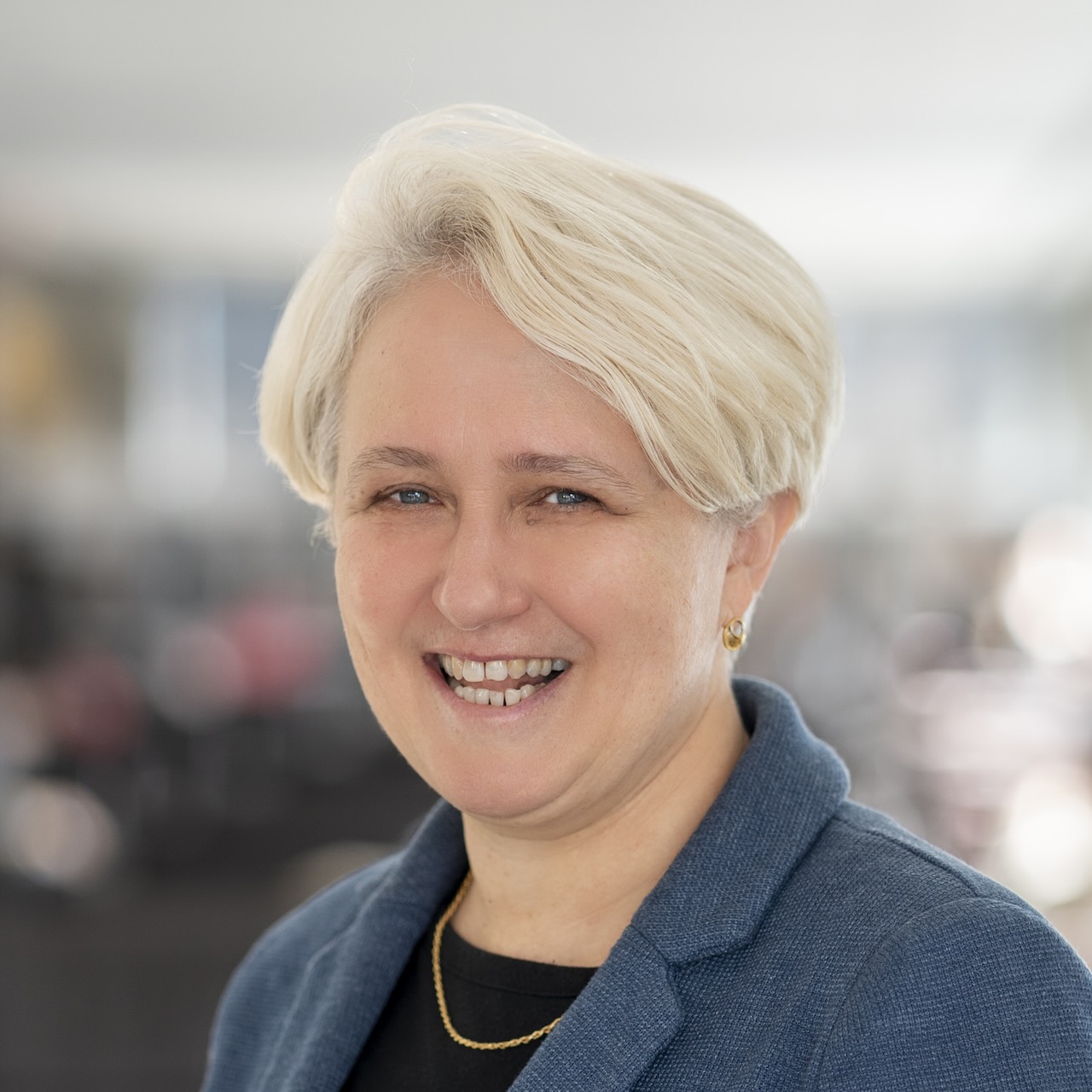
Mitchell, Lisa
Lisa Mitchell
Read more

Lisa Mitchell
| Grant Category: | Fulbright-Nehru Academic & Professional Excellence Award (Research) |
| Project Title: | The History of the Government Job in India |
| Field of Study: | History |
| Home Institution: | University of Pennsylvania, Philadelphia, PA |
| Host Institution: | Ashoka University, Sonipat, Haryana |
| Grant Start Month: | May 2026 |
| Duration of Grant: | Six months |
Brief Bio:
Dr. Lisa Mitchell is professor in the Department of South Asia Studies at the University of Pennsylvania, where she teaches courses in anthropology, history, and urban studies. She is the author of Hailing the State: Indian Democracy between Elections (Duke University Press, 2023, and Permanent Black, 2023) and Language, Emotion, and Politics in South India: The Making of a Mother Tongue (Indiana University Press, 2009, and Permanent Black, 2010), which received the Edward Cameron Dimock, Jr. Prize in the Indian Humanities from the American Institute of Indian Studies. She is currently working on two book projects, one titled “The Government Job in India” and the second on translations of transnationally circulating political ideas, provisionally entitled, “The Multiple Genealogies of Indian Democracy: Global Intellectual History in Translation”. She received her PhD in sociocultural anthropology from Columbia University. Previously, she taught history at Queens College (CUNY), Bowdoin College, and the University of Washington, and anthropology at the University of Notre Dame. She has been the recipient of fellowships from the National Endowment for the Humanities, Wenner-Gren Foundation, Mellon Foundation, the European Research Council, and the American Institute of Indian Studies, and has been a visiting fellow at the University of Cambridge, a Mercator Visiting Fellow in Global Intellectual History at the Freie Universität in Berlin, and a senior research fellow at the Max Planck Institute for Social Anthropology in Halle. In 2020, she was a recipient of the Lindback Award for Distinguished Teaching at the University of Pennsylvania.
Dr. Mitchell’s Fulbright-Nehru project is examining the idea of the government job in the history of political imagination in modern India. Using archives from the Nizam’s state of Hyderabad and Indian constitutional debates, cinematic and literary portrayals of civil servants, and oral histories from current and former government employees, it is tracing historical efforts to redistribute employment opportunities, create a new middle class, and offer guaranteed employment as a form of social welfare. Assessing India’s unique social experiments in the redistribution of opportunity, the project will culminate in a book-length anthropological history of the government job in India.
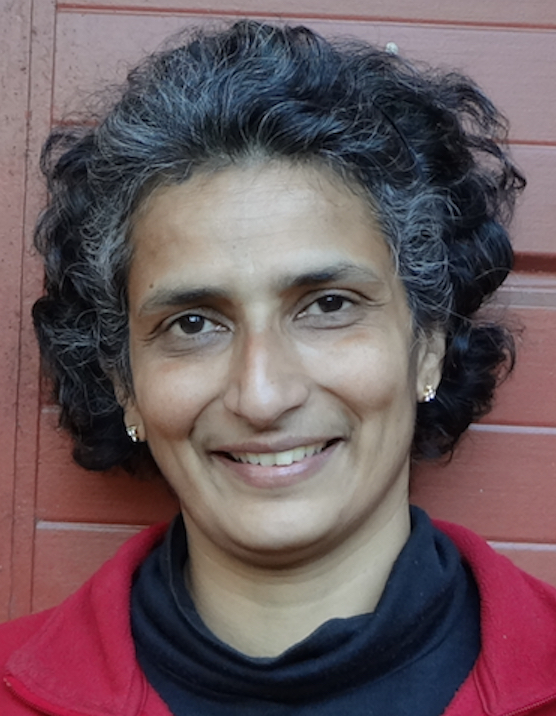
Sitharam, Meera
Meera Sitharam
Read more

Meera Sitharam
| Grant Category: | Fulbright-Nehru Academic & Professional Excellence Award (Research) |
| Project Title: | Exploring Connections: Rigidity, Flexibility, Complexity, and Applications of Geometry Constraints |
| Field of Study: | Computer Science |
| Home Institution: | University of Florida, Gainesville, FL |
| Host Institution: | Chennai Mathematical Institute, Chennai, Tamil Nadu |
| Grant Start Month: | December 2025 |
| Duration of Grant: | Six months |
Brief Bio:
Dr. Meera Sitharam is professor of computer science and affiliate professor of mathematics at the University of Florida in Gainesville. After her BTech from the Indian Institute of Technology Madras, she completed her doctoral studies at the University of Wisconsin–Madison in computer science and held positions at Kent State University and Purdue University. She was an Alexander von Humboldt Postdoctoral Fellow at the University of Bonn, a Fields Institute Fellow, and an ICERM Fellow. Her research and over 100 peer-reviewed publications range from pure mathematics (discrete geometry) and theoretical computer science (algorithmic foundations and complexity theory) to the development of open source mathematical software (computational geometry) and geometric modeling in the natural and social sciences and engineering (soft-matter and biophysical modeling, algorithmic game theory, computer-aided mechanical and microstructural design). Her research group’s alumni include at least 15 doctorate holders now in academia, industry and entrepreneurial positions. As a vocal advocate for public higher education, Dr. Sitharam is currently chapter president and chief negotiator for the United Faculty of Florida at the University of Florida. Her academic outreach activities include: faculty advisorship of the Asha for Education chapter, where she works closely with grassroots partners in Tamil Nadu working toward education access and quality; and founding STEM women researchers’ development (Steward@IITM) to mentor and address the barriers faced by women researchers.
She is a graded All India Radio veena artist and engages with a broad range of music.
Dr. Sitharam’s Fulbright-Nehru project, “Exploring Connections: Rigidity, Flexibility, Complexity, and Applications of Geometry Constraints”, aims to leverage the host institution’s unique combination of expertise – on parameterized complexity and derandomization of algorithms, configuration space topology, and soft-matter modeling – to conduct research on Geometric Constraint Systems (GCS), a vibrant, intuitively accessible area that bridges mathematical communities. The GCS lens also intends to spur progress on fundamental theoretical science at the host institution. The expected project outcomes include several peer-reviewed articles, an international workshop, grant proposals for joint US–India programs, seminar series at the host institution, and addressing of research underrepresentation.
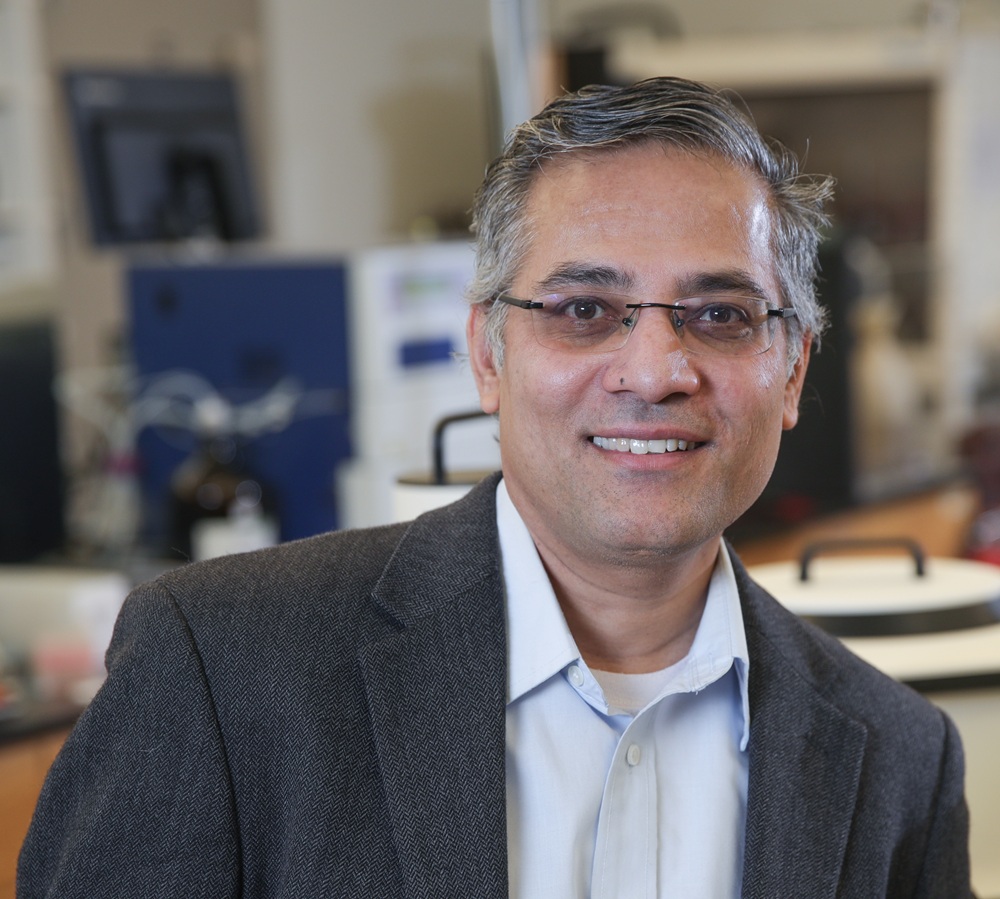
Sivaguru, Jayaraman
Jayaraman Sivaguru
Read more

Jayaraman Sivaguru
| Grant Category: | Fulbright-Nehru Academic & Professional Excellence Award (Research) |
| Project Title: | Light-driven Strategies for Developing a Sustainable Future |
| Field of Study: | Chemistry |
| Home Institution: | Bowling Green State University, Bowling Green, OH |
| Host Institution: | Indian Institute of Science, Bengaluru, Karnataka |
| Grant Start Month: | March 2026 |
| Duration of Grant: | Four months |
Brief Bio:
Dr. Jayaraman Sivaguru is a distinguished university professor at Bowling Green State University (BGSU), Ohio. His recognitions include the 2008 NSF CAREER award, the 2010 Grammaticakis-Neumann Prize from the Swiss Chemical Society, and the young investigator awards from the Inter-American Photochemical Society (2011) and Sigma-Xi (2012). Besides, he won the 2012 Peltier Award for Innovation in Teaching from NDSU. He was a visiting young professor at the Global Centre for Excellence, Osaka University, and was also visiting fellow of the Chinese Academy of Sciences under the President’s International Fellowship Initiative. He serves as the American editor for the Journal of Photochemistry and Photobiology A: Chemistry and as the co-editor-in-chief of the Journal of Photochemistry and Photobiology. In 2021, he was awarded the Honda-Fujishima Lectureship by the Japanese Photochemistry Association for outstanding achievement in photochemistry. In 2023, he received the Olscamp Award from BGSU. In 2025, he was named as the 48th Probst Lecturer at SIUE. Dr. Sivaguru is a member of the International Organizing Committee for the IAPS-2026 meeting in Sao Paulo and will also co-chair the 2027 Gordon Conference on Photochemistry.
His research interests include: uncovering new excited state chemical reactivity; light-induced axial to central chiral transfer; asymmetric organo-photocatalysis; supramolecular photocatalysis with water-soluble nanocontainers; light-responsive materials for polymer circularity; development of high-efficiency photoinitiators; and designing light-initiated strategies for eye protection and ophthalmic applications (e.g. contact lenses and other eyewear).
Dr. Sivaguru is passionate about helping students to gravitate toward STEM disciplines. Toward this, in 2007, he launched an outreach program called PICNICS (Parents Involvement with Children Nurturing Intellectual Curiosity in Sciences).
For his Fulbright-Nehru project, Prof. Sivaguru is collaborating with Prof. N. Jayaraman of the Indian Institute of Science on photochemical aspects within dendritic systems. He is also collaborating with Prof. Ashok Mishra at the Indian Institute of Technology Madras on photophysical studies. Besides, Prof. Sivaguru is holding classes on photochemistry. He is also evaluating the feasibility of adapting PICNICS to an Indian setting.
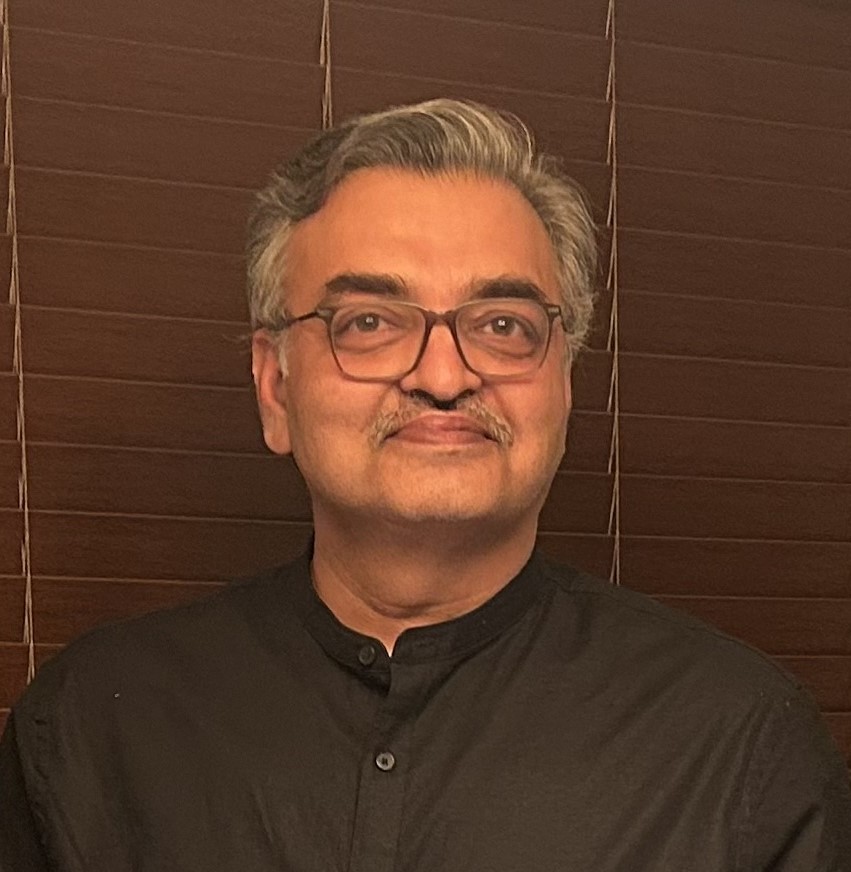
Talapatra, Saikat
Saikat Talapatra
Read more

Saikat Talapatra
| Grant Category: | Fulbright-Nehru Academic & Professional Excellence Award (Research) |
| Project Title: | Development of Porous Carbon Materials Derived from Biowaste for Carbon Dioxide Capture and Storage |
| Field of Study: | Materials Science |
| Home Institution: | Southern Illinois University, Carbondale, IL |
| Host Institution: | Indian Institute of Technology-Kharagpur, Kharagpur, West Bengal |
| Grant Start Month: | October 2025 |
| Duration of Grant: | Six months |
Brief Bio:
Dr. Saikat Talapatra is a professor and director of the School of Physics and Applied Physics at Southern Illinois University Carbondale. He obtained his BSc degree in physics and BEd from RIE Bhubaneswar, India, and MSc in physics from Jadavpur University, Kolkata. Thereafter, he graduated from the Department of Physics at Southern Illinois University with an MS in physics and a PhD in engineering science. He worked as a postdoctoral scholar at Rensselaer Polytechnic Institute, Troy, New York, before returning to Southern Illinois University as a faculty. He is a condensed matter physicist/materials scientist, with research interests in the synthesis and characterization of a variety of nanoscale materials and structures materials for multiple applications related to electronics, energy, and environment.
Dr. Talapatra’s Fulbright-Nehru project is investigating the adsorptive surface properties of the porous carbon materials obtained from biowaste products in order to develop them for carbon dioxide capture and storage. The success of the project could lead to applications that are needed for a carbon neutral (net-zero) society.
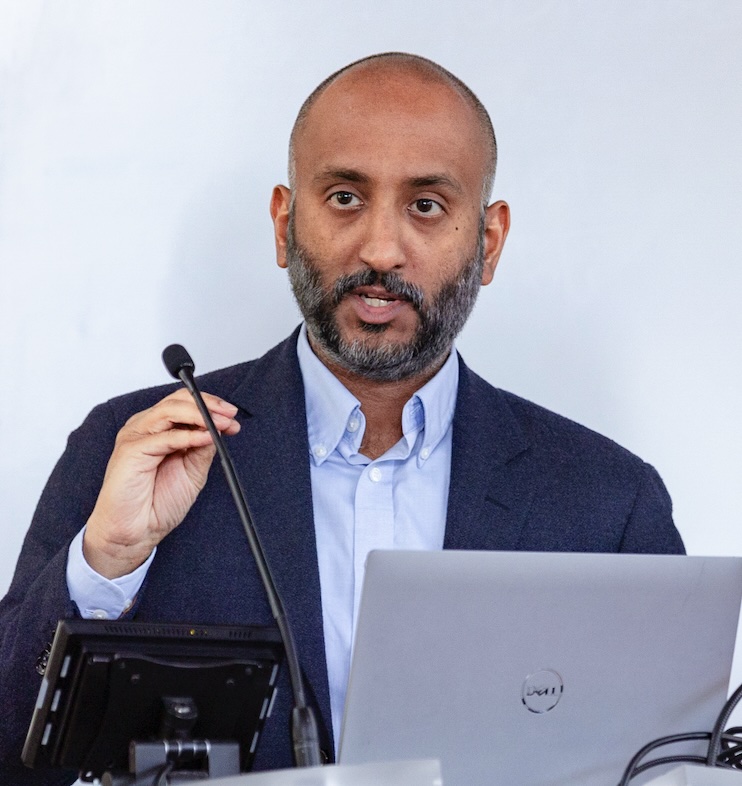
Verghese, Ajay
Ajay Verghese
Read more

Ajay Verghese
| Grant Category: | Fulbright-Nehru Academic & Professional Excellence Award (Research) |
| Project Title: | Two Studies of Political Hinduism |
| Field of Study: | Political Science |
| Home Institution: | Middlebury College, Middlebury, VT |
| Host Institution: | Ashoka University, Sonipat, Haryana |
| Grant Start Month: | May 2026 |
| Duration of Grant: | Six months |
Brief Bio:
Dr. Ajay Verghese is an associate professor of political science at Middlebury College, Vermont. He received his PhD in 2013 from George Washington University and was a postdoctoral fellow at the Asia-Pacific Research Center at Stanford University. His research interests include Indian politics, ethnic violence, historical legacies, religion, and methodology. His first book, The Colonial Origins of Ethnic Violence in India, was published by Stanford University Press in 2016, and his articles have been published in Modern Asian Studies, Terrorism and Political Violence, Journal of Development Studies, Politics & Society, Politics and Religion, Sociological Theory, and Journal of Historical Political Economy. He is a winner of the Ted Jelen Award and has been honorably mentioned in the IPSA Award for Concept Analysis in Political Science.
Dr. Verghese’s Fulbright-Nehru project entails two studies of political Hinduism over the course of six months in India. The first study is based in Udaipur, where he is developing a novel theory explaining the rise in the popularity of spiritual teachers (often called “gurus”, “yogis”, or “godmen”) who are explicitly associated with political parties and organizations. The second study is examining a potential backlash to the increasing politicization of religion via the growth of “secular Hinduism” among upper middle-class Hindus in Delhi.

Yethiraj, Arun
Arun Yethiraj
Read more

Arun Yethiraj
| Grant Category: | Fulbright-Nehru Academic & Professional Excellence Award (Research) |
| Project Title: | Active Matter in Disordered Materials |
| Field of Study: | Chemistry |
| Home Institution: | University of Wisconsin-Madison, Madison, WI |
| Host Institution: | Tata Institute of Fundamental Research, Mumbai, Maharashtra |
| Grant Start Month: | August 2025 |
| Duration of Grant: | Four months |
Brief Bio:
Dr. Arun Yethiraj was born in India and received his BTech in chemical engineering from the Indian Institute of Technology Bombay. He received an MS from Louisiana State University, a PhD from North Carolina State University, working with Professor Carol Hall, and did postdoctoral research at the University of Illinois, working with Professor Kenneth Schweizer. He joined the faculty of the Department of Chemistry at the University of Wisconsin in 1993. His research interest is in the statistical mechanics of complex fluids, including polymers, surfactants, ionic liquids, and biopolymers.
His hobbies include tennis, guitar, and running.
“Active matter” refers to a class of systems that are composed of self-propelled entities that convert stored energy into directed motion. The goal of Dr. Yethiraj’s Fulbright-Nehru research is to obtain a fundamental understanding of active matter in complex environments. His research project at the Tata Institute of Fundamental Research is using computational studies with machine learning analyses to reproduce experimental studies on robotic and molecular systems in order to obtain a fundamental understanding of the effect of crowding and noise on active processes, thereby allowing for the elucidation of transport mechanisms in other systems.
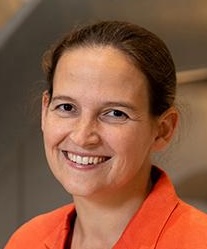
Enriquez, Ana
Ana Enriquez
Read more

Ana Enriquez
| Grant Category: | Fulbright-Nehru Academic & Professional Excellence Award (Teaching & Research) |
| Project Title: | Copyright Law, Libraries, and Access to Knowledge |
| Field of Study: | Law |
| Home Institution: | Pennsylvania State University, University Park, PA |
| Host Institution: | National Law School of India University, Bengaluru, Karnataka |
| Grant Start Month: | February 2026 |
| Duration of Grant: | Four and a half months |
Brief Bio:
Ms. Ana Enriquez is a librarian and lawyer who advocates for copyright law and research practices that enable all people to access and contribute to research. She is the copyright officer and head of the Office of Scholarly Communications and Copyright in the University Libraries at Pennsylvania State University. At Penn State, she manages the implementation of the university’s open access policy and the library services for researchers on scholarly communications and copyright.
Ms. Enriquez has been teaching copyright for 12 years, most recently for CopyrightX: Libraries, a global network of copyright courses for people working in libraries, archives, and museums around the world. She has also taught for the Library Copyright Institute and the Association of College and Research Libraries (U.S.). Her research focuses on making copyright work for libraries and researchers, and on using library expertise to advance access to knowledge. She has published, presented, and submitted comments to U.S. federal agencies on these topics. She holds a JD from the University of California, Berkeley, and an AB in history and literature from Harvard College.
Ms. Enriquez’s Fulbright-Nehru project is attempting to advance access to knowledge by strengthening shared understanding among U.S. and Indian lawyers and librarians. At the National Law School of India University in Bengaluru, she is co-teaching a copyright course with Professor Arul Scaria and also offering a course for librarians. Besides, she is creating course materials to enrich her own future teaching assignments and sharing them for broad reuse by copyright teachers, including those at CopyrightX. In parallel with teaching, Ms. Enriquez is advancing her research on copyright law and access to knowledge, with a particular focus on copyright’s impact on libraries, archives, and museums under Indian and U.S. law.
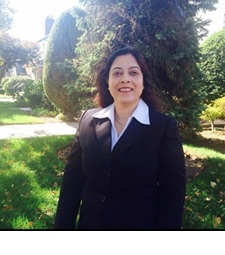
Guha, Smita
Smita Guha
Read more

Smita Guha
| Grant Category: | Fulbright-Nehru Academic & Professional Excellence Award (Teaching & Research) |
| Project Title: | Critical and Cultural Study of Children’s Development in India |
| Field of Study: | Education |
| Home Institution: | St. John’s University, Queens, NY |
| Host Institution: | Jawaharlal Nehru University, New Delhi, Delhi |
| Grant Start Month: | January 2026 |
| Duration of Grant: | Six months |
Brief Bio:
Dr. Smita Guha is a tenured and full professor at St. John’s University, NY, in the School of Education. She is also the chairperson of the Department of Curriculum and Instruction.
She received her PhD from the State University of New York at Buffalo. Her research involves preparing teachers in the areas of math and science education, and in child development.
Dr. Guha has written three books: Today’s Youth, Tomorrow’s Leaders; Healthy Children; and Teacher as Researcher. Her fourth book, Critical Literacy for Socio-emotional Learning is in the print stage. She has also written several book chapters. Forty-one of her articles have been published in scholarly journals, and she has presented at more than 60 international, national, state and regional conferences.
Dr. Guha is also the founder of an after-school program that demonstrates the collaboration of family, school, and community. She has received several grants and has worked with underprivileged mothers and children living in homeless shelters in the U.S. and India. She is also the recipient of honors such as the Talent Award from New York State Assembly, the New York City Corps Artist Award, and the Outstanding Citizen award from the Council of the City of New York. Further, twice she has received the merit award and the faculty recognition award from St. John’s University.
A vocalist of Indian music, Dr. Guha is the founder and president of the nonprofit organization, Anandasangit.
Culture can impact how children build values, belief systems, thinking, and understanding of themselves as individuals and as members of society. The unique cultural influences that children respond to from birth include customs and beliefs around food and artistic expression. While a healthy diet is associated with overall development and improved cognitive function, so also is early exposure to music which ignites all areas of a child’s faculty. Both help the body and the mind to work together. The purpose of Dr. Guha’s Fulbright-Nehru study is to focus on child development across cultural contexts regarding food and music in India.

Handa, Sachin
Sachin Handa
Read more

Sachin Handa
| Grant Category: | Fulbright-Nehru Academic & Professional Excellence Award (Teaching & Research) |
| Project Title: | Research and Teaching on Green Catalysis and Sustainable Synthesis of Pharmaceuticals |
| Field of Study: | Chemistry |
| Home Institution: | University of Missouri, Columbia, MO |
| Host Institution: | Indian Institute of Technology Guwahati, Guwahati, Assam |
| Grant Start Month: | September 2025 |
| Duration of Grant: | Four months |
Brief Bio:
Dr. Sachin Handa is MizzouForward Faculty and a tenured associate professor of chemistry at the University of Missouri in Columbia. Earlier, at the University of Louisville, he had served as an assistant professor before being promoted to the position of associate professor. He earned his PhD in chemistry from Oklahoma State University and subsequently conducted postdoctoral research at the University of California, Santa Barbara.
Dr. Handa’s research lies at the intersection of synthesis, material chemistry, energy, nanocatalysis, photochemistry, and electrocatalysis. His work is recognized for its innovative approaches to sustainable chemistry, particularly in the development of environmentally benign catalytic systems. He has authored over 85 peer-reviewed publications, including papers in high-impact journals such as Science, Nature Communications, JACS Au, ACS Catalysis, Advanced Functional Materials, and Angewandte Chemie. His notable research contributions include advancements in micelle-driven electrocatalysis, ligand design for sustainable catalysis, and nanoparticle-mediated transformations in aqueous media. Many of his research products are commercialized by Sigma-Aldrich.
His excellence in research and commitment to green chemistry have earned him numerous accolades, including the prestigious NSF CAREER Award and the ACS Peter J. Dunn Award for Green Chemistry and Engineering Impact in the Pharmaceutical Industry. He has also received the Ralph E. Powe Junior Faculty Enhancement Award in Physical Sciences. He currently serves as an associate editor for ACS Sustainable Chemistry & Engineering and holds editorial board positions with Green Chemistry Letters and Reviews and Molecules. He is also a member of the ACS Green Chemistry & Engineering Conference Advisory Committee.
Dr. Handa’s Fulbright-Nehru project is developing a sustainable electrocatalytic-electromicellar method for synthesizing fluorinated heterocycles, which are key pharmaceutical intermediates. By using electrons as clean reductants and aqueous micelles from benign designer amphiphiles as solvents and electrolytes, the research aims to minimize environmental impact and improve atom economy. The project is also exploring the delayed adoption of green chemistry in India’s pharmaceutical sector. The fellowship integrates teaching a graduate course on green chemistry and catalysis, fostering international collaboration, and promoting sustainable practices in pharmaceutical manufacturing through academic–industry partnerships and student engagement.
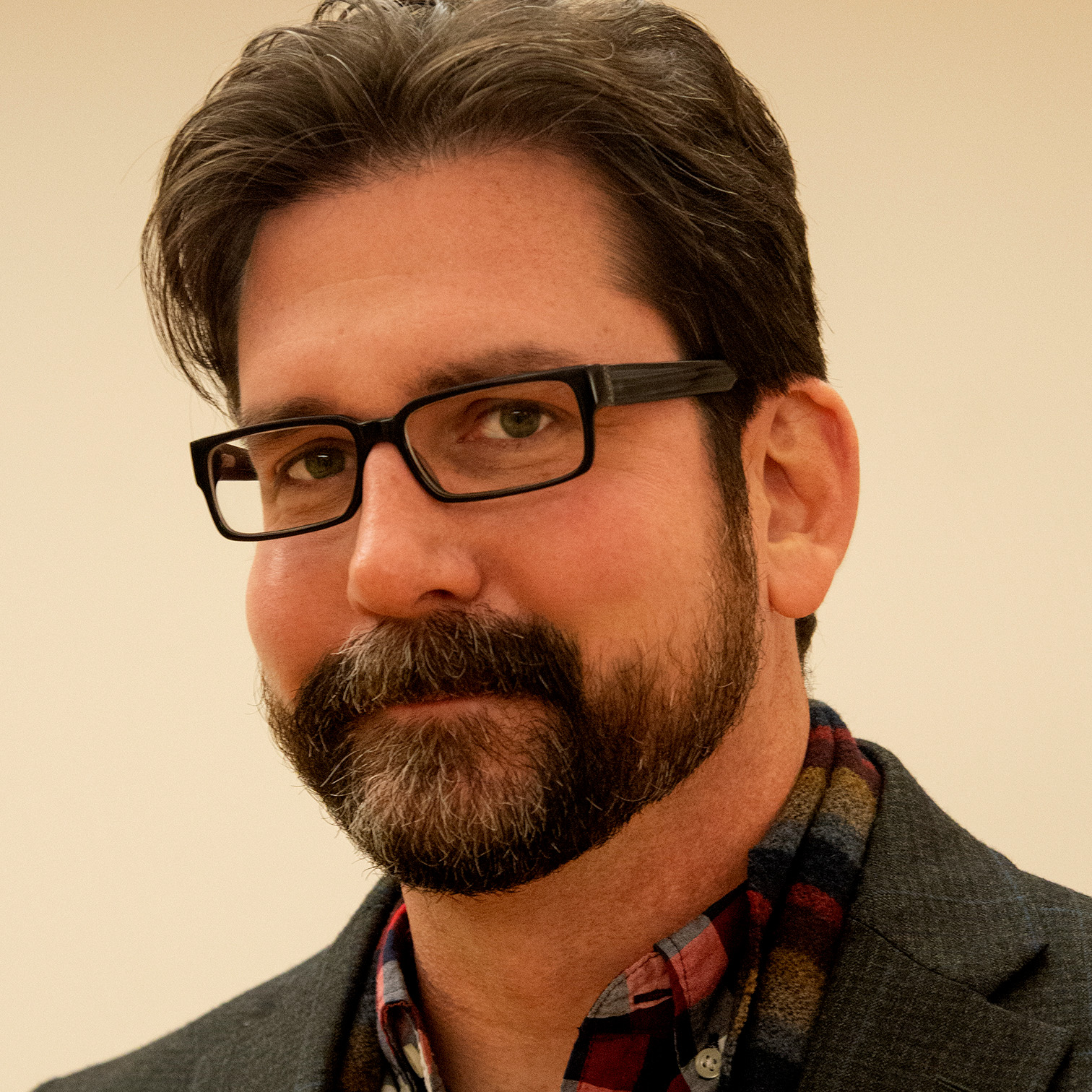
Kaczmarek, Christopher
Christopher Kaczmarek
Read more

Christopher Kaczmarek
| Grant Category: | Fulbright-Nehru Academic & Professional Excellence Award (Teaching & Research) |
| Project Title: | Exploring Tradition, Innovation, and Collective Art Practices in Contemporary India |
| Field of Study: | Arts |
| Home Institution: | Montclair State University, Montclair, NJ |
| Host Institution: | Indian Institute of Technology Kanpur, Kanpur, Uttar Pradesh |
| Grant Start Month: | January 2026 |
| Duration of Grant: | Six months |
Brief Bio:
Prof. Christopher Kaczmarek is an interdisciplinary artist, educator, and academic leader whose work spans sculpture, installation, new media, performance, and socially engaged practice. He holds an MFA in visual art and an MA in modern and contemporary art history, theory, and criticism from Purchase College, SUNY, as well as a BFA in visual art from Appalachian State University. Currently an associate professor of interdisciplinary art at Montclair State University, Prof. Kaczmarek has served as the head of the Visual Arts Program and as chair of the Department of Art and Design.
Prior to Montclair, he was a faculty member and administrator at Purchase College, where he was the director of instructional support for the School of the Arts and general manager of the Center for Community and Culture. Prof. Kaczmarek’s creative work has been exhibited in China, India, Scotland, Italy, Greece, Ireland, South Korea, and the United States. His works engage with themes of contemplation, embodiment, and connection through hybrid processes that combine analog, digital, and participatory strategies.
Prof. Kaczmarek’s scholarly and artistic activities include presentations at the College Art Association, the International Walking Arts Encounters Conference in Greece, and the European League of Institutes of the Arts in Brussels. He has also contributed to the journal Technoetic Arts and the Walking Art – Walking Practices proceedings. He is active in shaping national conversations around arts pedagogy and academic leadership, and his projects often involve collaboration and community participation, exemplified by initiatives like the Student Led International Collective Exhibition course at Montclair and remote performance collaborations across continents.
His interests include experimental and experiential teaching methods, walking as creative inquiry, labyrinths, collaborative exhibition models, and the inner workings of collective artistic practice. He is especially drawn to understanding how creative groups operate as effective collectives – structurally, interpersonally, and ideologically.
Prof. Kaczmarek’s Fulbright-Nehru project is engaging both traditional artisans and contemporary artists, combining research and teaching to explore and share dynamic practices, and fostering lasting collaborative ties and cross-cultural dialogue between Indian and U.S. artists.
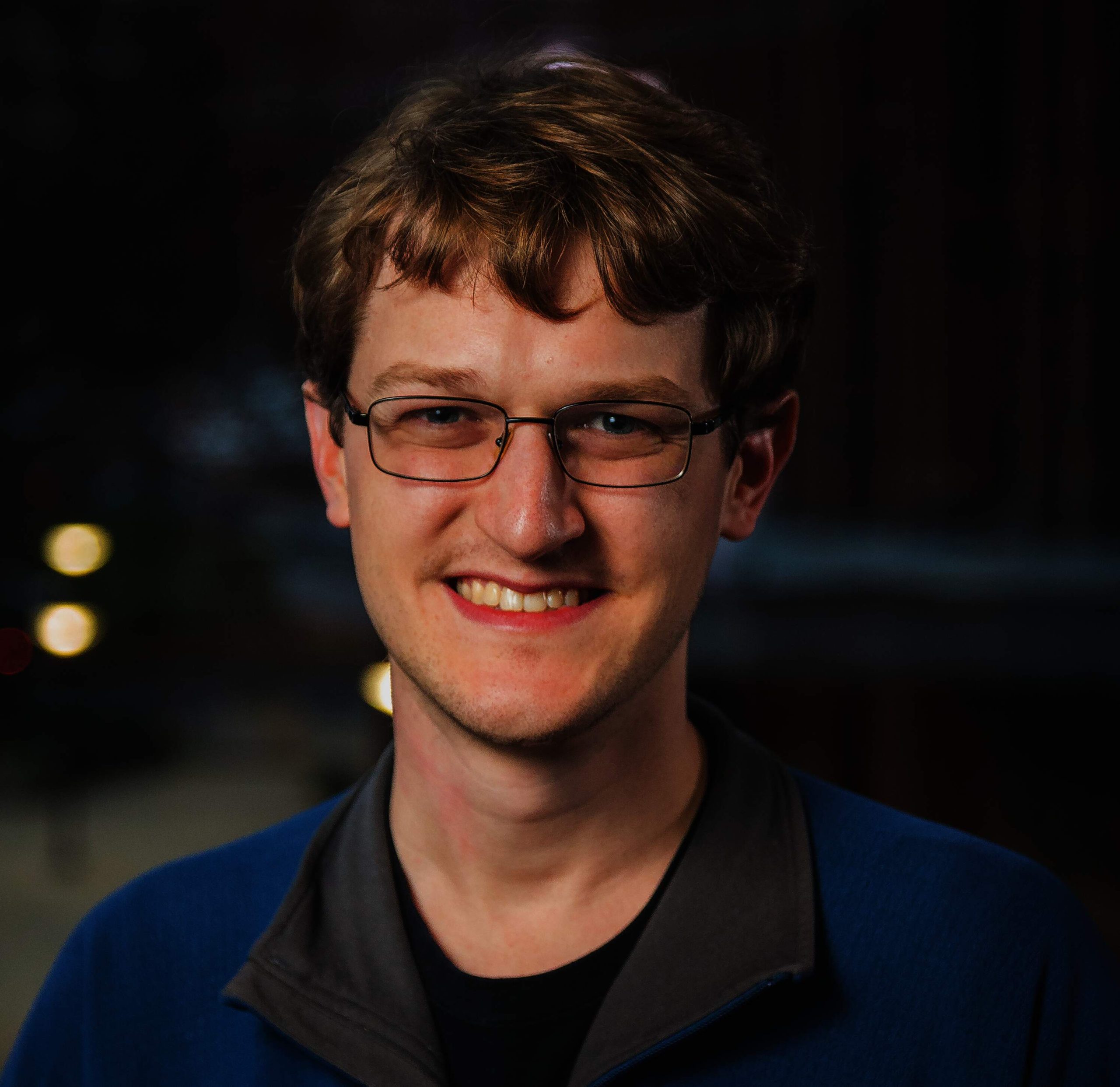
Lesieutre, John
John Lesieutre
Read more

John Lesieutre
| Grant Category: | Fulbright-Nehru Academic & Professional Excellence Award (Teaching & Research) |
| Project Title: | Birational geometry and K-stability |
| Field of Study: | Mathematics |
| Home Institution: | Pennsylvania State University, University Park, PA |
| Host Institution: | Indian Institute of Science, Bengaluru, Karnataka |
| Grant Start Month: | February 2026 |
| Duration of Grant: | Four and a half months |
Brief Bio:
Prof. John Lesieutre is an associate professor of mathematics at Pennsylvania State University, working in the field of algebraic geometry. He completed his education from Harvard and the Massachusetts Institute of Technology, after which he held a postdoctoral position at the University of Illinois at Chicago. His research focus is on the geometry of higher-dimensional algebraic varieties, which are sets of solutions to systems of polynomial equations in many variables. He is particularly interested in how symmetries of the solution sets of these systems can shed light on the geometry of the underlying systems of equations. He has published numerous articles in this field.
Prof. Lesieutre’s Fulbright-Nehru project has three major components: to initiate a new research collaboration on the algebraic aspects of K-stability with a researcher at the Indian Institute of Science (IISc); to teach an informal mini course for IISc graduate students on algebraic dynamics; and to continue his studies on algebraic dynamics.
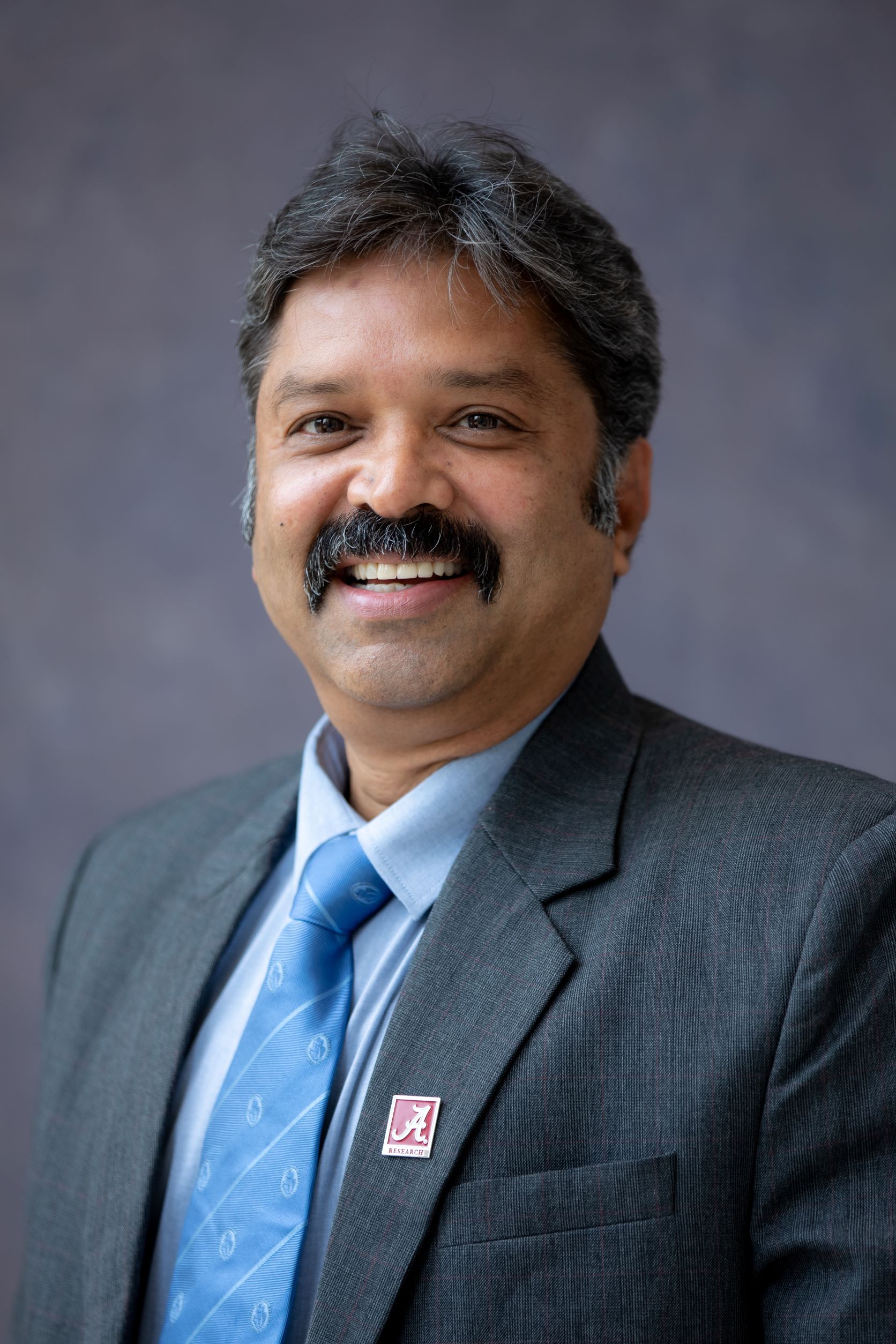
Majeti, Ravikumar
Ravikumar Majeti
Read more

Ravikumar Majeti
| Grant Category: | Fulbright-Nehru Academic & Professional Excellence Award (Teaching & Research) |
| Project Title: | Nanotechnology Approaches for Precision Nutraceuticals |
| Field of Study: | Medical Sciences |
| Home Institution: | The University of Alabama, Tuscaloosa, AL |
| Host Institution: | National Institute of Nutrition, Hyderabad, Telangana |
| Grant Start Month: | December 2025 |
| Duration of Grant: | Four months |
Brief Bio:
Dr. Ravikumar Majeti (cited as Kumar MNVR) is a distinguished university research professor, assistant vice president for interdisciplinary research, and founding director of the Center for Convergent Bioscience and Medicine at The University of Alabama, Tuscaloosa. He is internationally recognized as a leading authority on nanomedicine, with a research portfolio spanning drug delivery, therapeutic repurposing, and personalized treatment strategies for chronic diseases.
Dr. Majeti’s academic journey began with a BSc in physical sciences from A.J. Kalasala, Machilipatnam, Andhra Pradesh, followed by an MSc in applied chemistry from SGSITS, Indore, Madhya Pradesh, and a PhD in drug delivery from IIT Roorkee.
Prior to his appointment at Alabama, he held academic positions at Texas A&M University, College Station; the University of Strathclyde, Glasgow, UK; and the National Institute of Pharmaceutical Education and Research, Mohali, India.
Dr. Majeti’s research focuses on the mechanisms of transcytosis at the intestine–blood barrier leading to the development of tunable, biodegradable nanoparticles for the oral delivery of poorly bioavailable small-molecule drugs and drug-like compounds (https://sites.ua.edu/dreamlab/). His patented delivery platforms have shown substantial efficacy in preclinical models of diabetic complications, lupus, and acute kidney injury, offering precision therapies where standard treatments are inadequate or unavailable.
As a dedicated mentor and scientific leader, Dr. Majeti has fostered international collaborations, guided the growth of early-career researchers, and spearheaded high-impact interdisciplinary programs supported by leading global funding agencies. His work has significantly advanced both the fundamental science and clinical translation of next-generation drug delivery systems.
For his Fulbright-Nehru project, Dr. Majeti is investigating the therapeutic promise of plant-based polyphenolic nutraceuticals through interdisciplinary collaboration at the crossroads of biomaterials and medicine. Focusing on oral bioavailability, a central challenge in the field, he is designing nano-engineered delivery systems to improve the efficacy of compounds such as Urolithin A. By integrating fundamental research with applied testing in models of chronic metabolic diseases, Dr. Majeti seeks to bridge laboratory innovation with clinical relevance. His work aims to realize the untapped potential of nutraceuticals and advances them as viable tools in the prevention and management of modern chronic health conditions.
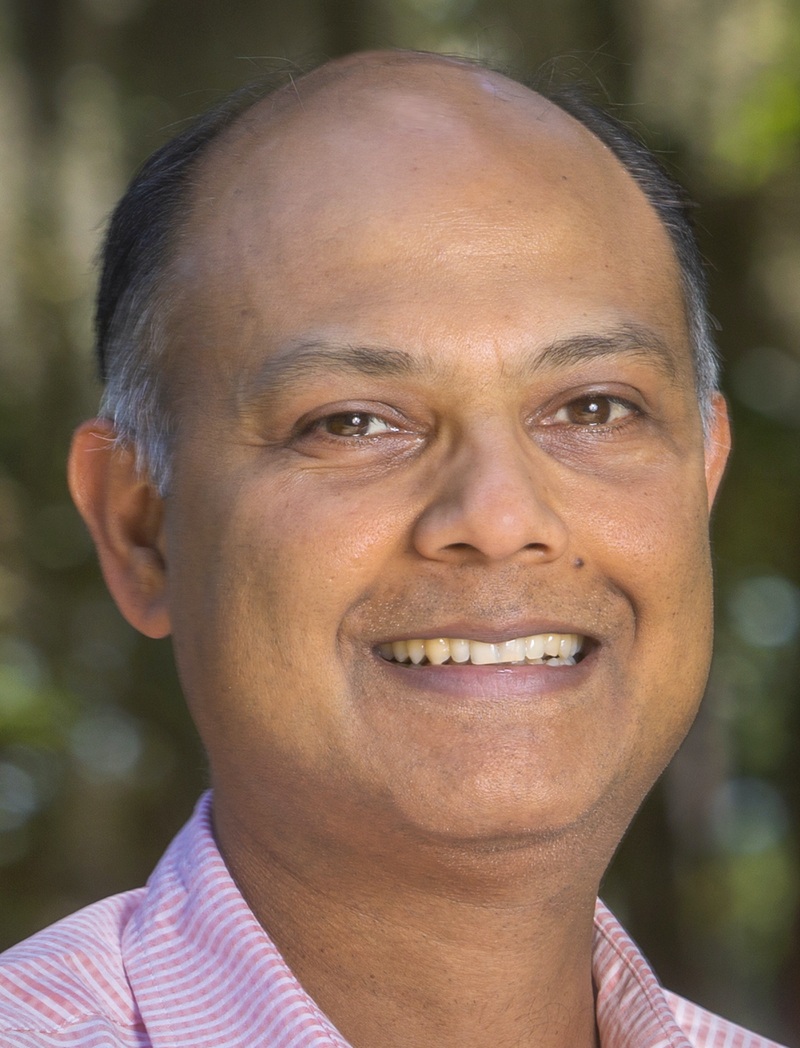
Misra, Vasubandhu
Vasubandhu Misra
Read more

Vasubandhu Misra
| Grant Category: | Fulbright-Nehru Academic & Professional Excellence Award (Teaching & Research) |
| Project Title: | On the variations of the Indian Summer Monsoon: Varying Length of the Season |
| Field of Study: | Meteorology |
| Home Institution: | Florida State University, Tallahassee, FL |
| Host Institution: | Indian Institute of Technology Bhubaneswar, , Odisha |
| Grant Start Month: | January 2026 |
| Duration of Grant: | Four months |
Brief Bio:
Dr. Vasubandhu Misra is a professor of meteorology at Florida State University, where he earned his PhD. He has over 30 years of research experience and 16 years of pedagogical experience. Dr. Misra has authored over 150 peer-reviewed articles and three textbooks: An Introduction to Large-Scale Tropical Meteorology (Springer, 2023); Regionalizing Global Climate Variations: A Study of the Southeastern US Climate (Elsevier, 2020); and Tropical Meteorology: An Introduction (co-author, Springer, 2012). He has worked extensively on tropical climate variability, both from an observational perspective and using numerical climate models. His research work includes: examining land–atmosphere–sea interactions; interactions between discrete temporal scales of climate variability; the role of land cover and land-use change in hydro-meteorological variations; and the low-frequency variation of weather and climate extremes in the tropics.
Dr. Misra’s Fulbright-Nehru project is exploring the low frequency variations of the diurnal variability of the Indian Summer Monsoon from sub-seasonal to interannual and even longer timescales. He is also teaching a graduate-level/senior undergraduate-level course on large-scale tropical meteorology, as well as a course for undergraduate seniors and graduate students based on his textbook on large-scale tropical meteorology.

Nemali, Krishna
Krishna Nemali
Read more

Krishna Nemali
| Grant Category: | Fulbright-Nehru Academic & Professional Excellence Award (Teaching & Research) |
| Project Title: | Reducing Water Wastage and Increasing Nitrogen Use Efficiency in Agriculture Using Smart Sensors |
| Field of Study: | Agriculture |
| Home Institution: | Purdue University, West Lafayette, IN |
| Host Institution: | Govind Ballabh Pant University of Agriculture and Technology, Pantnagar, Uttarakhand |
| Grant Start Month: | January 2026 |
| Duration of Grant: | Five months |
Brief Bio:
Dr. Krishna Nemali has a PhD in horticulture with an emphasis on the physiology, sensors, and automation technology associated with greenhouse crops and their production. After his postdoctoral fellowship from the University of California Davis, he worked as a controlled environment crop scientist at Monsanto Company for nine years. Dr. Nemali joined the Department of Horticulture and Landscape Architecture at Purdue University as an assistant professor in July 2016. He was tenured and promoted to the associate professor rank in July 2022. At Purdue, he is responsible for research, extension, and teaching. He specializes in controlled environment agriculture, which includes producing vegetables and ornamentals grown in greenhouses and vertical farms using hydroponic systems. He also conducts research in the area of digital sensors and IoT (Internet of Things) devices for horticultural crop production. A primary goal of his program at Purdue is to develop new technologies that improve the sustainability (increase productivity, reduce resource waste, minimize environmental impact, and increase profits) of controlled environment agriculture; the program also trains farmers in new technology. Dr. Nemali has published 34 scientific articles in high-impact journals, 19 extension materials, and eight industry articles. He has been invited to speak at multiple national and international conferences and has received several awards. Dr. Nemali is passionate about actively engaging with students and farmers and contributing to science and technology through research. He likes to travel and enjoys spicy food.
Dr. Nemali’s Fulbright-Nehru project is using digital sensors with IoT capability to address agricultural water wastage and nitrate contamination, as well as nitrous oxide emissions from excessive use of nitrogenous fertilizers. The project is being conducted at Govind Ballabh Pant University of Agriculture and Technology. As part of the project, smart sensor technology with decision support and IoT capability developed at Purdue University is being tested on greenhouse-grown floricultural crops to reduce water wastage and increase nitrogen-use efficiency. He is also conducting classes for senior-level undergraduate and postgraduate students on smart sensor technology.

Sahoo, Narayan
Narayan Sahoo
Read more

Narayan Sahoo
| Grant Category: | Fulbright-Nehru Academic & Professional Excellence Award (Teaching & Research) |
| Project Title: | Improving the Efficacy of Proton Therapy by Reducing the Effect of Uncertainties and by Novel Planning |
| Field of Study: | Physics |
| Home Institution: | The University of Texas MD Anderson Cancer Center, Houston, TX |
| Host Institution: | National Institute of Science Education and Research, Bhubaneswar, Odisha |
| Grant Start Month: | December 2025 |
| Duration of Grant: | Five months |
Brief Bio:
Dr. Narayan Sahoo is a professor in the Department of Radiation Physics of the University of Texas MD Anderson Cancer Center. He received his PhD in physics from the University at Albany, New York, in 1986. He pursued postdoctoral research in physics at the University at Albany from 1986 to 1990 and then completed his medical physics fellowship from the Memorial Sloan Kettering Cancer Center in New York in 1992. He was part of the medical physics faculty of Albany Medical Center from December 1993 to August 2004. Dr. Sahoo has been with MD Anderson Cancer Center since August 2004 and at its Proton Therapy Center since March 2006. He currently serves as the chief of the Proton Therapy Physics Group. His professional interests are in the areas of radiation dosimetry, radiation biophysics, treatment planning, and quality assurance related to proton therapy. He is a co-author of more than 150 peer-reviewed publications and 10 book chapters, and has co-edited a book on proton therapy. He is an associate editor with the Journal of Applied Clinical Medical Physics and is also a fellow of the American Association of Physicists in Medicine and the American College of Radiology.
Proton therapy plans are sensitive to setup, range and radiobiological effectiveness uncertainties. There are many novel physical and biological processes in proton therapy that are known to reduce normal tissue damage and enhance tumor control. The aim of Dr. Sahoo’s Fulbright-Nehru research project is to explore innovative designing of robust and molecular image-guided proton therapy treatment plans to minimize the effect of uncertainties on planned dose distribution and to utilize the physical and biological advantages of proton beam dose distribution for improving therapeutic gain by increasing tumor control probability and decreasing normal tissue complication probability.

Yang, Emily
Emily Yang
Read more

Emily Yang
| Grant Category: | Fulbright-Nehru Academic & Professional Excellence Award (Teaching & Research) |
| Project Title: | Block Print Futures: Integrating Traditional Craft with Collaborative Design |
| Field of Study: | Design |
| Home Institution: | The New School, New York City, NY |
| Host Institution: | Banaras Hindu University, Varanasi, Uttar Pradesh |
| Grant Start Month: | October 2025 |
| Duration of Grant: | Six months |
Brief Bio:
Ms. Emily Yang is a Brooklyn-based artist, educator, and researcher. She holds a master’s degree in design engineering from Harvard University’s Graduate School of Design (GSD) and teaches at the New School’s Parsons School of Design in New York City. Ms. Yang’s work has been exhibited internationally, including at the Yale School of Architecture, the Royal Academy of Arts Summer Exhibition in London, and the Harvard GSD Kirkland Gallery. She completed block print and ceramic residencies from the Penland School of Craft, the Anderson Ranch Arts Center, and the Archie Bray Foundation for the Ceramic Arts. Her academic and professional interests center on preserving historical craft knowledge as a means of navigating uncertain futures of labor, and fostering cross-cultural exchange through participatory design. Her work has been published and presented at design education conferences, and she continues to develop experimental methods that integrate traditional craft with contemporary design research.
Ms. Yang’s Fulbright-Nehru project is exploring Indian block printing as both a cultural tradition and as a speculative design methodology. Based at Banaras Hindu University in Varanasi, she is collaborating with artisans and students through participatory design workshops that integrate traditional craft with design research. Her project aims to develop an innovative, culturally grounded pedagogy that preserves historical craft knowledge while imagining future roles for labor and making. By merging qualitative research with collaborative making, the project is fostering cross-cultural dialogue and expanding interdisciplinary design education rooted in care, community, and cultural sustainability.

Nayak, Brinda Gaitonde
Brinda Gaitonde Nayak
Read more

Brinda Gaitonde Nayak
| Grant Category: | Fulbright-Nehru Academic & Professional Excellence Award (Teaching) |
| Project Title: | Conservation Basics: Evolving Sustainable Methods for Teaching Historic Preservation |
| Field of Study: | Architecture |
| Home Institution: | At-Large, USA |
| Host Institution: | Academy of Architecture, Mumbai, Maharashtra |
| Grant Start Month: | December 2025 |
| Duration of Grant: | Five months |
Brief Bio:
Ms. Brinda Gaitonde Nayak works remotely as a consultant writing nomination dossiers and site management plans for World Heritage Sites in India while being based in USA. She is also the co-founder of The Bombay Heritage Walks, an organization that undertakes architectural walking tours in Mumbai. She holds a master’s in architectural conservation from Sir J.J. College of Architecture and a bachelor’s from the Academy of Architecture, both in Mumbai. After staying away from architecture for several years, Ms. Nayak decided to relearn the profession by completing the George Mason University’s graduate certificate program in digital history, which was where her vision for the Practical Preservation Series took shape. She has written several articles, co-authored papers and other publications, as well as written a book of historical fiction titled The Path. She is currently pursuing her PhD in conservation studies from the University of York, UK.
Ms. Nayak has won several prestigious grants that include the Charles Wallace India Trust fellowship, library research grants from Getty Foundation and Duke University, and has also received the National Diversity Scholar award from the National Trust for Historic Preservation. Besides, her work on restoring buildings in India have won several UNESCO Asia-Pacific awards.
For her Fulbright-Nehru project, Ms. Nayak, who also teaches an undergraduate elective course, Conservation Basics, in a hybrid format at the Academy of Architecture, Mumbai, is developing this course for broader applicability in other areas in India to promote greater involvement of emerging professionals in the field of historic preservation. The course is also introducing to the students current digital tools in documentation and preservation.
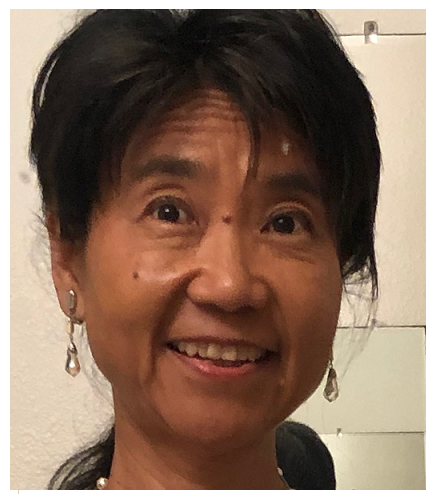
Okuyama, Yoshiko
Yoshiko Okuyama
Read more

Yoshiko Okuyama
| Grant Category: | Fulbright-Nehru Distinguished Scholar Fellowship |
| Project Title: | Interweaving Myths: Teaching the Continuum of Japanese and Indian Mythological Traditions |
| Field of Study: | Area Studies |
| Home Institution: | University of Hawaii at Hilo, Hilo, HI |
| Host Institution: | Jawaharlal Nehru University, New Delhi, Delhi |
| Grant Start Month: | January 2026 |
| Duration of Grant: | Four months |
Brief Bio:
Dr. Yoshiko Okuyama is a full professor of Japanese studies at the University of Hawai‘i at Hilo. Her areas of expertise include Japanese mythology, disability studies, second language acquisition, and technology-enhanced pedagogy. She is currently developing a new course on Japanese comics translation that incorporates AI literacy.
Dr. Okuyama is the author of Tōjisha Manga: Japan’s Graphic Memoirs of Brain and Mental Health (Palgrave Macmillan, 2022), Reframing Disability in Manga (University of Hawai‘i Press, 2020), and Japanese Mythology in Film: A Semiotic Approach to Reading Japanese Film and Anime (Lexington Books, 2015).
She has received numerous grants, fellowships, and awards, including the Association for Asian Studies’ long-term research grant and a Japan Foundation research fellowship. She currently serves as a visiting scholar at Cornell University’s East Asian Studies Program and as an affiliated researcher at the Institute of Ars Vivendi, Ritsumeikan University.
Beyond academic publishing, Dr. Okuyama regularly delivers guest lectures at universities and also serves as a cultural consultant for media outlets such as the National Public Radio, National Geographic, and CNN.
Originally from Tokyo, she now resides in Hawaii. In addition to English and Japanese, she can communicate in American Sign Language. A midlife convert to long-distance running, she has completed numerous races, including full and half marathons. When not chasing publication deadlines or marathon finish lines, she enjoys experimenting with vegetarian recipes which are (mostly) well received by her husband and son.
Dr. Okuyama’s Fulbright-Nehru project involves teaching a course on Japanese mythology at Jawaharlal Nehru University, New Delhi, focusing on film analysis and exploring possible intersections of Japanese mythology with Indian traditions. Using semiotics as a framework, she is helping students explore how myths shape cultural narratives in both Japan and India. The project aims to deepen cross-cultural understanding and enrich the academic discourse on comparative mythology. The results of the research will be disseminated through lectures, conferences, and publications in order to foster future collaborations between Dr. Okuyama’s home and host institutions, thereby advancing the global study of mythology.

Anderson, Miriam
Miriam Anderson
Read more

Miriam Anderson
| Grant Category: | Fulbright-Nehru Student Research Program |
| Project Title: | Rhythm of Healing: Understanding the Body through Dance |
| Field of Study: | Dance |
| Home Institution: | The University of Alabama, Tuscaloosa, AL |
| Host Institution: | Ambedkar University, New Delhi, Delhi |
| Grant Start Month: | September 2025 |
| Duration of Grant: | Nine months |
Brief Bio:
Miriam Anderson is a multimedia artist and graduate of The University of Alabama, where she majored in creative media with a minor in The Blount Scholars Program. Her work bridges the worlds of Bharatanatyam dance and film, reflecting her commitment to both performance and storytelling across disciplines.
After training for five years under Sheila Rubin at Natyananda Dance Company in Birmingham, Alabama, Miriam made her Bharatanatyam arangetram (debut) in June 2024. She has performed in diverse settings, including opening for spiritual leader Sri Sri Ravi Shankar at the BJCC and participating in the Federal Bureau of Investigation’s cultural program. She has also represented Natyananda at the Freeform program with The Dance Foundation. Miriam completed the Warrier Foundation Residency from Coimbatore, India, where she immersed herself in the practice and philosophy of Bharatanatyam. In the spring of 2024, she served as lighting designer and stage manager for the U.S. tour of the renowned Bharatanatyam artist Rama Vaidyanathan, where she was part of productions such as New Dimensions and Ratna Garbha.
Miriam’s interdisciplinary practice allows her to merge cultural research, choreographic exploration, and visual media. Whether behind the camera or on stage, she is drawn to projects that invite reflection, preserve tradition, and build new paths for creative engagement. Her work exemplifies a commitment to honoring classical forms while reimagining how they can speak to contemporary audiences.
For her Fulbright-Nehru project, Miriam is studying Bharatanatyam in Delhi. Her project is exploring the expressive and technical depth of Bharatanatyam, with a focus on breath, alignment, and the creation of original choreography. Drawing from her training and experiences as a non-Indian dancer, she is also involved in producing a series of video essays documenting her artistic process and transformation. These essays attempt to offer a behind-the-scenes look at artistic development, cultural immersion, and the disciplined practice of Bharatanatyam as a living, evolving art form rooted in tradition and personal devotion.
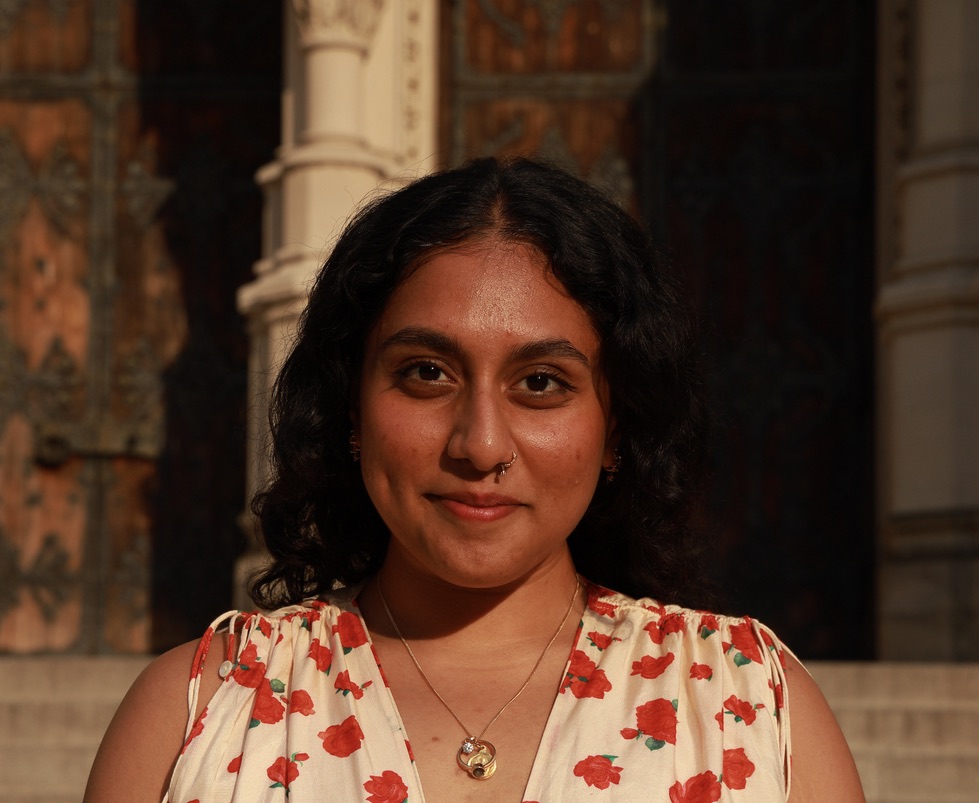
Arumilli, Ramya
Ramya Arumilli
Read more

Ramya Arumilli
| Grant Category: | Fulbright-Nehru Student Research Program |
| Project Title: | Healing Regimens of the “Fertile Subject” in Andhra Pradesh and Telangana |
| Field of Study: | Anthropology |
| Home Institution: | Barnard College, New York, NY |
| Host Institution: | Indian Institute of Science Education and Research Bhopal, Bhopal, Madhya Pradesh |
| Grant Start Month: | September 2025 |
| Duration of Grant: | Nine months |
Brief Bio:
Ramya Arumilli is a recent graduate of Barnard College, where she studied medical anthropology and Sanskrit. Passionate about South Asian medical knowledge systems, expansive modes of healing, and gynecological healthcare, Ramya’s academic interests lie at the intersection of medical anthropology, religion, and feminist science and technology studies.
As a Laidlaw Scholar at Barnard, she studied menstrual health practices in India within the contexts of Ayurveda, Hindu goddess worship, public health interventions, and media representation. Her senior thesis, titled “Religiopolitical Care: Pro- and Anti-Abortion Advocacy in New York City”, was an ethnographic study of abortion-centered religious and political advocacy groups, and of the protest site of a Planned Parenthood clinic in Manhattan. Through these experiences, she was exposed to Hindu and Christian theological conceptions of reproduction in South Asia and the West.
Throughout her undergraduate years, Ramya was a research assistant at the Barnard Center for Research on Women, where she supported and produced feminist research on social movements using archives and oral histories. She was also the co-lead organizer of the Reproductive Justice Collective and a scientific review editor for GYNECA, Columbia University’s undergraduate gynecological health journal. In her free time, she enjoys reading feminist literature, cooking, visiting museums, and practicing yoga.
Ramya’s Fulbright-Nehru research program is studying three significant modes of healing in the Indian Subcontinent – biomedical, spiritual, and indigenous – within the context of fertility treatments in the Telugu-speaking states of India. Her research is based in the cities of Hyderabad, Visakhapatnam, and Rajahmundry, where she is analyzing – within the contexts of gender, religious beliefs, political affiliation, locality, caste, and socioeconomic status – the treatment methods chosen by families seeking fertility care. She is also studying cases in which Ayurveda and other forms of traditional medicine (such as Unani, Siddha, naturopathy, and homeopathy) are prioritized, and how this balances with forms of biomedicine such as IVF. Her research is expected to inform the fertility care provided in biomedical contexts, thereby supporting a patient through as many modes as necessary.
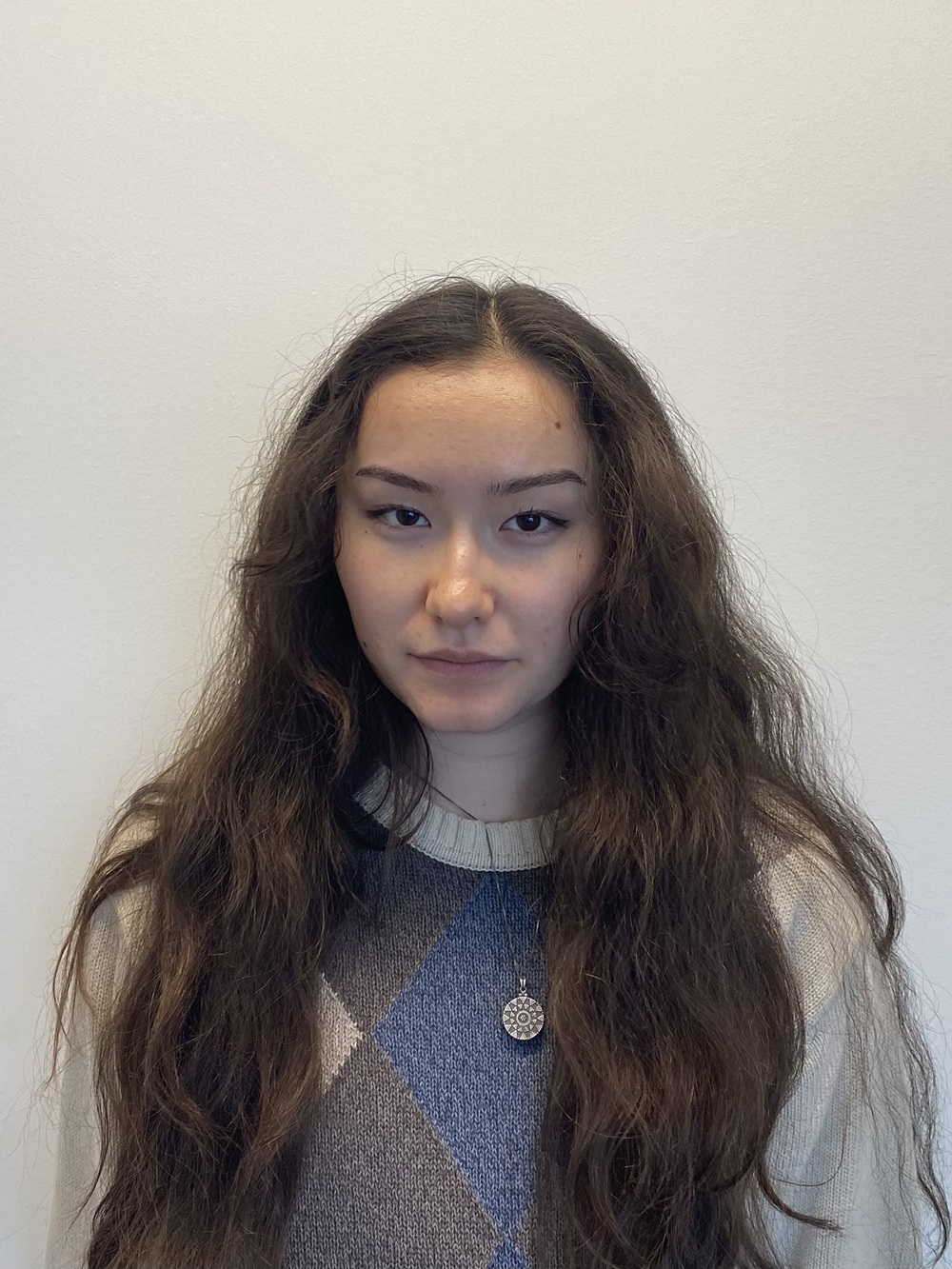
Ball, Wasa
Wasa Ball
Read more

Wasa Ball
| Grant Category: | Fulbright-Nehru Student Research Program |
| Project Title: | Vyakarana and the Sanskrit Linguistic Legacy |
| Field of Study: | Linguistics |
| Home Institution: | Columbia University, New York, NY |
| Host Institution: | Deccan College, Pune, Maharashtra |
| Grant Start Month: | September 2025 |
| Duration of Grant: | Nine months |
Brief Bio:
Wasa Ball graduated from Columbia University with a BA in linguistics and philosophy, and a minor in anthropology. Her research experiences include experimental linguistics fieldwork as an NSF-IRES fellow in Guadeloupe with Dr. Isabelle Barrière, conducting empirical studies on the understudied French-based Creoles, as well as corpora analysis as an NSF-REU research assistant at the AI4CommSci lab with Dr. Joshua Hartshorne, documenting the endangered languages of Taiwan. Other work experience includes two semesters as a teaching assistant. Her interests lie in the interdisciplinary investigation of language, wherein she traces the global grammatical traditions of linguistics and philosophy to diversify and deepen cross-cultural and cross-historical understanding about the field.
Wasa’s Fulbright-Nehru research project is honing in on the legacy of Sanskrit as a language central to the development of linguistics as a field of study, particularly through vyakarana, or grammatical study in ancient India. She is working primarily with the texts of key grammarians like Panini, Yaska, and Bhartrhari to track the history of linguistic analysis across phonology, morphology, syntax, historical linguistics, and the philosophy of language in the early explorations of human language surfacing in Vedic scholarship and in the traditions of methodological linguistic exploration. Based in Pune, Maharashtra, at Deccan College’s Department of Sanskrit, the project, through literary analysis and synthesis of original Sanskrit sources, is tracing the contributions of Sanskrit linguistics to shed light on its cross-historical and cross-cultural impacts. The project is also seeking innovative ways to apply ancient knowledge to today’s global issues in theoretical linguistics.

Bhasker, Hansini
Hansini Bhasker
Read more

Hansini Bhasker
| Grant Category: | Fulbright-Nehru Student Research Program |
| Project Title: | (De)constructing “Disability” in Chennai’s Current Karnatak Music Performance Scene |
| Field of Study: | Anthropology |
| Home Institution: | Wesleyan University, Middletown, CT |
| Host Institution: | University of Madras, Chennai, Tamil Nadu |
| Grant Start Month: | October 2025 |
| Duration of Grant: | Nine months |
Brief Bio:
Hansini Bhasker is a Tamil (ethno)musicologist, multi-genre vocalist, performer, composer, and improviser from Connecticut who deploys embodied music-making and movement for socio-ecological healing and change. She recently received her master’s in music (performance and ethnomusicology) from Wesleyan University. Earlier, she graduated summa cum laude with a degree in music (composition and musicology) from Princeton University, with certificates in vocal performance, cognitive science, entrepreneurship, and finance. She is a YoungArts winner in Voice and winner of the concerto competition of Wesleyan whose musical practice and research bridge across Karnatak, Western classical opera and early choral repertory, French chanson, jazz, pop, musical theater, gospel, R&B, Kazakh folk, Javanese gamelan, and experimental soundscape and extended vocal techniques. Her master’s thesis explored cross-cultural contrasts, evolutions, and interactions in the use and control of vibration, timbre variation, and pitch oscillation in vocalization. Following her Fulbright year, she will be pursuing a PhD in ethnomusicology, dwelling further on questions related to performers’ identity-making through interactions related to the physical environment, accessibility, and legal and sociocultural contexts. She is an avid lover of food, languages, reading, biking, and “musicking”.
Hansini’s Fulbright-Nehru research project is examining how Karnatak performers in Chennai navigate relations between mind, body, ability, and self; the study is based within three distinct contexts: the Tamil Nadu state; the nation of India; and U.S. diasporic organizations. She believes that the current inflectional moment – which celebrates local artists with disability by combining Indian concepts of disability with Western ideas introduced through migratory diasporic engagement – offers an exceptional and timely case study to explore how people negotiate legal and sociocultural conditions in framing and claiming their identities.

Bhat, Roshni
Roshni Bhat
Read more

Roshni Bhat
| Grant Category: | Fulbright-Nehru Student Research Program |
| Project Title: | Looking Ahead: Visual Outcomes for Pediatric Retinoblastoma Patients |
| Field of Study: | Ophthalmology |
| Home Institution: | Tufts University, Medford, MA |
| Host Institution: | Tata Memorial Hospital, Mumbai, Maharashtra |
| Grant Start Month: | September 2025 |
| Duration of Grant: | Nine months |
Brief Bio:
Roshni Bhat received her BS in biopsychology from Tufts University in May 2023. After graduation, she transitioned from her role as an ophthalmic technician to clinical research assistant at Massachusetts Eye and Ear where she joined the Harvard Ophthalmology Metabolomics in Retina (HOMeR) lab, investigating biomarkers for age-related macular degeneration. In this role, she has successfully presented twice at the annual Association of Research in Vision and Ophthalmology conference and most recently at a New England Ophthalmology Society meeting. Prior to her work at Massachusetts Eye and Ear, Roshni had worked closely with ophthalmologists across the globe to help organize the first Global Refractive Surgery Summit which addressed systemic and specific barriers to accessing refractive surgery, a procedure that can help reduce preventable blindness stemming from uncorrected refractive error. Roshni has also assisted with education research and program design at Tufts University School of Medicine’s Center for Science Education.
Beyond her professional endeavors, Roshni is a lifelong learner who loves to teach as well. She is a classically trained Bharatanatyam dancer, plays tennis and soccer, and is also a trained violinist and vocalist. She is an avid reader and baker who loves to explore.
Roshni’s Fulbright-Nehru research is evaluating the functional vision outcomes for pediatric retinoblastoma patients in order to provide valuable insight into the current standard of care and the efficacy of new treatments. Based in Mumbai, she is working closely with the physicians at Tata Memorial Hospital to assess whether new technologies that salvage parts of the eye are providing significant functional vision outcomes in retinoblastoma patients.

Brown, Anjali
Anjali Brown
Read more

Anjali Brown
| Grant Category: | Fulbright-Nehru Student Research Program |
| Project Title: | Assessing the Impact of Maternal Depression on Dyadic Interactions Five Years Postpartum |
| Field of Study: | Psychology |
| Home Institution: | University of Michigan, Ann Arbor, MI |
| Host Institution: | National Institute of Mental Health and Neuro Sciences (NIMHANS), Bengaluru, Karnataka |
| Grant Start Month: | September 2025 |
| Duration of Grant: | Nine months |
Brief Bio:
Anjali Brown is an honors graduate of the University of Michigan, where she earned a BA in philosophy while completing a rigorous pre-medical curriculum. A multiple-year James B. Angell Scholar, Anjali pairs humanistic inquiry with empirical research to address global mental health inequities. At Michigan Medicine, she worked under Dr. Maria Muzik on the NIH-funded prenatal stress and postpartum studies, performing EEG acquisition, clinical intakes, and longitudinal data analysis on mother–infant dyads. Previously, she had co-led a 3,000-participant wearable-sensor study of resident physicians in the Sen Lab to produce actionable insights into disability and burnout in medical training.
Beyond the laboratory, Anjali directs evidence-based service initiatives. As a peer counselor, she delivers one-on-one psychological support to fellow students, and as the volunteer team lead for Michigan Medicine’s Hospital Elder Life Program, she trains volunteers and designs engagement protocols that reduce delirium and isolation in older inpatients. She has also co-developed a biodegradable menstrual pad for women in rural Peru. Anjali has won top honors at the Center for Global Health Equity pitch competition and has authored an illustrated menstrual-health guide for girls at the Chinmaya Vijaya Orphanage, Andhra Pradesh, India.
Anjali aspires to become a psychiatrist-researcher who integrates culturally responsive clinical practice with policy-relevant scholarship to advance maternal mental health worldwide.
Anjali’s Fulbright-Nehru project is investigating how maternal depression shapes mother–child interactions in urban India during five years of the postpartum period. Working with Dr. Prabha Chandra at NIMHANS, she is coding and statistically analyzing 300 video recordings from the Bangalore Child Health and Development Study to illuminate how maternal depression shapes mother–child interactions. She is also holding caregiver interviews to supply the sociocultural context. In parallel, she is conducting a systematic study on adolescent perinatal mental health and the impact of neighborhood violence during pregnancy in order to identify policy gaps. Her findings will inform culturally attuned interventions that strengthen community-based maternal mental health services in low-resource settings.
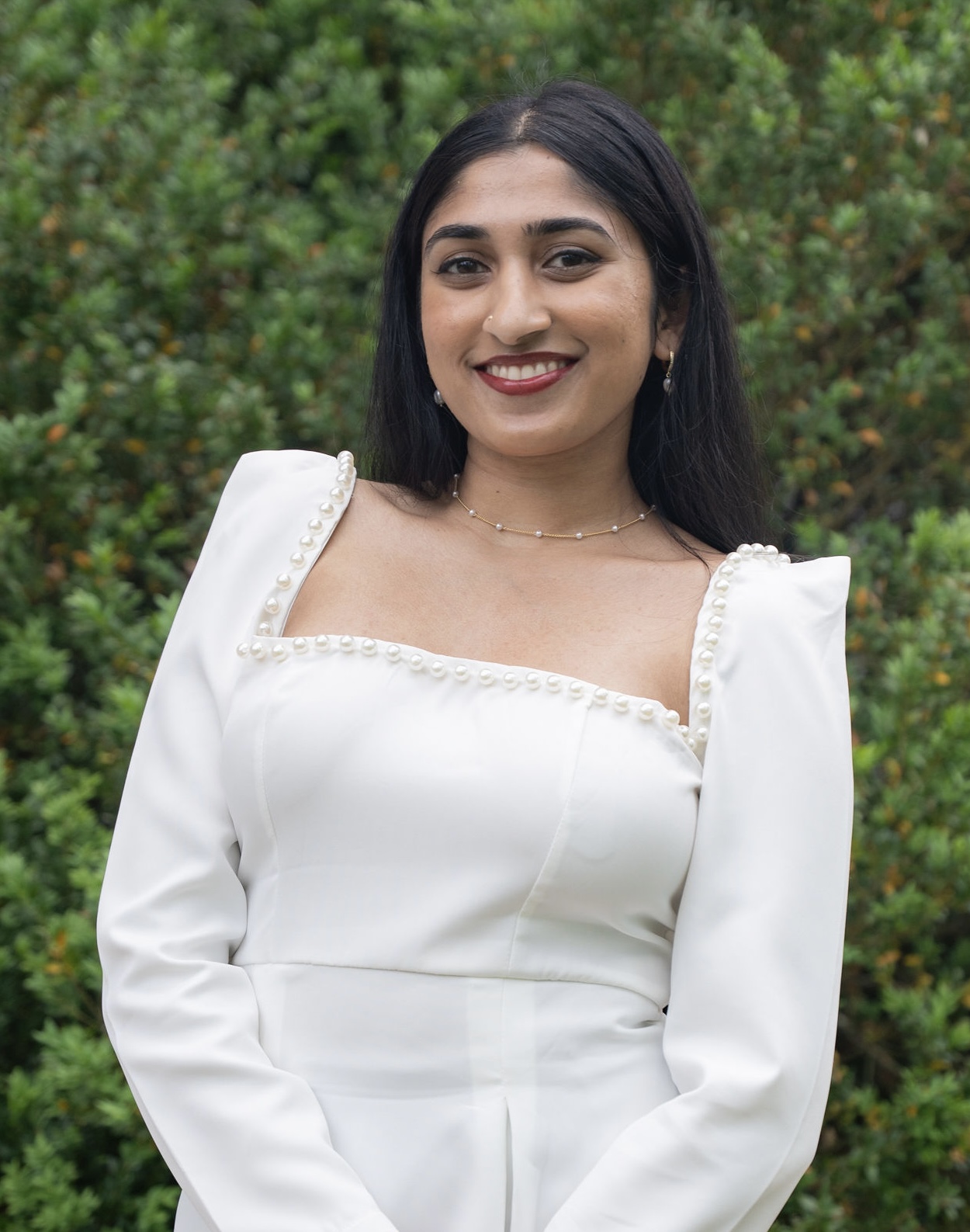
Chamarthi, Jahnavi
Jahnavi Chamarthi
Read more

Jahnavi Chamarthi
| Grant Category: | Fulbright-Nehru Student Research Program |
| Project Title: | Caste & Gender in Tamil Nadu's Legislative Assemblies: Implications for Maternal Healthcare |
| Field of Study: | Political Science |
| Home Institution: | Emory University, Atlanta, GA |
| Host Institution: | SRM Institute of Science & Technology, Kattankulathur, Tamil Nadu |
| Grant Start Month: | September 2025 |
| Duration of Grant: | Nine months |
Brief Bio:
Jahnavi Chamarthi is a recent graduate of Emory University, where she earned a BA in political science with a minor in predictive health. A member of the Phi Beta Kappa Society and Emory’s 100 Senior Honorary, she was awarded the highest honors for her thesis investigating how the intersectional representation of women from Scheduled Caste and Tribe backgrounds in Indian state legislatures influences budgetary and legislative outcomes on healthcare and education policies for lower caste women. Drawing on theories of descriptive and substantive representation, her work introduced an original quantitative index to assess how identity-based leadership shapes legislative priorities.
Jahnavi’s interdisciplinary approach to research is reflected in her forthcoming co-authored article, “Cultivating Attentiveness to Law in India through Legal Anthropology”, in the Socio-Legal Review. At Emory, she served as a research assistant at the School of Law, a staff writer for the Emory Political Review, and as an intern at the Center for Civic and Community Engagement. Her leadership roles in Emory’s South Asian cultural and dance organizations further underscore her commitment to building inclusive, collaborative spaces rooted in cultural identity.
Jahnavi’s Fulbright-Nehru research is building directly on her undergraduate thesis. Through interviews with legislators, policy advocates, and public health stakeholders, she is examining how caste and gender influence the implementation – not just adoption – of maternal health programs in Tamil Nadu. She is exploring how women from marginalized caste backgrounds in legislative bodies, who share identities with their constituents, translate descriptive representation into substantive policy advocacy and implementation. The study is also examining the effects of India’s quota systems, which reserve seats for lower caste individuals and women. Using a mixed-methods approach, the research is analyzing stakeholder interviews and quantitative data on healthcare access in order to assess maternal healthcare implementation in districts of varying intersectional representation. Her project aims to advance a deeper understanding of intersectional political representation and its potential to drive more equitable public health outcomes in Tamil Nadu.

Cox, Aidan
Aidan Cox
Read more

Aidan Cox
| Grant Category: | Fulbright-Nehru Student Research Program |
| Project Title: | Language Ideology and Multilingualism in Andhra Pradesh, India |
| Field of Study: | Anthropology |
| Home Institution: | University of South Florida, Tampa, FL |
| Host Institution: | University of Hyderabad, Hyderabad, Telangana |
| Grant Start Month: | September 2025 |
| Duration of Grant: | Nine months |
Brief Bio:
Aidan Cox, a graduate of the University of South Florida, earned a summa cum laude degree in anthropology and world languages and cultures, with a concentration in applied linguistics and French and Francophone studies. His passion lies in the worldwide preservation and revitalization of minority language. Aidan has conducted linguistic research on Telugu, French, Spanish, and other languages. He has presented his findings at English and French conferences. His focus has been on the Telugu-speaking region of South India, a unique area for linguistic study. His previous projects include “Properly Cheppu: Early Balanced Bilingualism in a Telugu-English Household”, “Pedagogy of Telugu Verb Structure”, and “A Linguistic Sketch of Telugu”.
Aidan’s Fulbright-Nehru research project is conducting fieldwork in India to deepen understanding of linguistic attitudes and social behaviors. He is integrating methods from sociolinguistics, linguistic anthropology, and cultural anthropology to develop innovative approaches that benefit minority and tribal populations. Working with the University of Hyderabad, he is specifically exploring interactions in the Kui language among the Kandha tribe in order to examine language’s role in identity, cultural heritage, and indigeneity. He is also analyzing Kui language-use patterns, including ideologies surrounding the language. One of the aims of the project is to combat the decline of endangered languages.
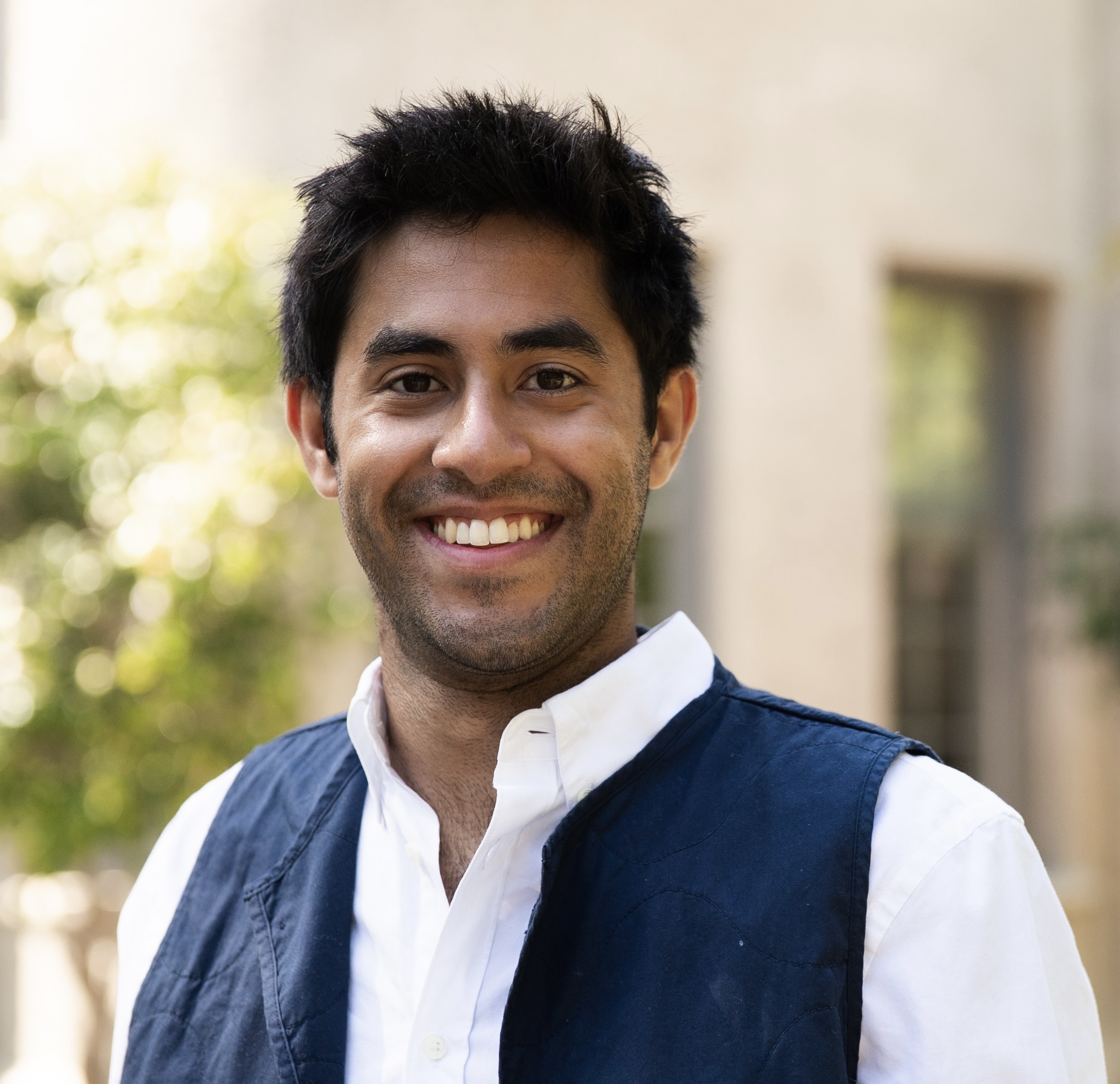
Dhankhar, Riaan
Riaan Dhankhar
Read more

Riaan Dhankhar
| Grant Category: | Fulbright-Nehru Student Research Program |
| Project Title: | India’s Centrality to a Resurgent “QUAD” |
| Field of Study: | International Relations |
| Home Institution: | Pomona College, Claremont, CA |
| Host Institution: | Jawaharlal Nehru University, New Delhi, Delhi |
| Grant Start Month: | September 2025 |
| Duration of Grant: | Nine months |
Brief Bio:
Riaan Dhankhar studies international relations, focusing on South Asia and European affairs. He graduated with a BA in international relations from Pomona College in 2025. As an undergraduate, he interned at the Wilson Center, the U.S. Department of State, and the U.S. Congress. During his time at the State Department, Riaan served as a liaison officer at the 75th Anniversary NATO Summit which helped him develop a keen interest in studying how states, especially in the Indo-Pacific, can develop closer ties through strategic security-driven multilateral cooperation.
He was born in Mumbai and grew up in New Jersey.
Riaan’s Fulbright-Nehru project, “India’s Centrality to a Resurgent QUAD”, is investigating Indo-U.S. military engagement within the Quadrilateral Security Dialogue (QUAD) forum. Conducted in affiliation with Jawaharlal Nehru University, New Delhi, his research is analyzing historical dynamics, contemporary policies, and future strategic scenarios shaping QUAD relations.
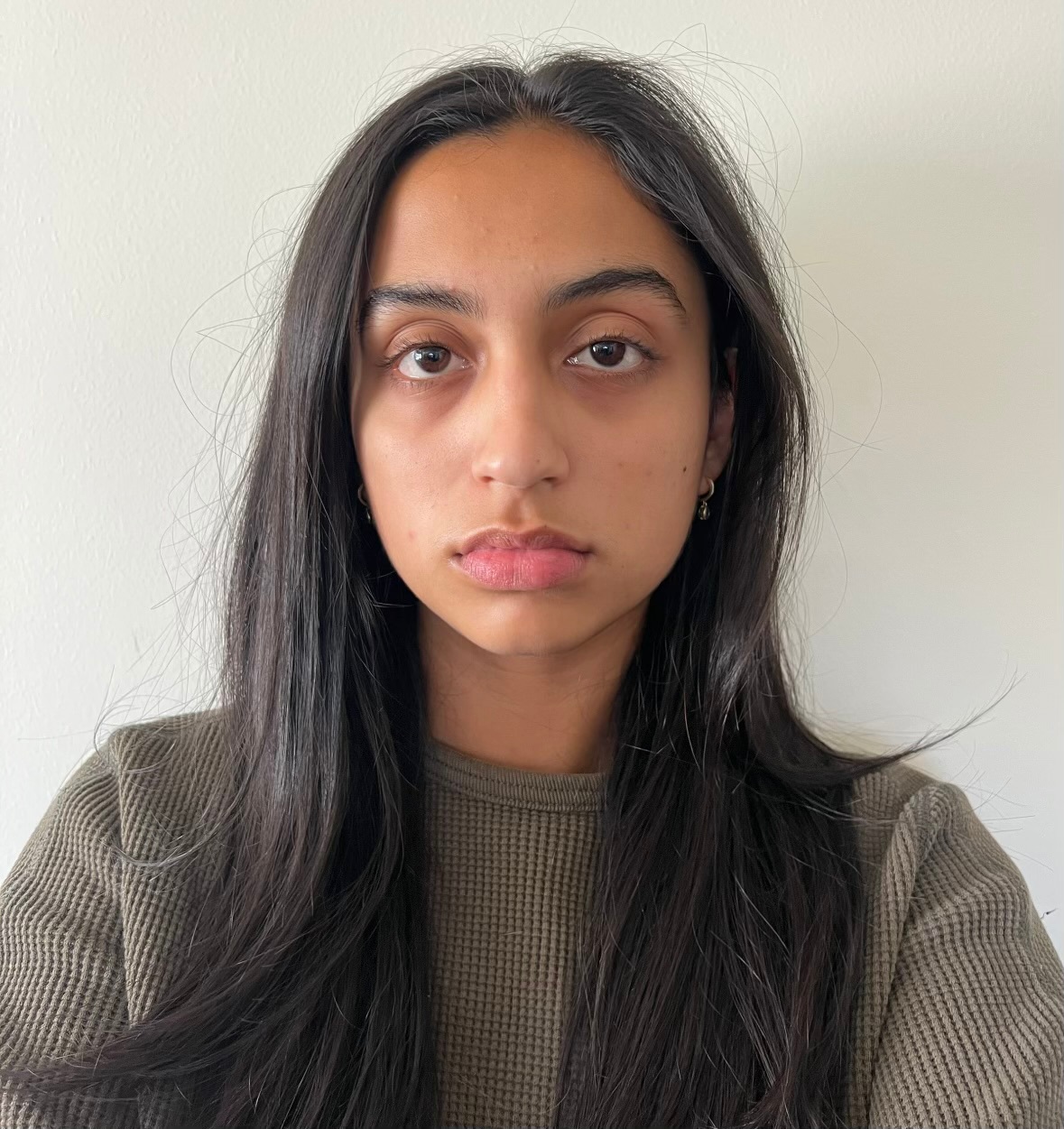
Fazili, Abia
Abia Fazili
Read more

Abia Fazili
| Grant Category: | Fulbright-Nehru Student Research Program |
| Project Title: | Identifying the Methods of Mystic Poetry |
| Field of Study: | Creative Writing |
| Home Institution: | Emory University, Atlanta, GA |
| Host Institution: | University of Hyderabad, Hyderabad, Telangana |
| Grant Start Month: | September 2025 |
| Duration of Grant: | Nine months |
Brief Bio:
Abia Fazili is a poet from Salt Lake City, Utah. She graduated in English and creative writing from Emory University. She writes fiction about South Asian immigrant and diaspora experiences, and poetry about the natural world, love and heartbreak, and anything that may inspire her. At Emory, she worked as an editor of the university’s literary magazine for several years. She is interested in the interdisciplinary application of poetry and works with cancer patients and their family members at writing workshops. Abia’s research interests lie in the history of Indian mystics and the use of Indian poetic traditions in contemporary Western literature.
Abia’s Fulbright-Nehru research project, based in Hyderabad, is studying the poetic traditions and practices of both the Hindu Bhakti and Islamic Sufi streams. Her research is identifying the techniques and elements of both traditions’ poetry and comparing them with methods used by contemporary Western poets. She expects her research and immersive experiences to aid her in writing her own collection of modern, mystic poems.
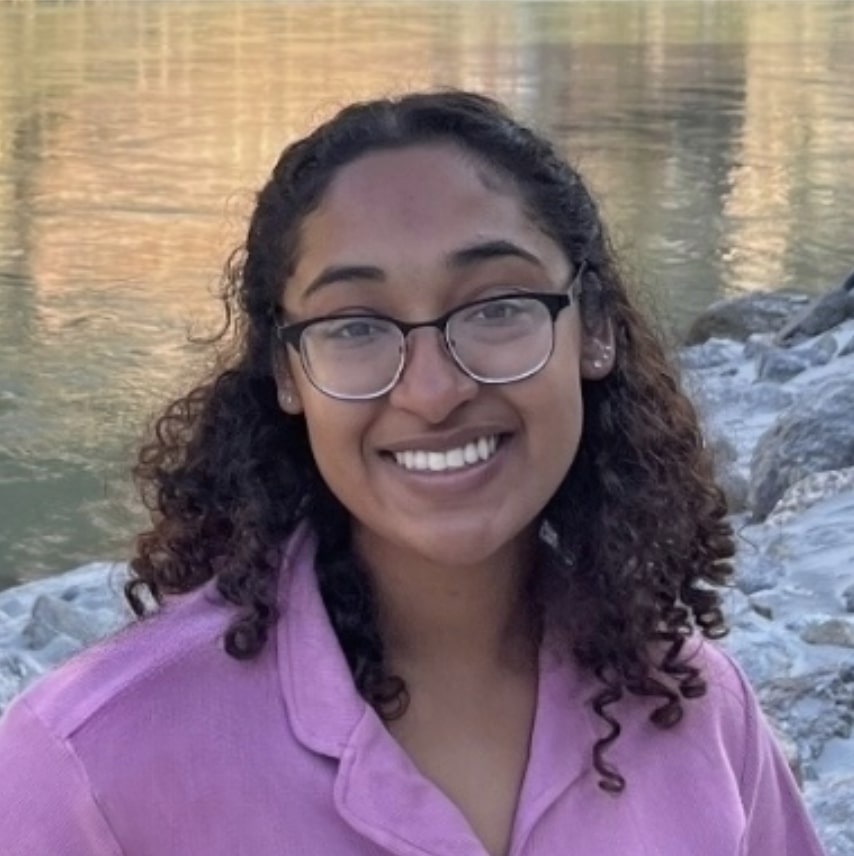
Fisher, Sienna
Sienna Fisher
Read more

Sienna Fisher
| Grant Category: | Fulbright-Nehru Student Research Program |
| Project Title: | Health, Perceptions, and Practices of Older Women in Rural India |
| Field of Study: | Public Health |
| Home Institution: | Trinity University, San Antonio, TX |
| Host Institution: | Jawaharlal Nehru University, New Delhi, Delhi |
| Grant Start Month: | September 2025 |
| Duration of Grant: | Nine months |
Brief Bio:
Sienna Fisher graduated from Trinity University with a degree in international studies, concentrating in global health, and with a minor in women and gender studies. Throughout her undergraduate career, she engaged with interdisciplinary coursework which deepened her interest in the sociocultural determinants of health and healthcare accessibility. This academic foundation enabled her to pursue research across a range of topics, including narrative medicine, digital health communications, and women’s health.
Sienna first came to India in the fall of 2023 with the School for International Training to study public health, gender, and sexuality. During her semester abroad, she completed an internship with Aarohi, a nongovernmental organization in rural Uttarakhand. She collaborated with Aarohi’s Medical Mobile Unit and home health team during health camps and visits, and also conducted independent research on the evolution of women’s health in the Kumaon region of the Himalaya.
Since graduation, Sienna has worked as a medical assistant in interventional pain management and dermatology clinics. She hopes to integrate her passion for medicine, gender studies, and the humanities to improve healthcare accessibility and address health disparities within her community and beyond.
Sienna’s Fulbright-Nehru research project is focusing on the health experiences and perceptions of women aged 40 and above within marginalized communities in the rural regions of India. The study is exploring their overall health and health-seeking behaviors, with a focus on menopause, as well as reproductive and sexual health. She is also investigating the role of traditional health practices in addressing health needs when formal treatment is unavailable or inaccessible.
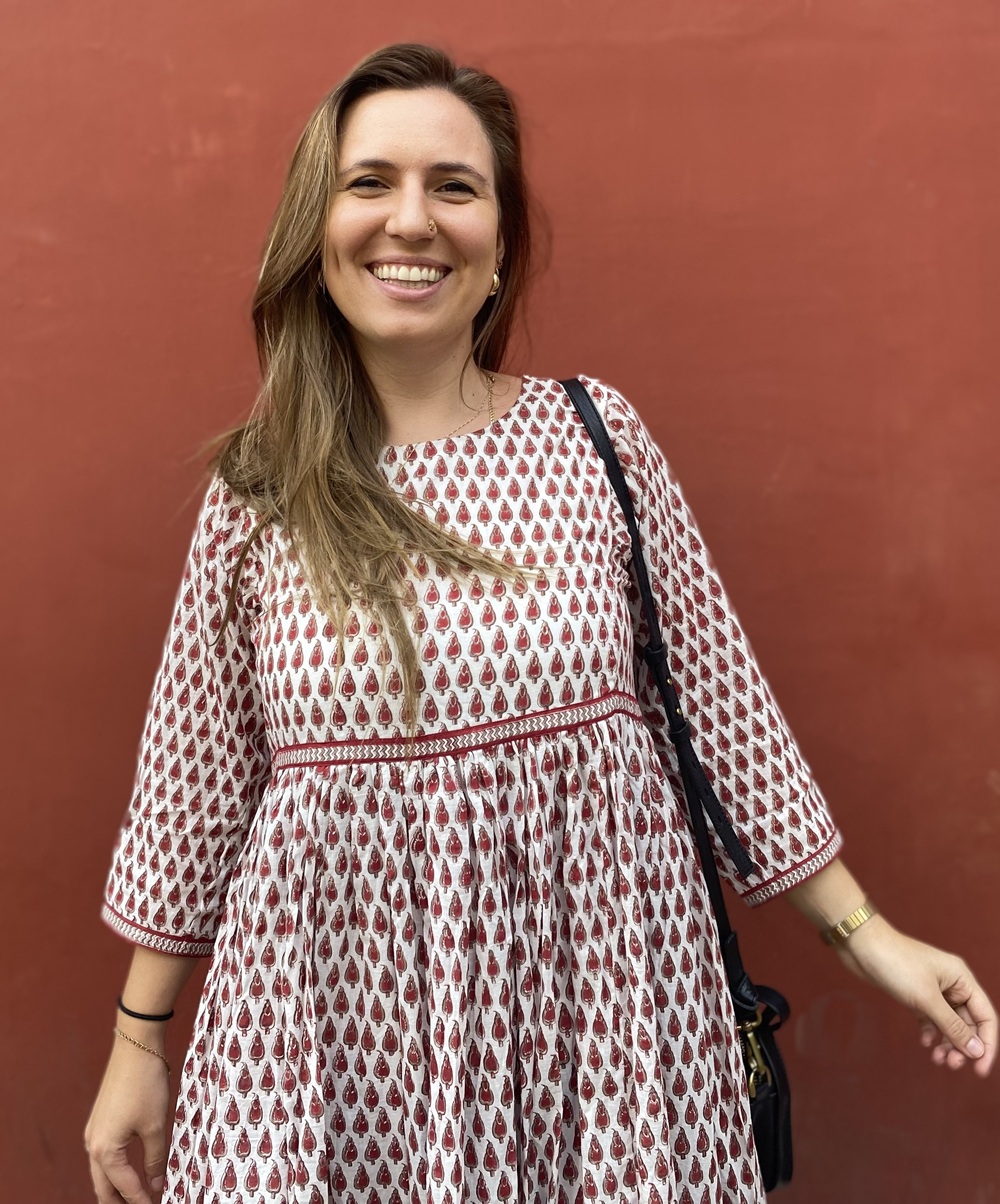
Fredsell, Anya
Anya Fredsell
Read more

Anya Fredsell
| Grant Category: | Fulbright-Nehru Student Research Program |
| Project Title: | Place-based Deities in Contemporary South India |
| Field of Study: | Anthropology |
| Home Institution: | Emory University, Atlanta, GA |
| Host Institution: | The American College, Madurai, Tamil Nadu |
| Grant Start Month: | October 2025 |
| Duration of Grant: | Nine months |
Brief Bio:
Anya Fredsell is a doctoral student in the Graduate Division of Religion at Emory University. Her academic interests include South Asian religions, Tamil language and culture, gender and sexuality studies, and ethnography of religion. Her research relies on ethnographic methodologies to examine relationships among families, land, and deities in contemporary Tamil Nadu, India. Anya received her BA in religious studies from Elon University and an MTS in global religions from Emory’s Candler School of Theology.
Anya’s Fulbright-Nehru research project on place-based Hindu deities is examining, through ethnographic fieldwork, the shifting relationships between families, land, and religious practices in contemporary South India. Her research is analyzing the worship of Tamil lineage deities (kula devams) – the gods who are passed down generationally in families and who reside on ancestral land – to explore how conceptions of lineage and religious devotion are intimately tied to land and negotiated through the worship of place-based deities in South India. Despite contemporary processes of urbanization and migration that relocate families away from their native land, Tamil people continue to worship these deities by returning to ancestral villages or conducting elaborate rituals to permanently move their deities closer to the family. Drawing on her established research contacts and advanced Tamil language proficiency, Anya is following such movements of people and place-based deities by observing festivals and life-cycle rites, and through semi-structured interviews on family histories and deity narratives. The study is taking place in a village near the urban center of Madurai, Tamil Nadu. This project will form the basis of Anya’s doctoral dissertation at Emory University and is expected to culminate in her first book.

Gandhi, Anuj
Anuj Gandhi
Read more

Anuj Gandhi
| Grant Category: | Fulbright-Nehru Student Research Program |
| Project Title: | Exploring Mental Health and Improving Care for the Globalized Indian |
| Field of Study: | Psychology |
| Home Institution: | Saint Louis University, St. Louis, MO |
| Host Institution: | Tata Institute of Social Sciences, Mumbai, Maharashtra |
| Grant Start Month: | September 2025 |
| Duration of Grant: | Eight months |
Brief Bio:
Anuj Gandhi is a passionate mental health advocate and researcher who leads with love and light. He takes an interdisciplinary approach to build community-driven programs rooted in research, education, and storytelling.
Anuj has worked as a youth mental health advocate in several organizations, including the National Alliance on Mental Illness, WE ARE SAATH, The Steve Fund, The Trevor Project, and the Mental Health Literacy Collaborative. He is most proud of his work in improving mental health resources at his alma mater, Saint Louis University. He recently founded MyJyoti, a South Asian mental health advocacy, storytelling, and media platform and community organization.
Along with his commitment to advocacy and activism, Anuj is an experienced community-based researcher. His research interests broadly encompass community-driven mental health interventions, cultural identity and humility, complementary practices, and global mental health. He recently worked as a research specialist at the Institute of Juvenile Research in the Department of Psychiatry at the University of Illinois Chicago and as a Program Facilitator for Lurie Children’s Hospital. In these roles, he facilitated educational programs for youth of color, focused on civic engagement, activism, racial justice, health equity, and mindfulness as part of clinical trial interventions for youth well-being.
Anuj’s Fulbright-Nehru research project is examining how globalization-based acculturation influences young Indian adults’ attitudes toward mental health and treatment; in this context, he is also comparing Western psychiatric care and traditional Indian medicine (Ayush). Using a sequential explanatory design, the study is conducting a quantitative survey and focus group discussions with treatment seekers, practitioners, and advocates. The findings aim to inform culturally responsive mental healthcare and provide an educational toolkit for globalized Indians.
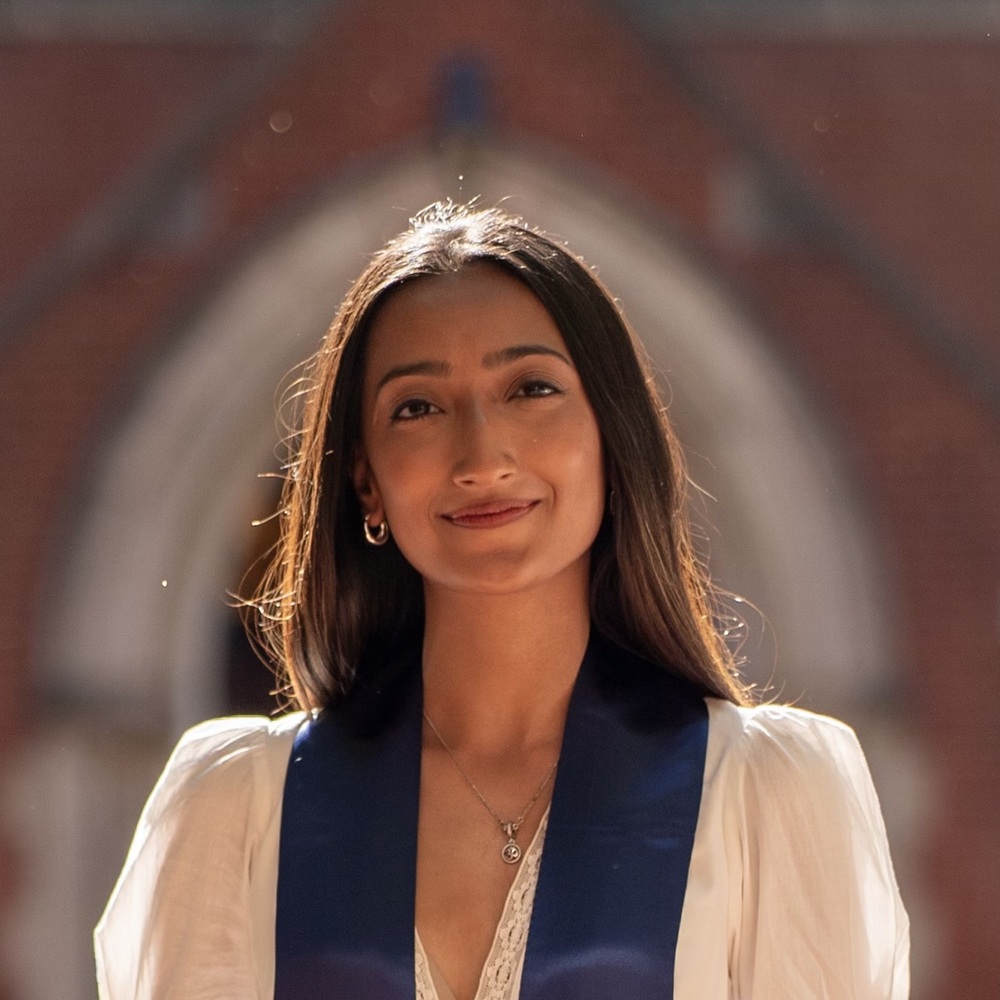
Gandhi, Shagun
Shagun Gandhi
Read more

Shagun Gandhi
| Grant Category: | Fulbright-Nehru Student Research Program |
| Project Title: | Investigating Head and Neck Cancer Survivorship in India |
| Field of Study: | Psychology |
| Home Institution: | At-Large, Ashburn, VA |
| Host Institution: | Tata Memorial Centre, Mumbai, Maharashtra |
| Grant Start Month: | October 2025 |
| Duration of Grant: | Nine months |
Brief Bio:
Shagun Gandhi is a 2025 graduate of Georgetown University, where she earned her BSc in human science with a minor in disability studies. Her academic and professional interests lie at the intersection of oncology, public health, and psychosocial care. As a medical scribe at George Washington University’s Otolaryngology/Head and Neck Surgery Department, she works closely with surgeons, speech pathologists, and patients, which has deepened her understanding of the lived experience of head and neck cancer survivors. She is concurrently engaged in molecular genetics research at Georgetown, where she investigates DNA double-strand break repair mechanisms that contribute to genome instability and cancer. Her work contributed to a peer-reviewed publication in PLOS Genetics.
Shagun was selected as a Laidlaw Scholar and a SMURF Fellow through which she conducted independent research, mentored younger scholars, and presented findings at national conferences. Her leadership also extended to service initiatives, including her role as president of the Georgetown University Oncology Patient Support (GU-OPS) group, which works to improve the quality of life of patients at the Lombardi Comprehensive Cancer Center. These experiences allowed her to develop expertise in both qualitative and quantitative research methodologies, as well as gave her a multidimensional perspective on cancer care delivery.
Her broader interests include global oncology, disability advocacy, and medical humanities. She is passionate about building bridges between clinical medicine and research, with the ultimate goal of becoming a physician-scientist dedicated to improving survivorship outcomes for underserved populations.
Shagun’s Fulbright-Nehru research project is investigating the psychosocial experiences of head and neck cancer survivors in India. Partnering with the Tata Memorial Centre in Mumbai and the Government Cancer Hospital in Chhatrapati Sambhajinagar, Maharashtra, she is conducting focus group discussions and interviews with survivors to explore themes such as emotional well-being, social support, and barriers to rehabilitation. Using thematic analysis and the NVivo software, she aims to identify culturally specific survivorship needs and thus inform patient-centered care models. Her work will generate actionable insights for oncology providers and also contribute to the development of long-term psychosocial support frameworks for cancer survivors in India.
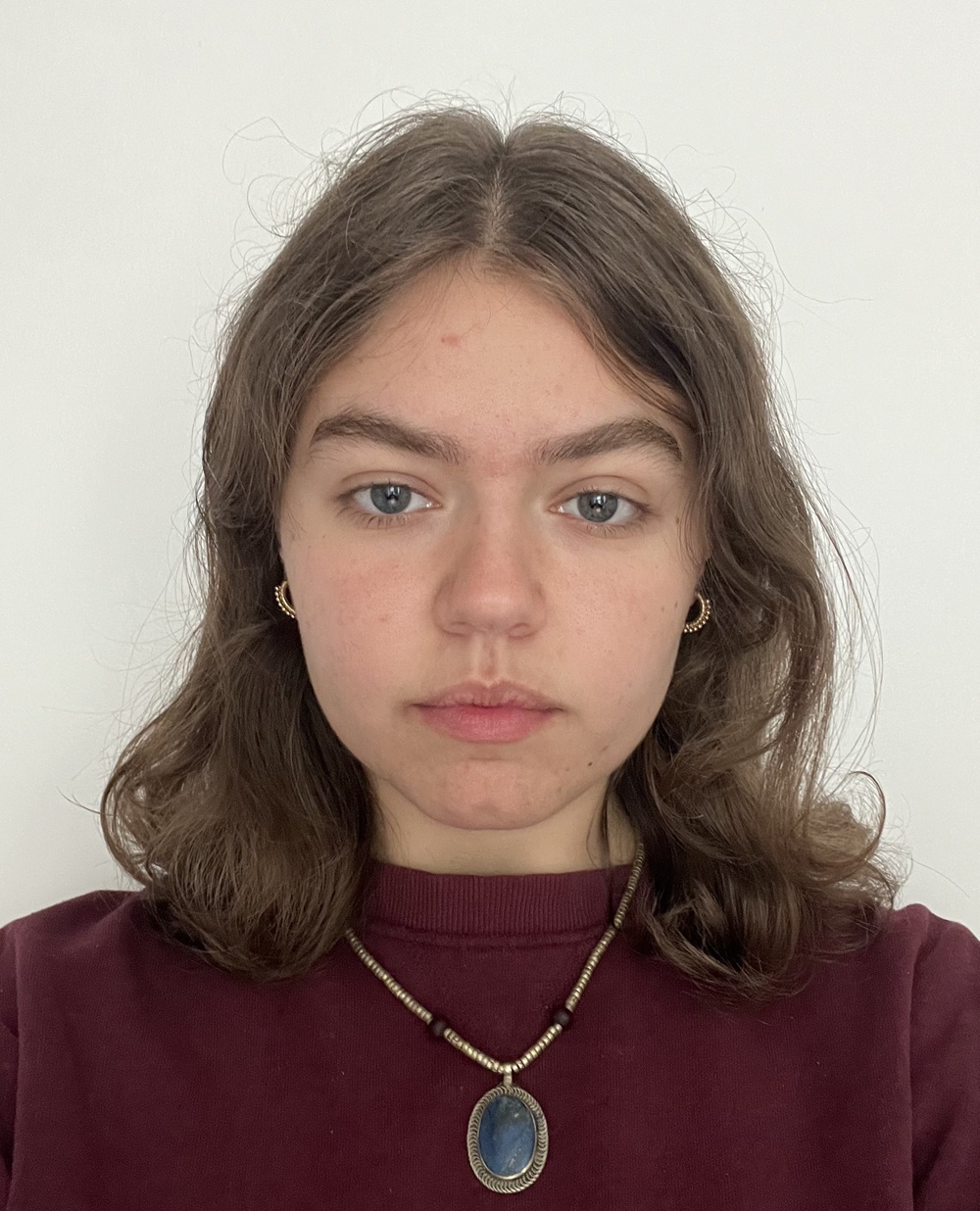
Giancola, Cecilia
Cecilia Giancola
Read more

Cecilia Giancola
| Grant Category: | Fulbright-Nehru Student Research Program |
| Project Title: | Smuggling Sovereignty: Baroda and the British Foundations of Rule in Western India |
| Field of Study: | History |
| Home Institution: | Bard College, Annandale-on-Hudson, NY |
| Host Institution: | The Maharaja Sayajirao University of Baroda, Vadodara, Gujarat |
| Grant Start Month: | September 2025 |
| Duration of Grant: | Nine months |
Brief Bio:
Cecilia Giancola is a graduate of Bard College, where she majored in historical studies and minored in economics. She has worked as a research assistant to Professor Karen Barkey, a historical sociologist of empires, with whom she has co-authored a forthcoming chapter on states and empires for the Encyclopedia of Global Social Theory. Through Bard College’s senior-to-senior grant, Cecilia conducted archival research at the British Library in London in January 2025, which contributed to her senior project, a thesis-length work entitled “‘An Engagement of Extraordinary Nature:’ Baroda, the Bankers’ Army, and the British Bahendari, 1800–1833”. The project won the Marc Bloch Prize for the best Senior Project in History. Cecilia is also a recipient of Bard’s Li-hua Ying Fund for Asian Studies. In her junior year, she had won the Margaret and John Bard award for excellence in social studies.
Cecilia is interested in the processes of state formation and consolidation, with special attention on colonial states. This led Cecilia to explore the British East India Company, a corporation which managed the first century of British colonial rule in India. She is particularly interested in how Indian bankers and other financial agents clashed (and meshed) with the Company in the 18th and 19th centuries. Her other interests include the political and social mechanisms of debt in India, the role of tax revenues in facilitating the drain of wealth from India, and the social culture of India’s early colonial society.
Cecilia’s Fulbright-Nehru project is conducting archival research focusing on the operations of the Baroda (Gaikwad) state in western India during the 19th century, narrowing in on its interactions with the British Raj under the context of “smuggling” and illicit trade policies. Specifically, she is examining the role of the Malwa opium trade, an indigenously controlled trade which rivaled the East India Company’s Bengal opium monopoly. Cecilia is exploring to what extent opium trade and “smuggling” was utilized by the British as a pretext for the expansion of the colonial state and the elimination of powerful indigenous capital in Baroda and western India.
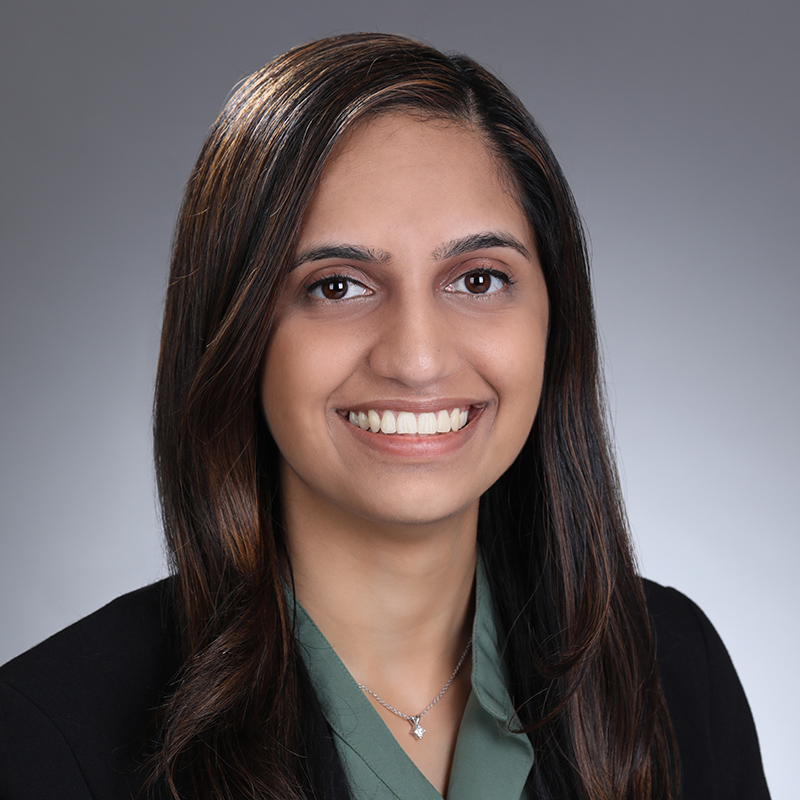
Gongalore, Trisha
Trisha Gongalore
Read more

Trisha Gongalore
| Grant Category: | Fulbright-Nehru Student Research Program |
| Project Title: | Assessment of Exosome Drug Delivery Vehicle in Midbrain Organoids from Sporadic PD iPSCs |
| Field of Study: | Neuroscience |
| Home Institution: | Pomona College, Claremont, CA |
| Host Institution: | National Institute of Mental Health and Neuro Sciences (NIMHANS), Bengaluru, Karnataka |
| Grant Start Month: | September 2025 |
| Duration of Grant: | Nine months |
Brief Bio:
Trisha Gongalore is a dedicated multidisciplinary scholar who recently completed her BA in neuroscience from Pomona College, where she engaged deeply with coursework spanning neurobiology, biochemistry, genetics, and public health. Her academic and research interests lie at the intersection of molecular neuroscience, neurodegeneration, and health equity, with a specific focus on Parkinson’s Disease (PD). She has conducted research across five laboratories, mastering techniques such as electrophysiology, immunohistochemistry, and molecular cloning. Notably, she has investigated alpha-synuclein aggregation in fruit flies, heteroplasmy in mouse myoblasts, and cholinergic signaling in C. elegans. Her work has been shared at the International Congress of Parkinson’s Disease and Movement Disorders and the Genetics Society of America’s 66th Drosophila Research Conference. A paper that she co-authored is currently under review to be published in peer-reviewed journals like Developmental Biology.
Trisha’s commitment to health equity is embodied by her leadership in the student-run organization, Health Bridges, at the Draper Center for Community Partnerships in Pomona College, where she organized health fairs and gathered and analyzed uniquely disaggregated data for the Tongan American populations in the Inland Empire. She has also studied abroad in Argentina, where she learned about public health issues on an international scale and worked with dementia patients to explore the benefits of community-based, non-pharmaceutical interventions.
Trisha’s Fulbright-Nehru research at NIMHANS under Dr. Indrani Datta is investigating the mechanism behind exosome-mediated delivery of a neuroprotective drug to midbrain organoids derived from sporadic PD patients in India. Addressing the limitations of current PD therapies, the treatment aims to reduce oxidative stress and support neuronal regeneration using mesenchymal stromal cell-derived exosomes that cross the blood-brain barrier. Leveraging NIMHANS’ expertise in the LRRK2-I1371V mutation, more common in the Eastern Hemisphere PD populations, Trisha is evaluating treatment efficacy through advanced imaging, electrophysiology, and biochemical assays. The study aims to develop more effective, non-invasive therapeutic approaches tailored for the PD population in India.
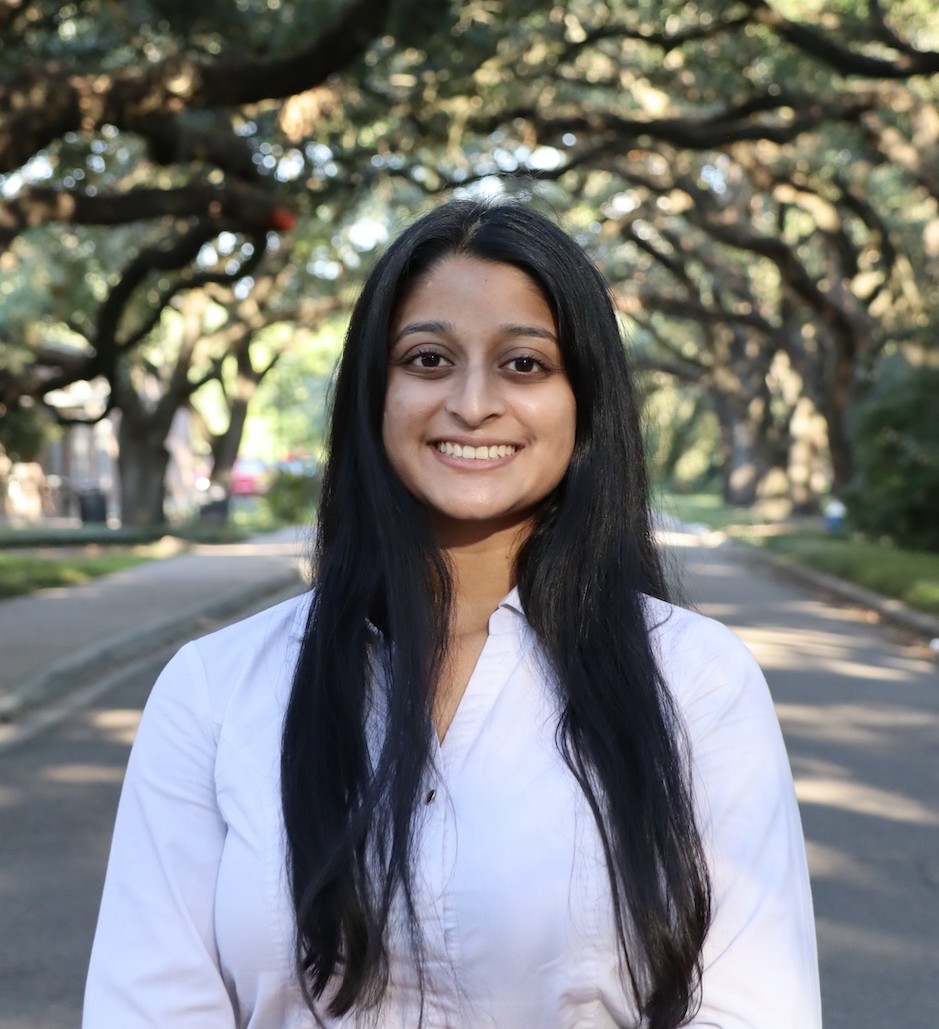
Gupta, Shrutika
Shrutika Gupta
Read more

Shrutika Gupta
| Grant Category: | Fulbright-Nehru Student Research Program |
| Project Title: | Cultural Influences on Women’s Engagement with Healthcare Systems during the Postpartum Period |
| Field of Study: | Public Health |
| Home Institution: | Rice University, Houston, TX |
| Host Institution: | Indian Institute of Technology - Bombay, Mumbai, Maharashtra |
| Grant Start Month: | September 2025 |
| Duration of Grant: | Nine months |
Brief Bio:
Shrutika Gupta is a recent graduate of Rice University, where she earned a BSc in biosciences cum laude and completed minor studies in global health technologies and medical humanities. While at Rice, Gupta was awarded the Wagoner Fellowship to conduct research in global surgery at the University of Oxford. Her work examined disparities in clinical outcomes after pediatric surgery across different countries. Shrutika also spent time in Dar es Salaam, Tanzania, with NEST360, an international alliance working to end preventable newborn deaths. There, she investigated the impact of hospital infrastructure on sick newborn care. She was also an undergraduate researcher in genome editing and neuroscience labs at the Bioscience Research Collaborative.
Shrutika is particularly passionate about developing accessible healthcare solutions. Through a Rice incubator program, she is developing a health intervention to improve access to maternal care in the rural areas of Texas. She has also collaborated on multiple medical device projects, including NeoTube, a neonatal feeding tube solution; ReVulva, a vulvar cancer training model (with Rice360 and the MD Anderson Cancer Center); and Brain Power, a low-cost intuitive EEG device (with Rice360, Georgetown MedStar, and the Queen Elizabeth Central Hospital in Malawi). She was a finalist at the Johns Hopkins Healthcare Design Competition as part of Team NeoTube, and she has also presented her work on Brain Power at the Houston Global Health Conference.
Shrutika’s Fulbright-Nehru research project is investigating the impact of cultural practices on women’s engagement with healthcare systems during the postpartum period. As part of her study, she is interacting with patients, healthcare workers, and family members of patients to gather well-rounded and diverse perspectives. The goal is to identify trends that can help guide the development of interventions to minimize health inequities in India.
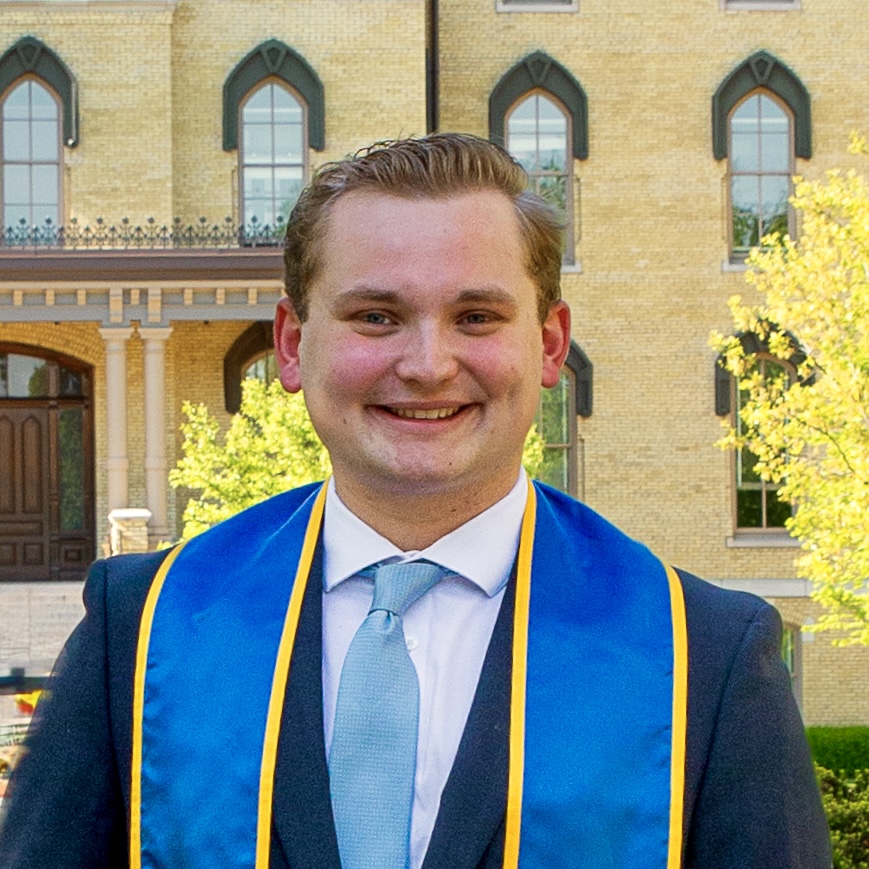
Harned, Ethan
Ethan Harned
Read more

Ethan Harned
| Grant Category: | Fulbright-Nehru Student Research Program |
| Project Title: | Improving Care for India’s Youth: How Palliative Care is Building Adolescent Programs |
| Field of Study: | Public Health |
| Home Institution: | University of Notre Dame, Notre Dame, IN |
| Host Institution: | SGT University, Gurugram, Haryana |
| Grant Start Month: | September 2025 |
| Duration of Grant: | Nine months |
Brief Bio:
Ethan Harned is a graduate of the University of Notre Dame. He is a pre-medical student with a background in psychology and compassionate medical care. At Notre Dame, he was awarded the prestigious Hesburgh-Yusko merit scholarship which is given to students who demonstrate scholarship, leadership, and commitment to social justice.
In his career, Ethan is pursuing a combined medical and public health degree to support pediatric patients who live in life-limiting conditions and to improve systems by working closely with them. Ethan exemplifies a steadfast commitment to global health and aims to make a meaningful impact on the lives of pediatric palliative care patients and their families worldwide.
Ethan’s Fulbright-Nehru project is studying how palliative care programs are designed for adolescents in India. The project is located in the states of Haryana and Kerala which represent contrasting environments for access to palliative care – while palliative care is an emerging specialty in Haryana, it is well developed in Kerala. He is conducting interviews and focus group discussions with stakeholders such as policymakers, healthcare providers, caregivers, and adults in the 18–24 age group. These interactions are examining how palliative care programs in India meet the needs of their adolescent patients and the status of response to such programs. The aim of the research is to provide a framework to improve access to palliative care for adolescents across India and share lessons between the U.S. and India on caring for this population.
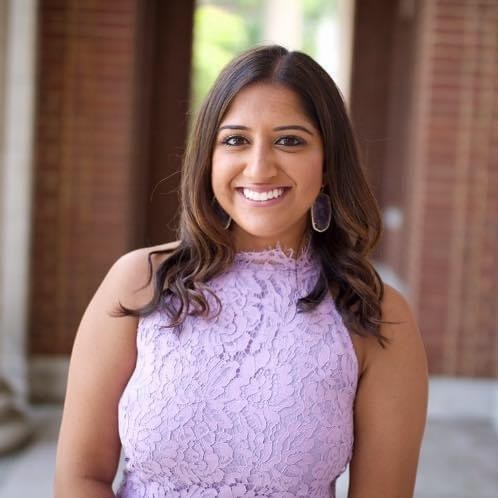
Kapoor, Neena
Neena Kapoor
Read more

Neena Kapoor
| Grant Category: | Fulbright-Nehru Student Research Program |
| Project Title: | Care Pathways and Preferences of Pregnant Women with Chronic Conditions in India |
| Field of Study: | Public Health |
| Home Institution: | Harvard University, Cambridge, MA |
| Host Institution: | University of Delhi, New Delhi, Delhi |
| Grant Start Month: | February 2026 |
| Duration of Grant: | Six months |
Brief Bio:
Neena Kapoor is a third-year doctoral student in population health sciences (specializing in health systems) at Harvard University’s Kenneth C. Griffin Graduate School of Arts and Sciences. As a member of the Quality Evidence for Health System Transformation (QuEST) research group, she collaborates with a global network of researchers to develop tools for measuring and improving health system quality. Neena has played a key role in managing and analyzing data from the People’s Voice Survey across more than 15 countries, capturing population perspectives on health systems worldwide. She has also contributed to research assessing the impact of COVID-19 containment policies on essential health service delivery across high-, middle-, and low-income countries.
Her work has appeared in multiple peer-reviewed publications like The Lancet Global Health, where she has examined user-reported confidence in health systems and quality of care globally. Neena holds a Master of Science in Global Health and Population from the Harvard T.H. Chan School of Public Health and a Bachelor of Science in Medicine, Health, & Society and Child Development from Vanderbilt University.
Through the Fulbright-Nehru research award, Neena is investigating the quality of care and care pathways for pregnant women with chronic conditions in India. For her research, she is building on emerging longitudinal data from Jodhpur and Sonipat with qualitative interviews of women with chronic condition, seeking to learn about their experiences while receiving antenatal care. The project is also collecting qualitative insights to provide actionable recommendations. The study aims to highlight health system gaps and user preferences in order to guide resource allocation that can improve maternal health outcomes in India.
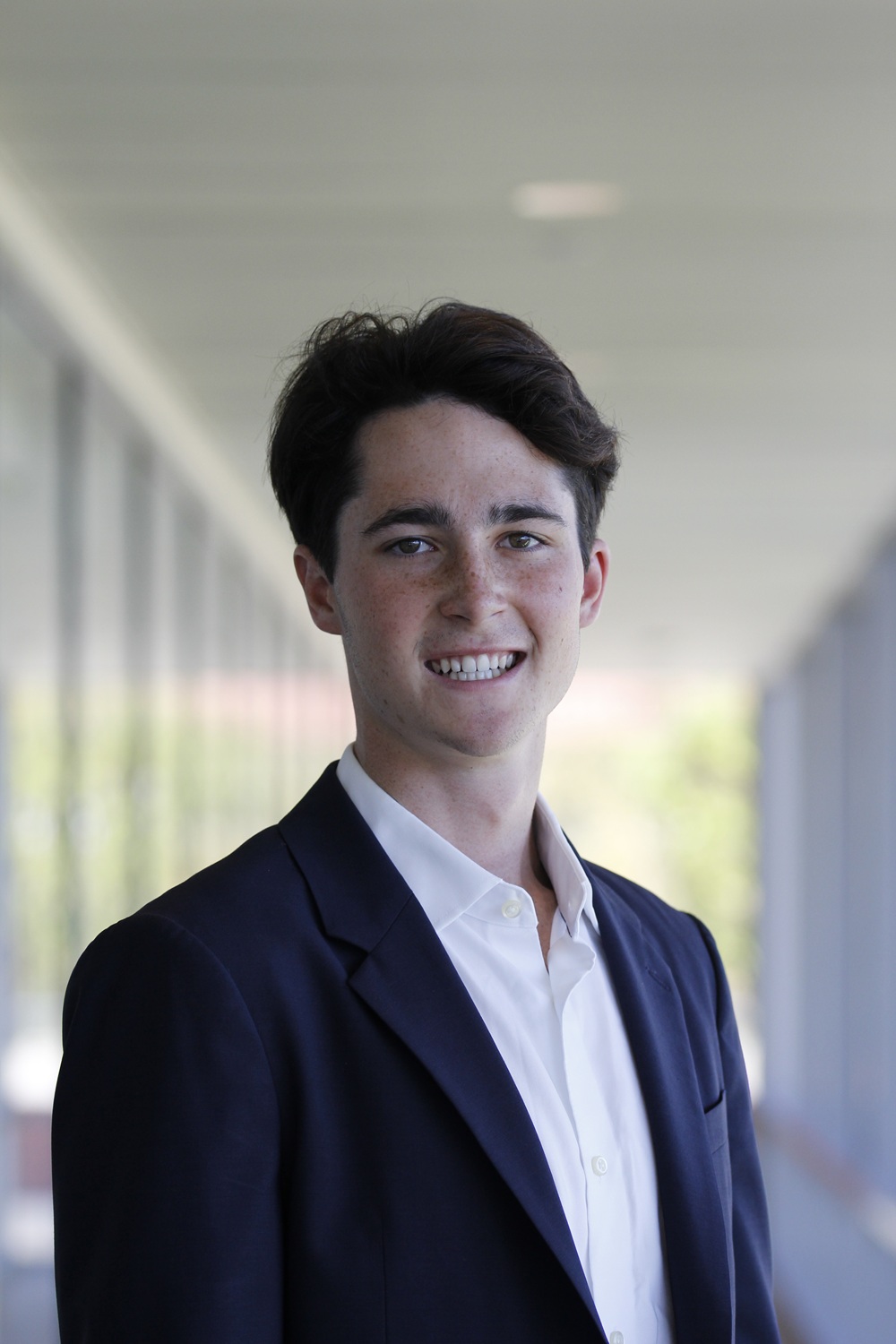
Kern, Walsh
Walsh Kern
Read more

Walsh Kern
| Grant Category: | Fulbright-Nehru Student Research Program |
| Project Title: | A Comparative Analysis of Subnational Renewable Energy Policy in India |
| Field of Study: | Public Policy |
| Home Institution: | Claremont McKenna College, Claremont, CA |
| Host Institution: | O.P. Jindal Global University, Sonipat, Haryana |
| Grant Start Month: | September 2025 |
| Duration of Grant: | Nine months |
Brief Bio:
Walsh Kern is a 2025 graduate of Claremont McKenna College in Claremont, California. He previously worked as an intern in Washington, D.C., in both the U.S. Senate and the Department of the Interior, where his work primarily focused on renewable energy policy. He developed an interest in Indian politics while working as a research assistant for Professor Aseema Sinha who was studying Indian welfare schemes.
Walsh’s Fulbright-Nehru research project is exploring the question: how are India’s international renewable energy commitments implemented at the subnational level? He is particularly interested in understanding the motivations behind state climate action and examining how policies vary across states. His research is focusing on the state governments of Rajasthan and Uttar Pradesh to analyze this variation. The aim is to identify the driving forces behind state-level renewable energy policy in order to offer valuable insights into this critical policy landscape. Since renewable energy collaboration is a major component of the U.S.-India relationship, his research will also contribute to a deeper understanding of India’s transition towards green energy.

Khan, Sarah
Sarah Khan
Read more

Sarah Khan
| Grant Category: | Fulbright-Nehru Student Research Program |
| Project Title: | Hyper Endogamy among Upper-caste Muslims in Delhi and Uttar Pradesh |
| Field of Study: | Anthropology |
| Home Institution: | Georgetown University, Washington, D.C. |
| Host Institution: | Jamia Millia Islamia, New Delhi, Delhi |
| Grant Start Month: | September 2025 |
| Duration of Grant: | Nine months |
Brief Bio:
Sarah Khan graduated from Georgetown University’s School of Foreign Service, where she majored in culture and politics with a concentration in race, caste, gender, and postcolonial development. Through her coursework, she deepened her understanding of the relationships among labor, capital, and the state with gender, desirability, and social mobility. Her senior thesis explored the construction of Muslim masculinities and femininities through techno-sex economies, wherein she analyzed the racialized nature of libidinal economies and offered a critique of Western liberal feminism. In addition to her academic work, Sarah is deeply passionate about teaching. She has served as an instructor for the Yale Young Global Scholars Program, a volunteer teacher for low-income youth in Washington, DC, through Georgetown University’s Center for Social Justice, and as an ESL instructor for newly resettled refugees in Atlanta through the International Rescue Committee.
As a recipient of the U.S. State Department’s critical language scholarship, Sarah studied the politics and poetics of her ancestral language, Urdu, in Lucknow during the summer of 2024. Most recently, she served as a fellow with the American India Foundation’s Banyan Impact Fellowship, working with the Hyderabad-based NGO Kriti Social Initiatives on the strategic implementation of economic empowerment initiatives for marginalized women.
Sarah’s Fulbright-Nehru project is using caste as an analytical framework to understand the lineage- and labor-based system of social stratification among Indian Muslims. To contextualize, conceptualize, and dismantle Ashraf (upper-caste) supremacy, her work is investigating how hyper endogamy functions as a mechanism through which caste rigidity is articulated, legitimized, and perpetuated. Through ethnographic research in Delhi and Uttar Pradesh, Sarah is exploring how caste operates in and through class, educational background, and spatiality (urban/rural); she is also particularly focusing on the gendered dynamics of marriage and social mobility.
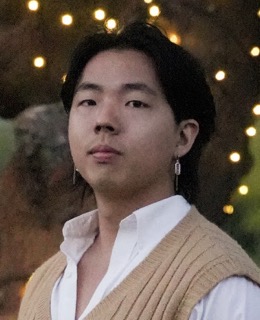
Kim, Enoch
Enoch Kim
Read more

Enoch Kim
| Grant Category: | Fulbright-Nehru Student Research Program |
| Project Title: | Shein-ing a Light on Achieving Circularity for India’s Textile MSMEs |
| Field of Study: | Political Science |
| Home Institution: | Pitzer College, Claremont, CA |
| Host Institution: | National Institute of Fashion Technology (NIFT), Mumbai, Maharashtra |
| Grant Start Month: | September 2025 |
| Duration of Grant: | Nine months |
Brief Bio:
Enoch Kim is a recent graduate from Pitzer College, a member of the Claremont Colleges Consortium. He majored in political science and international affairs, focusing on the political economy of Asia and the Middle East. Hailing from Illinois, he spent his formative years rooted in Korean-American activism.
Enoch has written for various newspapers on campus, such as The Student Life and Claremont Undercurrents, where he reported on labor organizing, student protests, and on-campus movements. He was also a delegate, training manager, and vice president of Pomona College’s Model UN (MUN), where he competed in conferences across the United States, earning accolades such as Outstanding Delegate for his four-day performance in the AI warfare policy committee for the Harvard National MUN 2024. He has also worked with Welcome to Chinatown, a community-based nonprofit focused on combating gentrification and preserving immigrant culture in Manhattan’s Chinatown. Besides, he has worked as a DEI and government affairs intern at Ingredion, a Fortune 500 company in global food solutions. Presently, he is volunteering for the campaign of Kat Abughazaleh, a progressive congressional candidate for IL-9. Enoch is passionate about protecting the rights of the marginalized and combating authoritarians, at home and abroad.
Enoch’s Fulbright-Nehru project is studying the economic and environmental impacts of the rising fast fashion industry in Tirupur, Mumbai, Lucknow, and Delhi. He is particularly focusing on the fast fashion brand Shein that represents a global consumption pattern toward synthetic textiles, in contrast to the domestic consumption pattern, which is more geared toward the natural textiles produced by small businesses. He is also exploring a circular economy framework to find ways for small businesses to improve their business using their competitive advantage of higher environmental sustainability. Enoch’s project aims to create a holistic picture of the Indian textile ecosystem in order to create pathways for MSMEs to survive and evolve in this era of globalization.
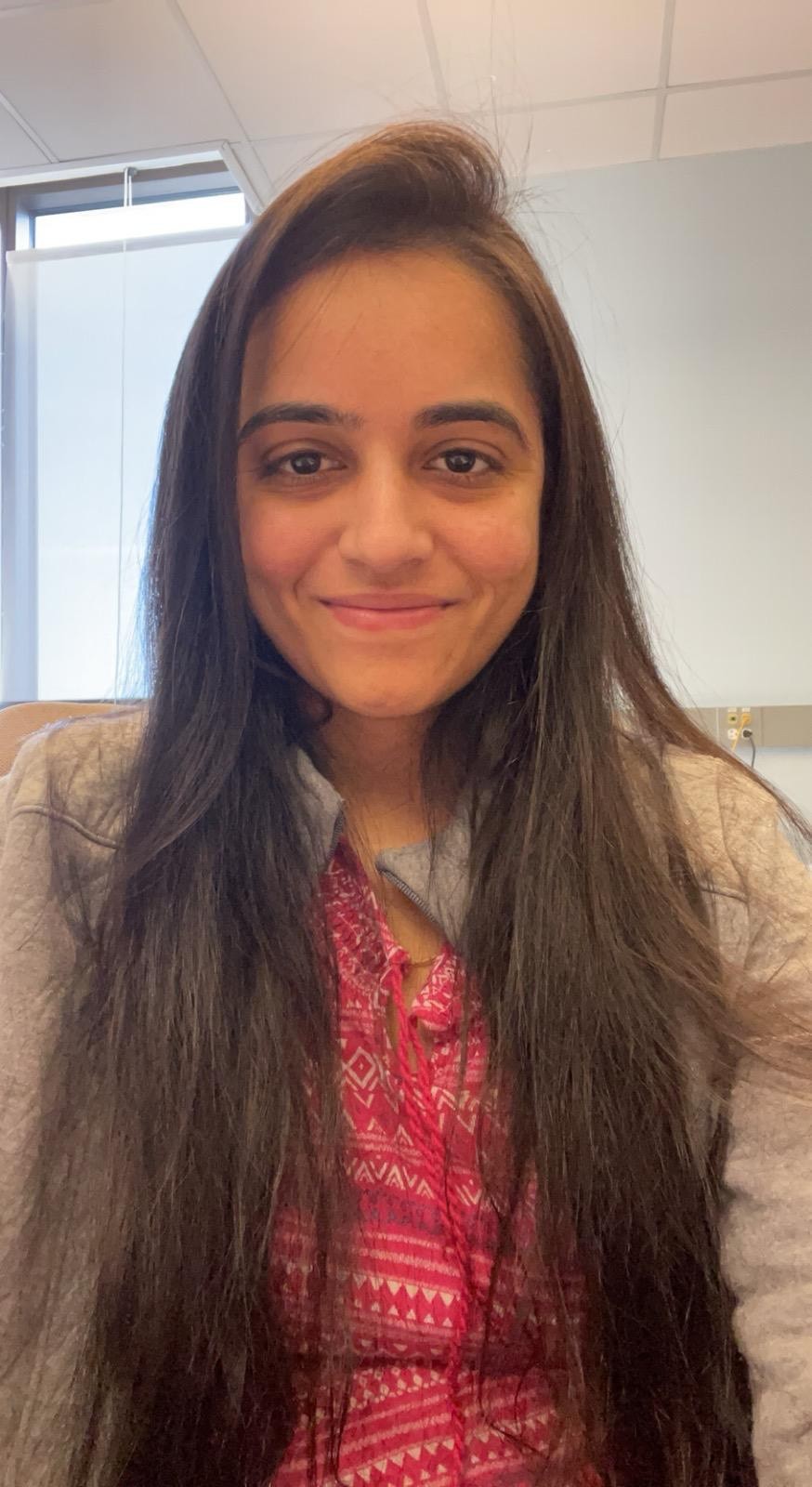
Kotak, Shekha
Shekha Kotak
Read more

Shekha Kotak
| Grant Category: | Fulbright-Nehru Student Research Program |
| Project Title: | Caste Affect in Translation: Studying Emotions across Caste, Genre, and Media Boundaries |
| Field of Study: | Area Studies |
| Home Institution: | University of Michigan, Ann Arbor, MI |
| Host Institution: | Ashoka University, Sonipat, Haryana |
| Grant Start Month: | August 2025 |
| Duration of Grant: | Nine months |
Brief Bio:
Shekha Kotak is a sixth year PhD candidate in the Department of Asian Languages and Cultures at the University of Michigan. She works on the intersection of caste, translation studies, and the history of emotions. She completed her bachelor’s in English literature from Rutgers University, New Jersey. Shekha has over nine years of tutoring and teaching experience. She has taught a range of subjects such as K-12 English and history, college-level research writing, SAT and TOEFL English, and beginner’s English to immigrant children. As part of her PhD requirements, Shekha has taught bachelor’s courses on topics such as Buddhism and Asian studies. She is also an avid translator, translating from and into Gujarati, Hindi, and English. Her translation of the Dalit author Ajay Navaria’s short story is forthcoming in the Granta magazine. When not immersed in academic research, Shekha spends time reading novels, literary magazines and blogs, and occasionally writing on various subjects.
Shekha’s Fulbright-Nehru research is focusing on emotive world-making in Hindi and Gujarati Dalit literatures and in their English translations. The research is delving into both print and digital literary canons, and studying Dalit texts across languages and media to reveal the critical language of emotions and the range of feelings they generate. Shekha’s work is attempting to heed the call of Dalit authors who urge for a different paradigm of literary aesthetics to critically engage with Dalit literature – they are not in favor of emotions such as grief, fear, love, joy, and rage being taken for granted, but advocates for interpreting Dalit interiority in literary writings through the lens of Dalit pain and consciousness.
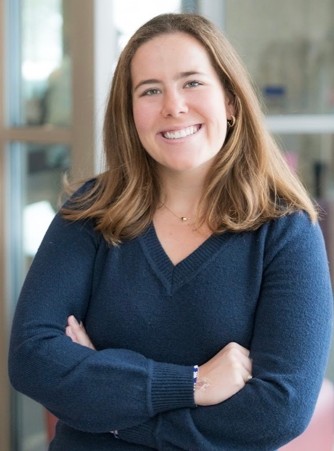
Kuffner, Margaret
Margaret Kuffner
Read more

Margaret Kuffner
| Grant Category: | Fulbright-Nehru Student Research Program |
| Project Title: | Utilizing the WHO Safe Childbirth Checklist to Empower Mothers |
| Field of Study: | Public Health |
| Home Institution: | Boston College, Chestnut Hill, MA |
| Host Institution: | Christ University, Bengaluru, Karnataka |
| Grant Start Month: | September 2025 |
| Duration of Grant: | Nine months |
Brief Bio:
Margaret Kuffner graduated cum laude from Boston College in May 2025 with a BA in international studies, with concentrations in global cultures and public health. Margaret developed a passion for the world at a young age, having lived in Switzerland with her family and later in Denmark as a Rotary Youth Exchange Student. During her undergrad junior year, she studied abroad in India through the School for International Training where she interned with the Comprehensive Rural Healthcare Project. Margaret’s professional experiences include working as a research assistant for the Mass General Lymphedema team, volunteering at the East Boston Neighborhood Health Center, and serving as a patient care intern at South County Health in Rhode Island.
She previously served as secretary general and currently holds the role of deputy chief operating officer at the Eagle Institute for Global Affairs and Leadership. In this capacity, Margaret advances the organization’s mission of fostering a globally conscious society through community collaboration, educational programming, and forward-thinking initiatives. In her free time, Margaret enjoys training for her next marathon, experimenting with new recipes, and going to the beach with friends.
As a Fulbright-Nehru research scholar, Margaret is investigating the implementation and impact of the World Health Organization Safe Childbirth Checklist (SCC) as a tool to promote a shared responsibility of safety between healthcare professionals (HCPs) and mothers. The SCC increases safe birthing practices by addressing key risks (e.g., bleeding, infection, high blood pressure) at four pause points: on admission; just before pushing; soon after birth; and before discharge. The project hopes to prove that when HCPs educate mothers and their companions about the SCC by actively encouraging dialogue around cross-checking SCC steps, mothers will be empowered, patient–HCP communication will be enhanced, and pregnancy, childbirth, and the postnatal period will be safer for mothers and their babies.
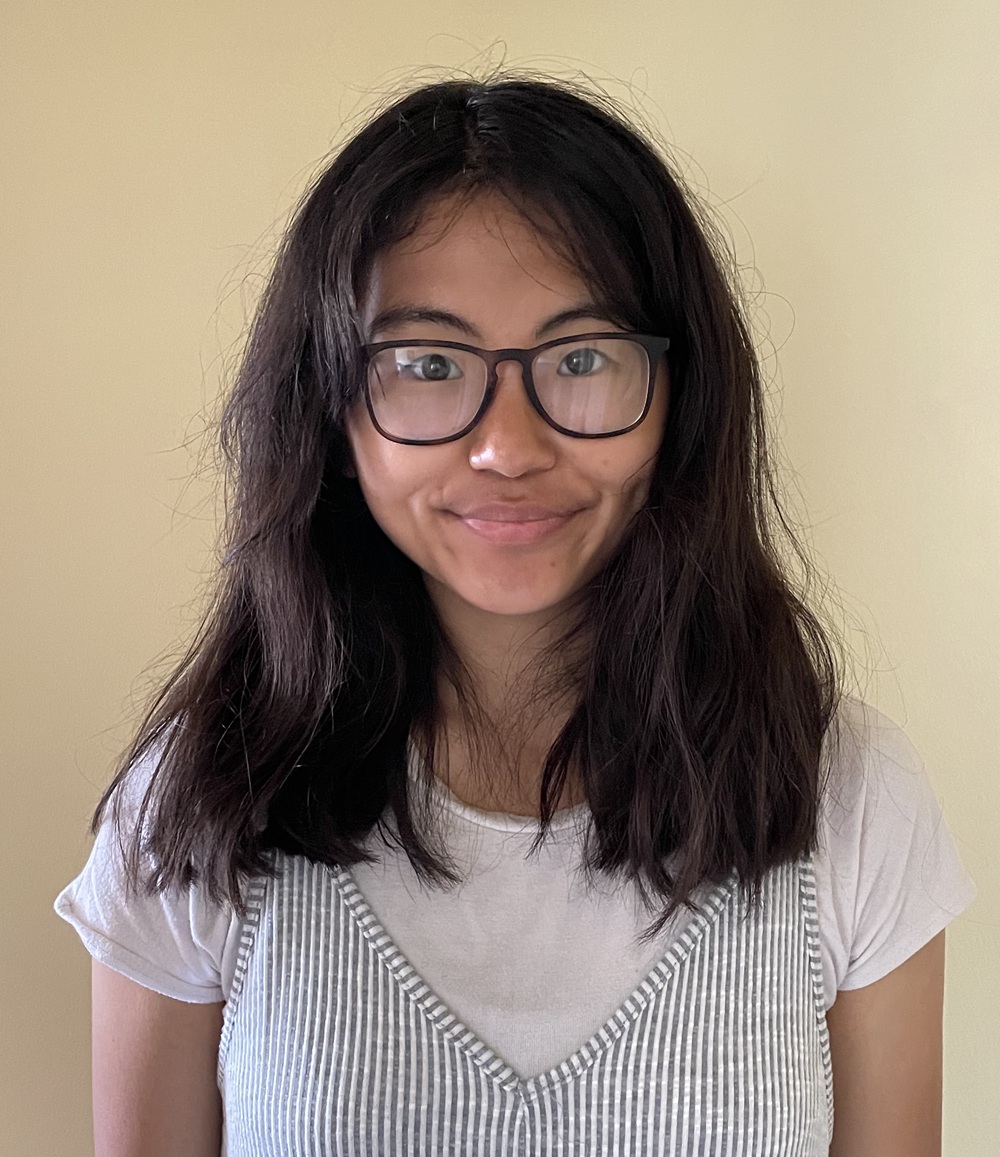
Kunsang, Tenzin
Tenzin Kunsang
Read more

Tenzin Kunsang
| Grant Category: | Fulbright-Nehru Student Research Program |
| Project Title: | Reconceptualizing Education in Exile: Transnationalism in the Tibetan Children’s Village |
| Field of Study: | Education |
| Home Institution: | Cornell University, Ithaca, NY |
| Host Institution: | College for Higher Tibetan Studies, Dharamsala, Himachal Pradesh |
| Grant Start Month: | September 2025 |
| Duration of Grant: | Nine months |
Brief Bio:
Tenzin Kunsang is a graduate of Cornell University with a BA in biology and society, and a minor in inequality studies on the Health Equity Track. During her time on campus, she was involved in public health and education initiatives with a specific focus on equity, social justice, and cross-cultural dialogue. This included clubs and organizations such as Cornell Center for Health Equity Undergraduate Chapter, College & Career Readiness Initiative, Community Learning and Service Partnership, and the Arts & Sciences Ambassadors Program. She also has experience in communications, having worked as the science editor for her school’s newspaper and as a communications intern at the New York City Department of Health and Mental Hygiene. As a Gilman Scholar and Laidlaw Scholar, she traveled to Fiji, Nepal, and India during her undergraduate years.
A six-decade-old institution founded in Dharamshala, India, the Tibetan Children’s Village (TCV) has evolved in tandem with the sociopolitical “Tibet issue” within the India-China-U.S. triangle. As a result, there has been a rise in Himalayan descendants and overseas Tibetan refugees in TCV, but a decrease in Tibetan refugees directly from Tibet. Tenzin’s Fulbright-Nehru project in Dharamshala is particularizing the term “Himalayans” to analyze which regions are experiencing the most outmigration into TCV and why TCV is a more favorable schooling option compared to more proximate schools. Through semi-structured interviews, archival and ethnographic fieldwork, and participant observation, she is also examining how TCV students have become key components in promoting identity formation and kinship networks. On completion of the project, Tenzin plans on transferring the skills she acquired from it to pursuing an MPH at Emory’s Rollins School of Public Health.
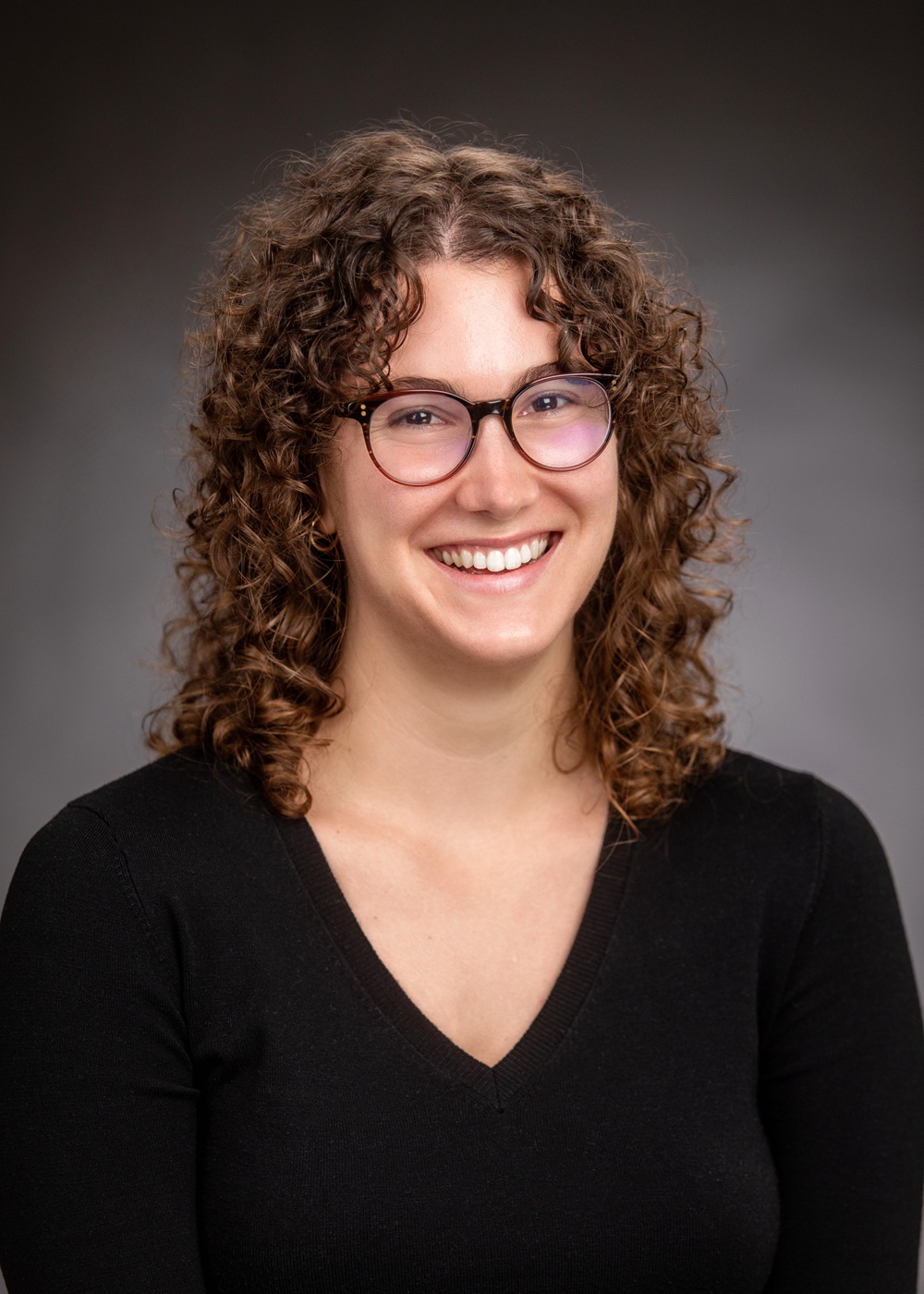
Matney, Sarah
Sarah Matney
Read more

Sarah Matney
| Grant Category: | Fulbright-Nehru Student Research Program |
| Project Title: | The Effect of Indian Knowledge Practices on Postpartum Maternal Mental Health in Mumbai |
| Field of Study: | Public Health |
| Home Institution: | Washington University, St. Louis, MO |
| Host Institution: | Tata Institute of Social Sciences, Mumbai, Maharashtra |
| Grant Start Month: | September 2025 |
| Duration of Grant: | Nine months |
Brief Bio:
Sarah Matney graduated from Washington University in St. Louis in 2021 with a BA in cognitive neuroscience from the School of Psychological and Brain Sciences. During her undergraduate career, Sarah also began pursuing her birth doula certification and gave a presentation to a sophomore seminar on the importance of doula support for mother–infant attachment and bonding. Over the last three years, Sarah has been running her own business, Sarah Rose Doula & Wellness LLC, which has served over 75 families as a birth, postpartum, and bereavement doula in Seattle and the greater King County area.
Sarah’s Fulbright-Nehru project is researching how the postpartum confinement period in India affects the mental health of the mother. She is studying how birth is viewed and handled in the U.S. and India – in the former, it is viewed as a single event, and the lack of cohesive support is a direct representation of that perspective; in the latter, birth is seen as a process, where time and familial support help the mother cross through and grow into this life change. Sarah hypothesizes that the culture of support given by way of female relatives through the confinement period eases the transition into motherhood. The research is being conducted through both quantitative measures and successive oral histories.
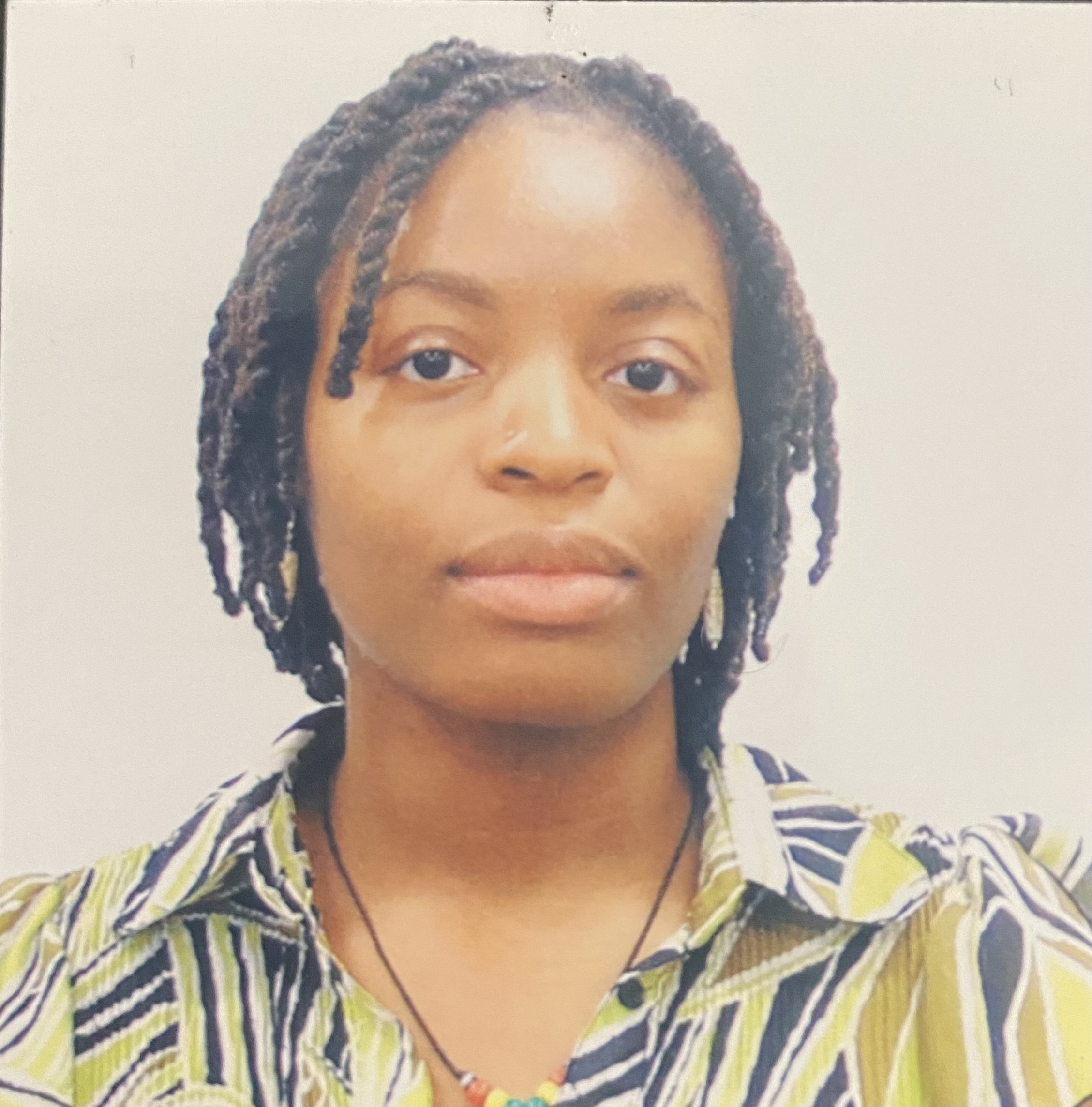
Mouangue, Alexandra
Alexandra Mouangue
Read more

Alexandra Mouangue
| Grant Category: | Fulbright-Nehru Student Research Program |
| Project Title: | “Listening Circles”: The impact of somatics and community on mental health care in India |
| Field of Study: | Psychology |
| Home Institution: | Wellesley College, Wellesley, MA |
| Host Institution: | Christ University, Bengaluru, Karnataka |
| Grant Start Month: | September 2025 |
| Duration of Grant: | Nine months |
Brief Bio:
Alexandra Mouangue is an emerging researcher and practitioner in the field of mindfulness and holistic mental health. She is particularly interested in somatic (body-focused) interventions for trauma and anxiety. In 2024, Alexandra graduated summa cum laude from Wellesley College with a BA in psychology and a minor in economics. Her honors thesis, “Beyond Social Class: A Mixed Methods Exploration of Resource Predictability, Uncertainty, and the Factors Influencing Temporal Discounting”, reflects her commitment to understanding how sociocultural contexts shape psychological well-being and decision-making. Her current work expands on this subject and explores the intersections of mind, body, and culture in mental health.
Alexandra’s lived experience as an African immigrant informs her research on how emotions and trauma are embodied, and how movement, breath, and meditation can facilitate healing. Within her academic and personal ventures, Alexandra has steadily pursued community-based mindfulness research. She has had a stint at Drexel University as a research coordinator co-leading educational support groups for adolescents, focusing on behavioral and acceptance-based interventions for eating disorders and weight loss. Her extensive research experience and volunteer work has instilled in her a deep passion for establishing equitable mental health care, particularly for low-income and immigrant populations. Fluent in English, French, and Spanish, Alexandra is also an aspiring yoga teacher and herbalist. Her overarching goal is to set up her own holistic mental health clinic where she can integrate the wisdom of the body and the land into evidence-based practice.
Through the Fulbright-Nehru project, Alexandra is deepening her expertise in mind–body therapies in order to contribute to the development of interventions addressing the mental, emotional, and physiological needs of diverse communities. Her project is focusing on co-regulation- and mindfulness-based group therapy, alongside explorations of yoga, acupuncture, and massage throughout South India. The aims of the study are to: examine the effectiveness of somatic practices in reducing anxiety, depression, and hyperarousal; explore the roles of co-regulation and community-building in mental health outcomes; investigate the impact of interoception and trait mindfulness on treatment outcomes; and gain valuable insights from practitioners on the application of holistic practices worldwide.
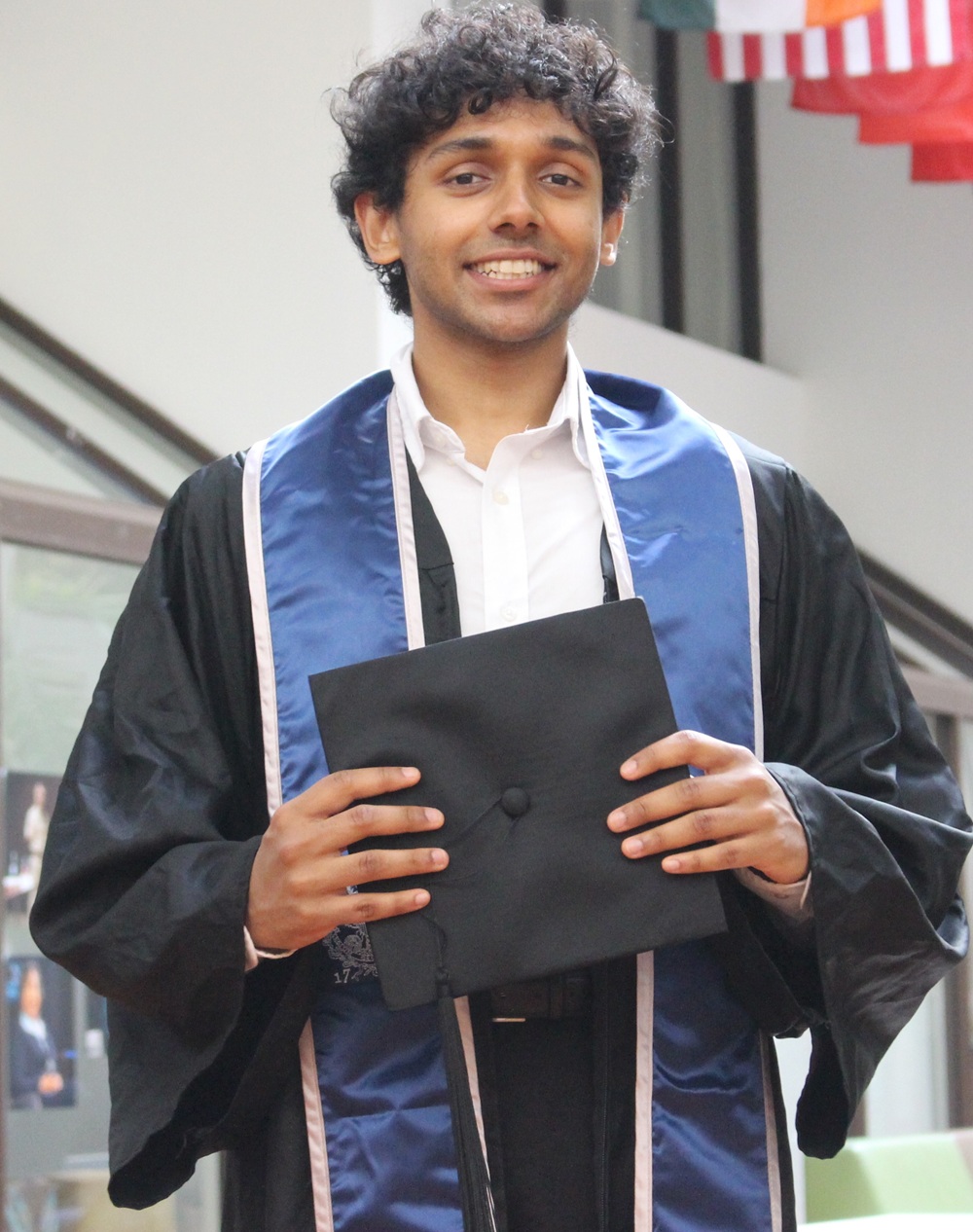
Nathan, Ajay
Ajay Nathan
Read more

Ajay Nathan
| Grant Category: | Fulbright-Nehru Student Research Program |
| Project Title: | The Role of Telemedicine in Hospice and Palliative Care following the COVID-19 Pandemic |
| Field of Study: | Social Sciences |
| Home Institution: | Georgetown University, Washington, D.C. |
| Host Institution: | Indian Institute of Technology Madras, Chennai, Tamil Nadu |
| Grant Start Month: | September 2025 |
| Duration of Grant: | Nine months |
Brief Bio:
Ajay Nathan, originally from Marietta, Georgia, studied science, technology, and international affairs at Georgetown University’s Walsh School of Foreign Service, with a concentration in global health and biotechnology. He is passionate about expanding and improving healthcare access globally through the use of digital technologies and holistic models of care. In his senior year, Ajay completed his undergraduate honors thesis investigating the effectiveness of digital health platforms during and since the COVID-19 pandemic in India. Concurrently, he was conducting research at the Georgetown Medical Center, looking at how the knockdown of cellular communication may limit tumor growth in mice.
Ajay has participated in various research fellowships at Georgetown. He has also served as president of DCivitas Consulting, a pro bono nonprofit consulting firm that works with D.C.-based nonprofits. Besides, he has guided prospective students as a tour guide and new students as an orientation advisor; he has also been involved in student organizations such as the South Asian Society. In his free time, Ajay enjoys creative writing, hiking, jogging, and exploring cafes.
Ajay’s Fulbright-Nehru research project is looking at the potential use of telemedicine in hospice care and palliative care within Tamil Nadu. The project is identifying palliative care centers (PCCs) across the state to conduct a qualitative assessment of the current status of hospice and palliative care. Apart from reviewing public health records, the project is holding interviews with healthcare practitioners and PCC patients across the state, in government hospitals, government community centers, and private community centers. The aim is to identify the larger trends regarding the efficacy of telemedicine in the treatment of hospice and palliative care patients.
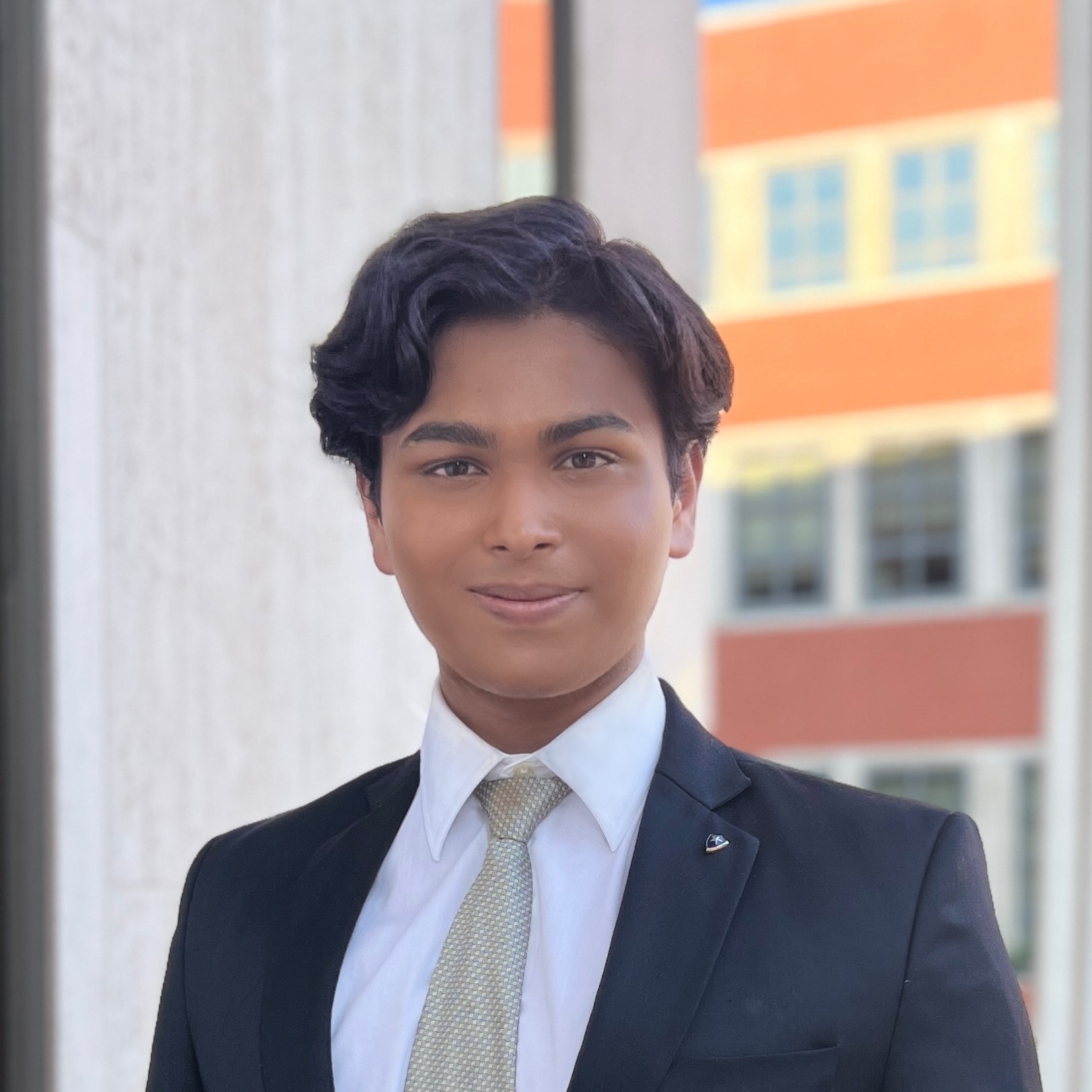
Panda, Sunrit
Sunrit Panda
Read more

Sunrit Panda
| Grant Category: | Fulbright-Nehru Student Research Program |
| Project Title: | Difference in Emissions from Kon-Tiki Pyrolysis and Open-field Burning of Rice Straw |
| Field of Study: | Agriculture |
| Home Institution: | Princeton University, Princeton, NJ |
| Host Institution: | Indian Institute of Technology-Kharagpur, Kharagpur, West Bengal |
| Grant Start Month: | September 2025 |
| Duration of Grant: | Nine months |
Brief Bio:
Sunrit Panda is a researcher and development professional interested in cultivating financially sustainable solutions for large-scale social problems in the Global South. With broad quantitative experience in statistics, machine learning, environmental modeling, and finance, he is using his Fulbright year to contribute to his larger body of academic and social work on carbon sequestration. He is also coordinating brick kiln emissions testing in the Indian states of Rajasthan and Punjab for the Mauzerall Group at Princeton University’s Center for Policy Research on Energy and the Environment. In prior roles, Sunrit worked on the credit and investment banking teams of a Singaporean emerging markets impact investment firm as well as on the corporate partnerships team of a finance professional development organization. From teaching AI in village schools to building tubewells, Sunrit also has a long history of service in rural India. A New Jersey native, he holds a bachelor’s degree in operations research and financial engineering from Princeton University.
Sunrit’s Fulbright-Nehru project is investigating the differences in greenhouse gas and particulate emissions between open-field burning of rice straw and Kon-Tiki flame curtain pyrolysis in Paschim Medinipur, West Bengal. Open-field burning contributes significantly to winter smog in the Indo-Gangetic plain, while Kon-Tiki pyrolysis offers a low-cost alternative that produces biochar, a carbon-sequestering soil amendment. The study is quantifying CO₂, CO, CH₄, NO₂, PM2.5, and PM10 emissions across two stubble-burning seasons. It is also examining how emission data can inform carbon and methane offset pricing; this can pave the way for economic incentives for smallholder farmers and also support policy development within India’s emerging carbon market framework.
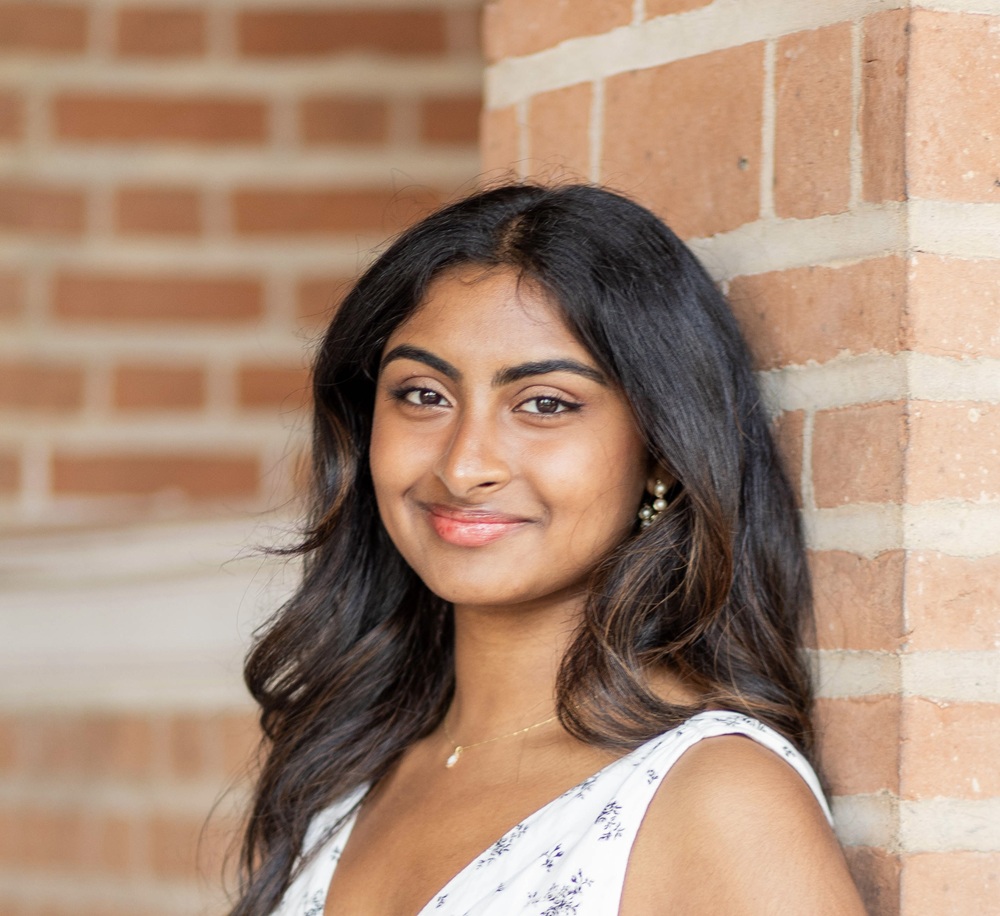
Penmetcha, Vedha
Vedha Penmetcha
Read more

Vedha Penmetcha
| Grant Category: | Fulbright-Nehru Student Research Program |
| Project Title: | Evaluation of the CBE Breast Cancer Community Health Educational Program of UBCF |
| Field of Study: | Public Health |
| Home Institution: | Rice University, Houston, TX |
| Host Institution: | KIMS Hospitals, Secunderabad, Telangana |
| Grant Start Month: | September 2025 |
| Duration of Grant: | Nine months |
Brief Bio:
Vedha Penmetcha earned her bachelor’s degree in sports medicine and exercise physiology, with minors in global health technologies and medical humanities, along with a Spanish language certificate, from Rice University, Texas. Her passions lie at the intersection of medicine, social justice, and innovation.
Vedha’s global health design work is complemented by public health research. As a Stanford CARE research scholar, she evaluated racial and ethnic disparities in national breast cancer trends and advanced care planning, leading to presentations at national and international conferences. Inspired by these experiences, she began working with the International Health Systems Group at the University of Cambridge, where she is currently evaluating data-set diversity in health technologies.
Outside of research, Vedha is deeply committed to social justice. She has designed and led social justice programs on healthcare access. These experiences motivated her work as a Community Bridges Research Fellow, where she partnered with the Tahirih Justice Center to co-develop a mental health resource map tool for immigrant survivors of domestic violence.
Outside of her professional work, Vedha finds joy in movement and creativity. Trained in Bharatanatyam, she has been part of competitive Bollywood fusion and hip-hop dance teams in college. She also enjoys drawing, spending time with family and friends, and photography.
Vedha’s Fulbright-Nehru project is evaluating South Asia’s largest clinical breast examination (CBE) program launched by the Ushalakshmi Breast Cancer Foundation, Hyderabad, India. It is specifically looking at CBE performed by trained community health workers as a promising alternative to the high-cost mammography test.
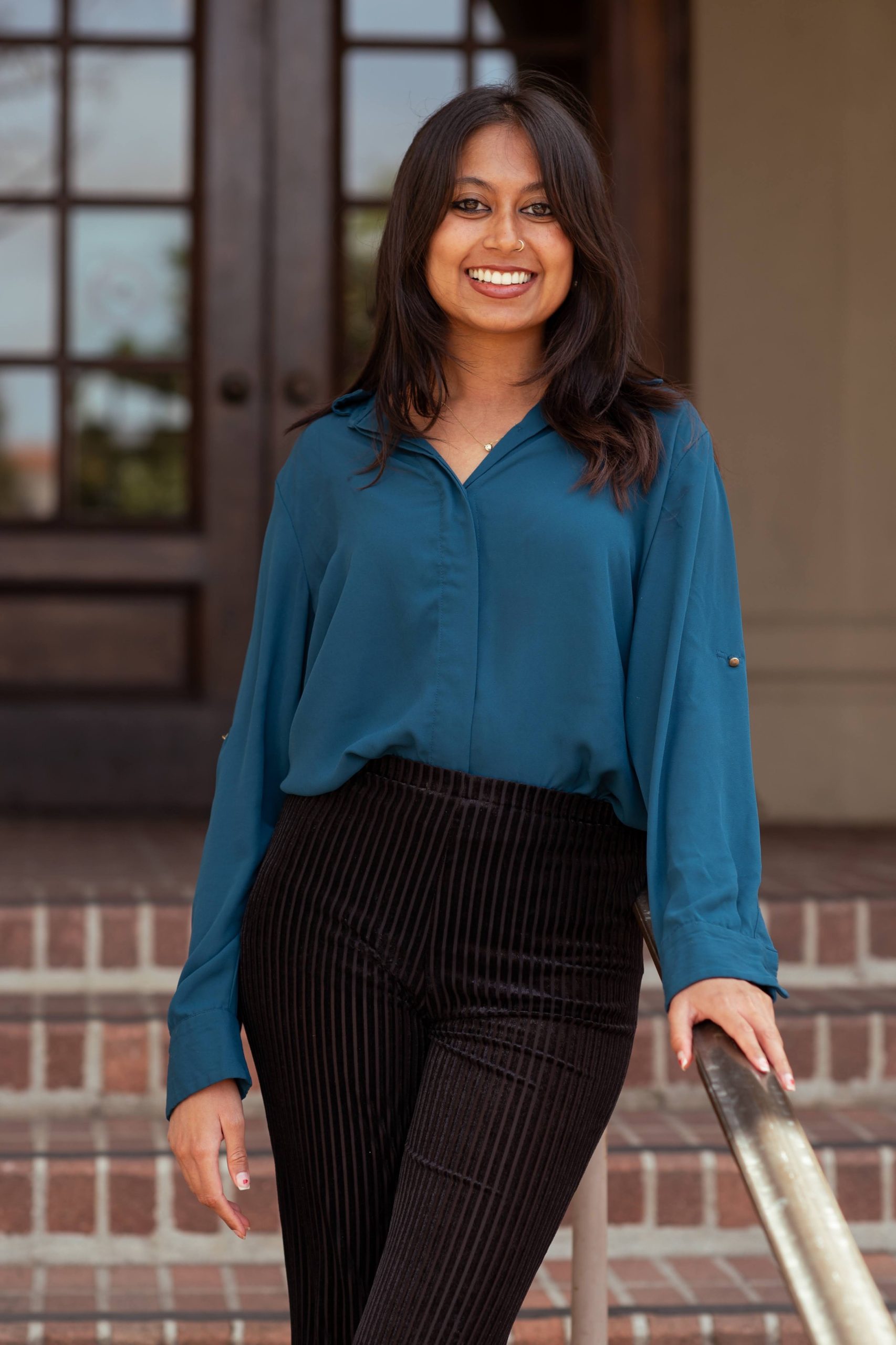
Prasad, Sumukhi
Sumukhi Prasad
Read more

Sumukhi Prasad
| Grant Category: | Fulbright-Nehru Student Research Program |
| Project Title: | Source Apportionment of Mobility-driven Personal Exposures in Mumbai, India |
| Field of Study: | Engineering |
| Home Institution: | At-Large, Emeryville, CA |
| Host Institution: | Indian Institute of Technology - Bombay, Mumbai, Maharashtra |
| Grant Start Month: | May 2025 |
| Duration of Grant: | Six months |
Brief Bio:
Sumukhi Prasad received her BS in environmental engineering from The University of Texas at Austin. There, she conducted research on the intake by minority communities of the primary and secondary particulate matter emitted by the landfills in Los Angeles, California. After winning the Environmental Engineers of the Future (E2F) scholarship, she was funded by a consortium of companies to pursue an MS in environmental engineering at the University of California, Berkeley. During her MS, in continuation of her undergraduate research in environmental justice, Sumukhi had the opportunity to draft a public comment for the Union of Concerned Scientists regarding the tightening of National Ambient Air Quality Standards.
While completing her MS coursework, she interned for an environmental engineering firm, CDM Smith, where she supported USAID’s efforts in water and infrastructure rehabilitation in Lebanon. She continued with this project after her MS and worked full time at CDM Smith for a year. Eager to conduct research to address air pollution disparities in the United States, she started her PhD in environmental engineering at the University of California, Berkeley. Sumukhi’s research at UC Berkeley aims to quantify the spatial and temporal variability in air pollution personal exposure, specifically from the refineries in Martinez, California. She is collaborating with a grassroots advocacy group called Healthy Martinez to hold refineries accountable for air pollution violations in the Martinez community. While her research interests lie at the intersection of air quality, public health, policy, and air pollution exposure monitoring, Sumukhi also has extensive experience in working alongside communities and conducting community-based participatory research.
Sumukhi’s Fulbright-Nehru project is using a novel spatiotemporal personal exposure framework to analyze the emission sources that drive space–time variability in PM2.5 exposures among adults in Mumbai, India. With a collection of GPS locations and measurements, the study is attributing personal exposures to their respective locations using a technique involving density-based spatial clustering of applications with noise. Using the knowledge of Mumbai’s source locations, the aim is to identify the sources that are more fractionally contributing to PM2.5 personal exposures.

Pujari, Shreya
Shreya Pujari
Read more

Shreya Pujari
| Grant Category: | Fulbright-Nehru Student Research Program |
| Project Title: | Assamese Folk Traditions: A Musicological Analysis of Mising and Rabha Indigenous Music |
| Field of Study: | Music Studies |
| Home Institution: | Berklee College of Music, Boston, MA |
| Host Institution: | Tezpur University, Tezpur, Assam |
| Grant Start Month: | September 2025 |
| Duration of Grant: | Nine months |
Brief Bio:
Shreya Pujari is a vocalist, educator, and music industry professional specializing in folk music, jazz, and global traditions. She graduated from Berklee College of Music with a BM in Mediterranean music and contemporary writing and production, after beginning her studies in jazz voice at Fullerton College in Los Angeles. Her work centers on preserving and promoting traditional music through performance, education, and cross-cultural collaborations. Her multicultural education and fieldwork experience, including a six-month residency in Valencia, Spain, studying flamenco and Mediterranean music, inform her diverse musical approach and research interests.
Shreya has led several initiatives aimed at celebrating and sustaining global folk traditions. In 2024, she coordinated and directed the first Assamese Youth Orchestra in the U.S., commissioning new arrangements of Assamese folk songs and premiering the ensemble in Nashville. She has received a U.S. Congressional Certificate of Special Recognition for her work preserving Assamese cultural identity among first-generation youth in America. She is an active performer in the San Francisco music scene, known for curating eclectic, multilingual sets that introduce global folk traditions to American audiences.
Shreya’s Fulbright-Nehru research project is centering on the music of underrepresented communities, especially within her Assamese heritage. Her study is documenting the indigenous musical traditions of the Mising and Rabha tribes of Assam, India. Through immersive fieldwork, she is studying Mising and Rabha musical structures, performance practices, and cultural contexts. The focus of the project is on ethical preservation through consent-based storytelling and community partnership, aiming to give agency to cultural knowledge holders while also highlighting the global relevance of Assam’s musical landscape. Her research is expected to result in a multimedia documentary and supplemental educational resources aimed at preserving these traditions and increasing their visibility within the global academic community. Overall, backed by her background in folk music, ethnomusicology, and marketing, Shreya is attempting to showcase underrepresented traditions and foster cross-cultural understanding through global platforms such as festivals, film, and media.
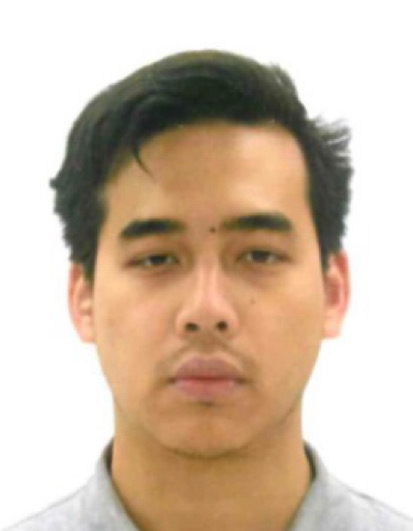
Punyagupta, Pirawat
Pirawat Punyagupta
Read more

Pirawat Punyagupta
| Grant Category: | Fulbright-Nehru Student Research Program |
| Project Title: | Historicizing Delimitation in India |
| Field of Study: | History |
| Home Institution: | At-Large, Arlington, VA |
| Host Institution: | Jawaharlal Nehru University, New Delhi, Delhi |
| Grant Start Month: | November 2025 |
| Duration of Grant: | Nine months |
Brief Bio:
Putt Punyagupta graduated from Yale University with a BA in history and South Asian studies. A two-time U.S. State Department critical language scholar, he is proficient in Chinese, Hindi, Lao, Persian, Prakrit, Sanskrit, Tamil, Thai, and Urdu, and is presently learning Bengali and Russian. He has worked for Yale’s Program in Iranian Studies as well as the Yale Poorvu Center for Teaching and Learning. He has also conducted research for the Stimson Center, a U.S. nonprofit that aims to enhance international peace and security through analysis and outreach. Besides, he has taken part in symposia at the Israel Institute for Advanced Studies. Putt has also supported heritage conservation activities. Prior to Fulbright, he was an open-source analyst in Washington, D.C.
Putt’s Fulbright-Nehru project is studying the history of delimitation in India. It is investigating the process’ original design elements while examining the intentions of past delimitation commissions and their attempts to ensure neutrality. It is also studying the responses of political parties and rationales behind the federal- and state-level freezes that took place in 1971 and 2002. The project is primarily relying on archival materials housed in Delhi, but is also consulting collections in relevant regional centers such as Chennai and Mumbai. Overall, the project aims to shed light on the underlying architecture that sustains India’s vibrant democracy.
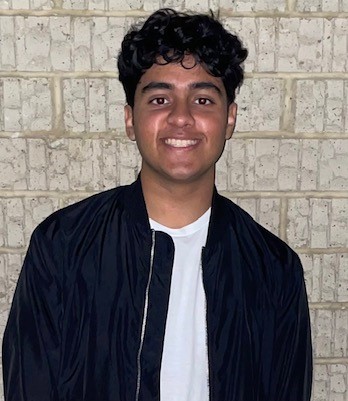
Ramesh, Rajat
Rajat Ramesh
Read more

Rajat Ramesh
| Grant Category: | Fulbright-Nehru Student Research Program |
| Project Title: | Optimizing Electronic Health Records for Timely Tuberculosis Notification in South India |
| Field of Study: | Public Health |
| Home Institution: | University of Pennsylvania, Philadelphia, PA |
| Host Institution: | St. John’s Medical College, Bengaluru, Karnataka |
| Grant Start Month: | September 2025 |
| Duration of Grant: | Nine months |
Brief Bio:
Rajat Ramesh graduated from the University of Pennsylvania with a degree in biochemistry and history. Committed to the study of both science and social impact, Rajat has conducted diverse research across biomedical science and public history – from developing chemical tools to study post-translational modifications under Dr. George Burslem to investigating the legacy of redlining and urban renewal with Dr. Brent Cebul. Rajat has led efforts within the Guatemala Health Initiative, supporting clinic operations at Hospitalito Atitlán and conducting field research to inform sustainable health interventions. He has also served as a patient care assistant at the Center for Surgical Health, helping patients access essential surgical services. Besides, he has coordinated STEM outreach through the Netter Center’s Moelis Access Science program. His community engagement includes volunteering with children with cerebral palsy and providing clinical services at a student-run clinic for homeless populations. A recipient of the Martin Wolfe Prize and the College Alumni Society’s undergraduate research grant, Rajat is currently a postbaccalaureate fellow at the NIH Vaccine Research Center, where he investigates HIV persistence under antiretroviral therapy using single-cell sequencing technologies.
Rajat’s Fulbright-Nehru project is investigating how electronic health record (EHR) systems can improve tuberculosis (TB) reporting in southern India, where communities face significant barriers to care and treatment adherence. The study is assessing the implementation of open-source EHRs in both rural and urban healthcare settings. Through semi-structured interviews with healthcare providers, it is exploring cultural, behavioral, and technical barriers – such as stigma and confidentiality concerns – that affect EHR effectiveness. This mixed-methods research aims to identify scalable solutions to enhance TB surveillance and reporting in resource-constrained regions of India.
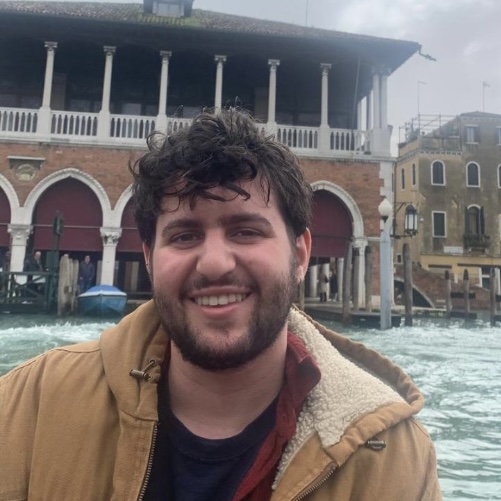
Roggen, Elijah
Elijah Roggen
Read more

Elijah Roggen
| Grant Category: | Fulbright-Nehru Student Research Program |
| Project Title: | Diaspora and Nation: Understanding Political Development among India’s Jews |
| Field of Study: | Political Science |
| Home Institution: | Pomona College, Claremont, CA |
| Host Institution: | O.P. Jindal Global University, Sonipat, Haryana |
| Grant Start Month: | September 2025 |
| Duration of Grant: | Nine months |
Brief Bio:
Elijah Roggen is a 2025 graduate of Pomona College, where he received his BA in politics and religious studies. At Pomona, he won the Stauffacher Thesis Prize in Religious Studies. He is especially interested in the confluence of religious and modern political narratives in the Jewish context. Elijah has spent time as a summer camp counselor and programming director, as a reading tutor, a disaster relief volunteer, and as an elementary school classroom assistant. He grew up in Arlington, Virginia.
Elijah’s Fulbright-Nehru project is exploring the nuances of political identity among India’s Jewish communities, particularly the Bene Israel community in the decades preceding and following Indian independence. The project emerges from an interest in family history – Elijah’s grandfather is a Bene Israel Jew born in Fort Kochi and raised in Mumbai. Through interviews and archival work, the project is seeking to fill a gap in the literature by considering the seemingly opposed political positions of Bene Israel individuals in the late colonial era and various forms of political dissent.
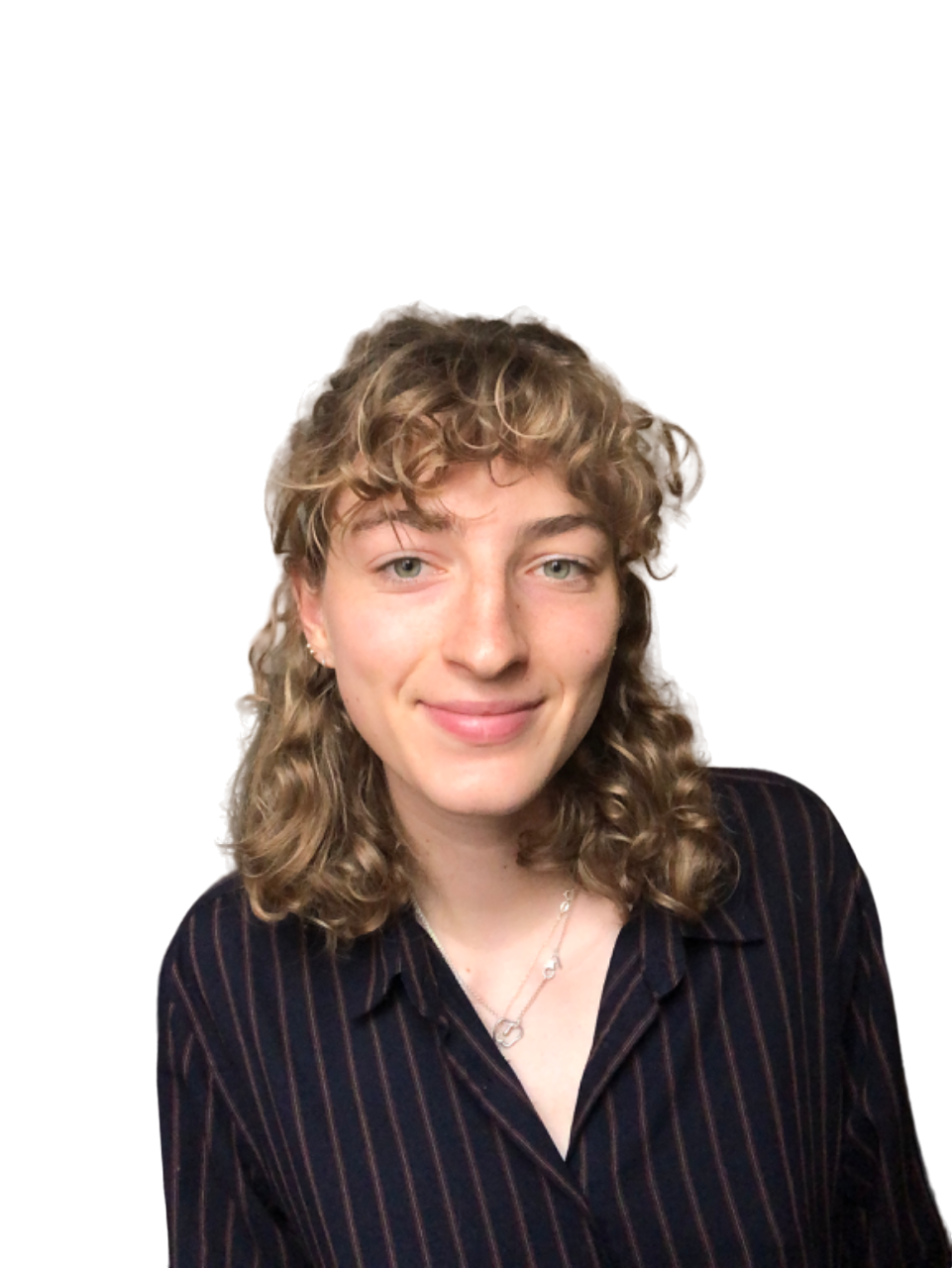
Schmidt-Neuhaus, Lenya
Lenya Schmidt-Neuhaus
Read more

Lenya Schmidt-Neuhaus
| Grant Category: | Fulbright-Nehru Student Research Program |
| Project Title: | Policy and Incentives to Reduce Per-fluoro-alkyl Compounds ‘PFAS’ in Indian Supply Chains |
| Field of Study: | Public Health |
| Home Institution: | University of North Carolina, Chapel Hill, NC |
| Host Institution: | Indian Institute of Management - Lucknow, Noida, Uttar Pradesh |
| Grant Start Month: | September 2025 |
| Duration of Grant: | Nine months |
Brief Bio:
Lenya Schmidt-Neuhaus holds a chemistry and environmental justice degree from the University of North Carolina at Chapel Hill. Her academic and professional interests relate to sustainability. Lenya works in consulting – earlier in transportation planning, now in the clean energy space. As a deputy project manager dealing with energy advisory and environmental, social, and governance services, she manages projects that help clients to reduce their emissions and access cleaner energy. She also conducts policy analyses in this field. Lenya seeks to leverage this experience of analyzing policies and managing project flows to conduct research.
Lenya’s Fulbright-Nehru project is studying the PFAS that are found in common household products. Prolonged and repetitive exposure to these chemicals can lead to a variety of negative health effects. The research will provide policy recommendations to limit exposure to PFAS, provide existing policy examples that can be used as a starting point to draft PFAS regulations, and identify which key actors have the influence to make changes to the supply chains.
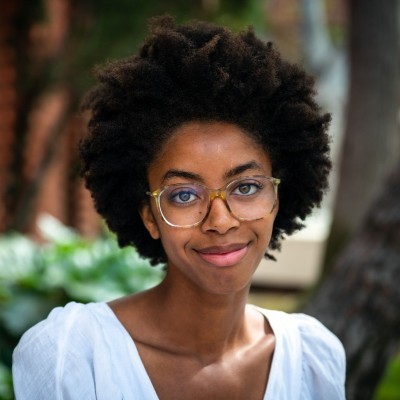
Sears, Jasmine
Jasmine Sears
Read more

Jasmine Sears
| Grant Category: | Fulbright-Nehru Student Research Program |
| Project Title: | Successful Motivators & Means of Textile Wastewater Management Practices in India |
| Field of Study: | Public Health |
| Home Institution: | University of Southern California, Los Angeles, CA |
| Host Institution: | Indian Institute of Management - Mumbai, Mumbai, Maharashtra |
| Grant Start Month: | September 2025 |
| Duration of Grant: | Nine months |
Brief Bio:
Originally from Atlanta, Georgia, Jasmine Sears moved to Los Angeles to study environmental studies at the University of Southern California (USC) in 2017. While a student, she worked at various fashion companies, thereby developing a passion for and expertise in sustainability in the textile sector. She has also served as the vice president of USC’s Fashion Industry Association and as the Fashion & Aesthetic director for the school’s Black Student Assembly. In order to develop an international perspective on issues of commerce and the environment, Jasmine conducted research in China on global consumer culture through USC’s Global East Asian Studies Center. She graduated from USC in December 2020.
Jasmine has been working at Google since 2021. There, she helps organize weekly climate talks for Anthropocene, the company’s climate interest group. She has participated in Audubon’s Coastal Leadership Program, where she completed a capstone research project on Black Angelenos’ relationships with the Los Angeles coast and birding.
Jasmine’s Fulbright-Nehru research project is examining the opportunity to expand the adoption of wastewater treatment practices across India’s textile sector in order to improve water quality and economic, social, and environmental outcomes. She is analyzing local industry conditions in Mumbai and Tirupur, and interviewing textile company wastewater treatment leaders to develop scalable frameworks which non-compliant textile businesses can follow in determining how to manage their effluent output.
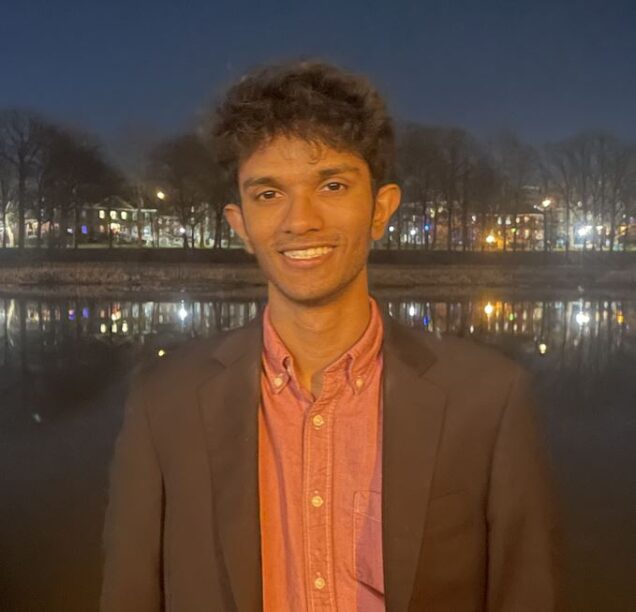
Seenivasa, Siddarth
Siddarth Seenivasa
Read more

Siddarth Seenivasa
| Grant Category: | Fulbright-Nehru Student Research Program |
| Project Title: | Mental Health and Eating Disorders: Improving Clinical Assessment in South Asian Youth |
| Field of Study: | Public Health |
| Home Institution: | Boston University, Boston, MA |
| Host Institution: | Sri Ramachandra Institute of Higher Education and Research, Chennai, Tamil Nadu |
| Grant Start Month: | September 2025 |
| Duration of Grant: | Nine months |
Brief Bio:
Siddarth Seenivasa is a clinical research coordinator and biostatistician at Massachusetts General Hospital, where he contributes to neuroimaging and proteomics research focused on eating disorders, obsessive-compulsive disorder (OCD), and Pediatric Autoimmune Neuropsychiatric Syndrome (PANS). Siddarth’s academic foundation includes a double major in biology (molecular genetics) and mathematics from the University of Rochester. He holds a master’s in biostatistics from Boston University, where he also investigated the intersection of mental health, bullying, and neuroimmune disorders. Siddarth’s research interests encompass psychiatry, neuroimmunology, and computational biology, with a particular focus on immune system dysfunctions in pediatric populations. He has developed statistical models to examine neurobiological differences across patient populations, most recently patenting a model to distinguish between PANDAS (Pediatric Autoimmune Neuropsychiatric Disorders Associated with Streptococcal Infections), OCD, and various eating disorders; this model is currently awaiting validation from a larger cohort. Siddarth has authored and co-authored publications on neuroinflammation, including his latest work exploring estrogen’s role in the mesolimbic pathway in women with eating disorders. He has also presented his research at academic conferences, such as at the Digestive Disease Week and to that of the Society of Behavioral Medicine. Siddarth plans to begin his MD-PhD journey upon returning to the U.S., with the goal of further integrating clinical practice and psychiatric research to deepen the understanding about mental health and neuroimmune disorders.
Siddarth’s nine-month Fulbright-Nehru project is seeking to develop a culturally adaptive screening tool for Indian youth to identify PANDAS, a condition for which no such tool currently exists. Toward this, he is working with Dr. Suvarna Jyothi at Sri Ramachandra Medical College, Chennai, and conducting clinical interviews to evaluate the eating habits, medical history, and mental health of at-risk adolescents. The objective is to create a diagnostic tool that incorporates the sociocultural nuances of Indian youth, thereby facilitating early intervention and addressing the underdiagnosis of PANDAS due to limitations of Western diagnostic methods.

Sondgeroth, Rachel
Rachel Sondgeroth
Read more

Rachel Sondgeroth
| Grant Category: | Fulbright-Nehru Student Research Program |
| Project Title: | “Aamchi Mumbai”: Faith-based Groups’ Impact on Mobilizing Community Service |
| Field of Study: | Area Studies |
| Home Institution: | Columbia University, New York, NY |
| Host Institution: | St. Xavier’s College, Mumbai, Maharashtra |
| Grant Start Month: | September 2025 |
| Duration of Grant: | Nine months |
Brief Bio:
Rachel Sondgeroth is an interdisciplinary scholar and professional in interreligious engagement. She recently received her master’s degree in religion from the Union Theological Seminary, an affiliate of Columbia University. Her research interests include the sociology of religion, methodology studies, and more specifically, faith-based approaches to organizing community service. She also studies how religious communities mobilize to strengthen their communities through both internal and interfaith initiatives.
For the past nine years, Rachel has been working on bringing diverse communities together to talk, listen, and connect. During both her BA and MA programs, she led interreligious initiatives, programs, and student organizations. Later, she worked for three years for the Arizona State University’s Project Humanities initiative, supporting the research of Dr. Neal Lester and facilitating events on topics such as religion and gender justice in an effort to dispel myths on religious doctrines and dogma; she was also part of intercultural seminars of the project. At the Union Theological Seminary, Rachel studied justice issues pertaining to interreligious diversity in the United States. Outside of interreligious engagement, she is working towards learning more about indigenous traditions, folk practices, and place-based spiritualities in the American Southwest.
Rachel’s Fulbright-Nehru project is conducting research exploring the methodologies, outcomes, and cultural norms around organizing faith-based community service projects in Mumbai, Maharashtra. Through case studies, interviews, and surveys, the research is cataloging the methods of faith-based service initiatives in Mumbai and quantifying their successes and challenges. By studying these practices, she is hoping to gain insights that will help improve their efficacy. The intended outcome of the project is the mobilization of millions of people to serve their communities, thereby fostering peace and unity among them.
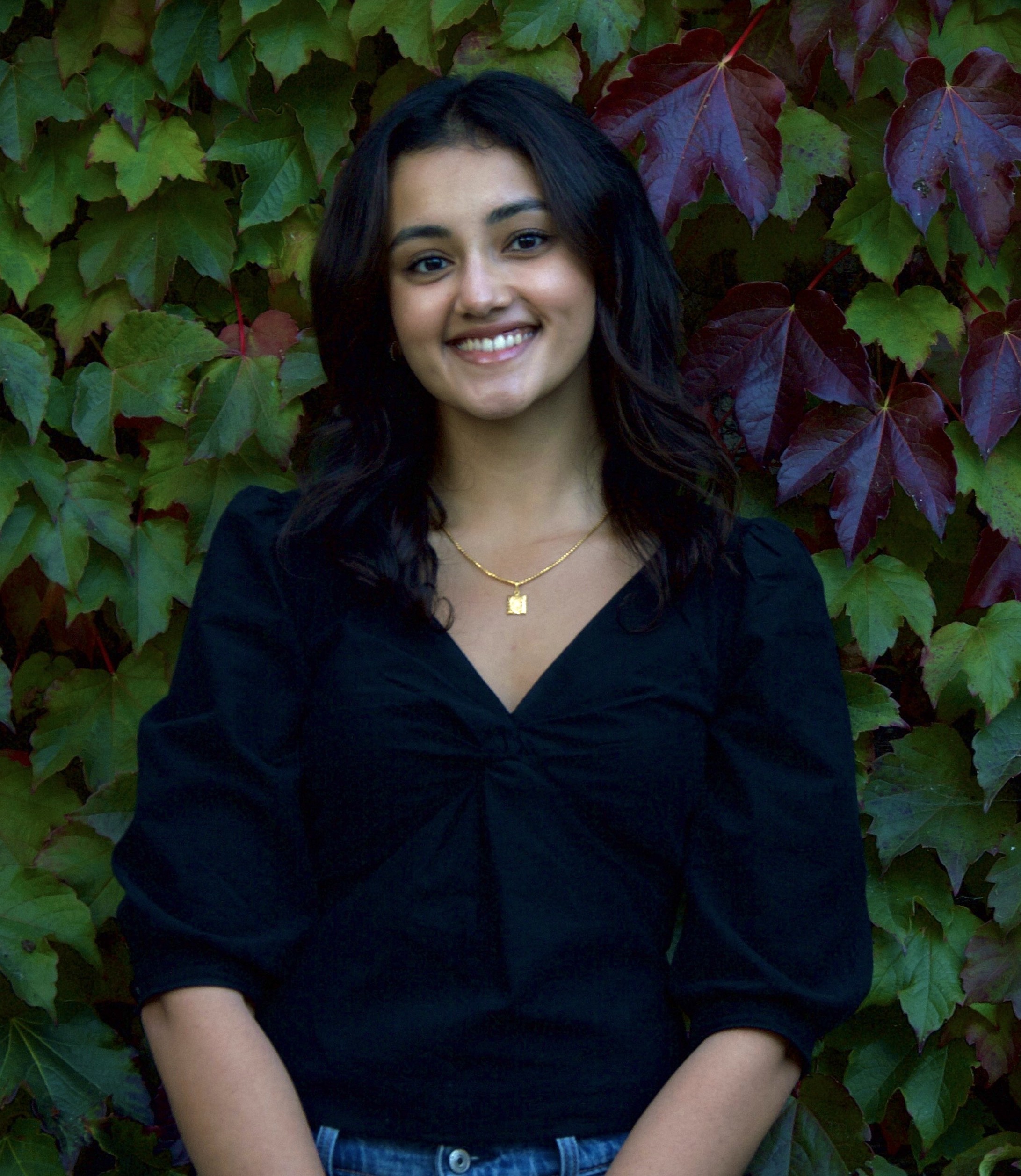
Sriram, Sharanya
Sharanya Sriram
Read more

Sharanya Sriram
| Grant Category: | Fulbright-Nehru Student Research Program |
| Project Title: | Characterizing Perceptions toward Social Support in Diabetes Management |
| Field of Study: | Public Health |
| Home Institution: | University of California- San Diego, San Diego, CA |
| Host Institution: | St. John’s Medical College, Bengaluru, Karnataka |
| Grant Start Month: | September 2025 |
| Duration of Grant: | Nine months |
Brief Bio:
Sharanya Sriram graduated with a BS in molecular and cell biology from the University of California San Diego (UCSD) in 2024. As an undergraduate, she conducted research on the immune environment of pancreatic islets in diet-induced obesity and also completed a senior honors thesis on ribosomal protein differences in alpha and beta cells to investigate stress susceptibility in diabetes pathogenesis. Her global health work includes volunteering with street medicine teams to serve refugee communities in Tijuana, Mexico, and participating in the CATALYST program with the UCSD Bioregional Center, wherein she worked with agricultural leaders, indigenous activists, and policy experts to study how climate-related urban challenges impact community health across the U.S.-Mexico border. Sharanya has also studied in Bali, Indonesia, where she examined how indigenous Balinese healing traditions are integrated with allopathic medicine. Her interests span global perspectives on illness, community-oriented climate justice and resilience, and narrative storytelling.
As a Fulbright-Nehru scholar, Sharanya is conducting a qualitative ethnographic study across diverse clinical sites in Bengaluru, India, to examine how perceptions of social support in diabetes management are shaped by gender roles, rural–urban contexts, and beliefs in Ayurvedic medicine. Her research seeks to enhance cross-cultural understanding of the holistic and psychosocial dimensions of chronic disease care, and inform the development of tools to help healthcare providers assess and integrate social support into individualized treatment plans involving culturally informed medical practices.
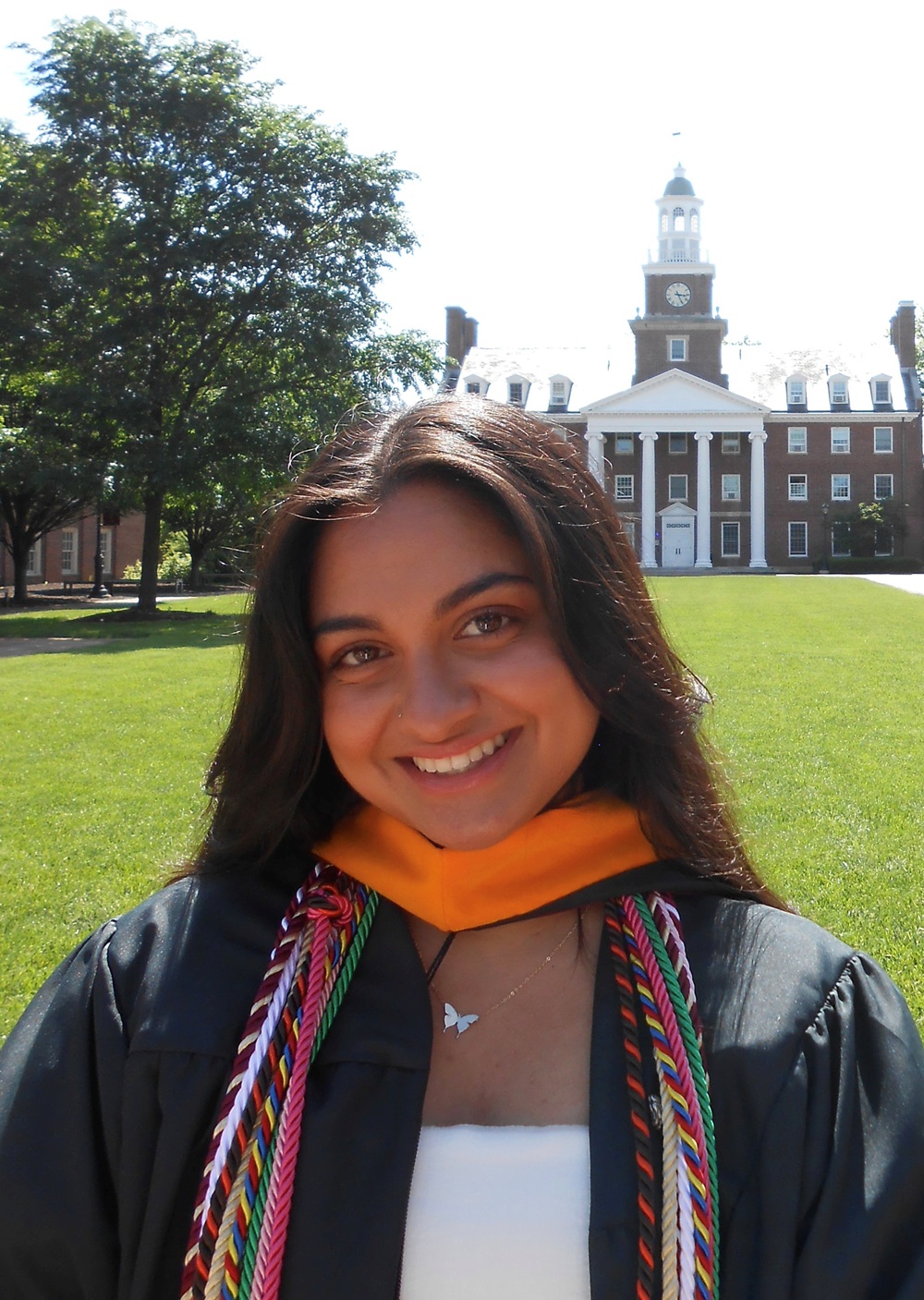
Suresh, Shreya
Shreya Suresh
Read more

Shreya Suresh
| Grant Category: | Fulbright-Nehru Student Research Program |
| Project Title: | Task Sharing: Efficacy and Experiences of Community Mental Health Workers |
| Field of Study: | Public Health |
| Home Institution: | Lafayette College, Easton, PA |
| Host Institution: | Sri Ramachandra Institute of Higher Education and Research, Chennai, Tamil Nadu |
| Grant Start Month: | September 2025 |
| Duration of Grant: | Nine months |
Brief Bio:
Shreya Suresh graduated summa cum laude from Lafayette College in May 2025 with a BS in neuroscience and a minor in music. During her undergraduate career, she had the incredibly rewarding opportunity to spend a semester abroad in India as part of the School for International Training’s public health, gender, and sexuality program. In India, Shreya conducted an independent study focused on examining youth community mental health initiatives and the democratization of mental well-being in Chennai, Tamil Nadu. In April 2025, she presented the findings of this study at the National Conference on Undergraduate Research in Pittsburgh, Pennsylvania. As an aspiring mental health practitioner, Shreya acknowledges that her Indian heritage will undoubtedly influence her clinical practice, and therefore understands the value of understanding this cultural perspective while contributing to the field of public mental health in India.
Shreya has had a variety of other experiences that have strengthened her passion for public mental health. She built on her background in public health through the Public Health 360 Program run by Global Health and Education Projects. As part of this comprehensive public health training, she attended speaker sessions hosted by public health professionals, practiced her writing and communication skills, and collaborated with a global team to develop and present a grant proposal to combat food insecurity in Prince George’s County, Maryland.
Shreya’s Fulbright-Nehru project is examining the efficacy and experiences of community mental health workers under a task-sharing model, which involves training community members to provide basic health services within their communities. She is also examining the reciprocal benefits of task sharing for both health workers and their communities by assessing the following: the training received by community mental health workers; mental health care access/utilization in their communities; psychological/social impact on community mental health workers; the relationship between these community providers and formally trained mental health practitioners; and the necessary next steps to further democratize mental well-being.
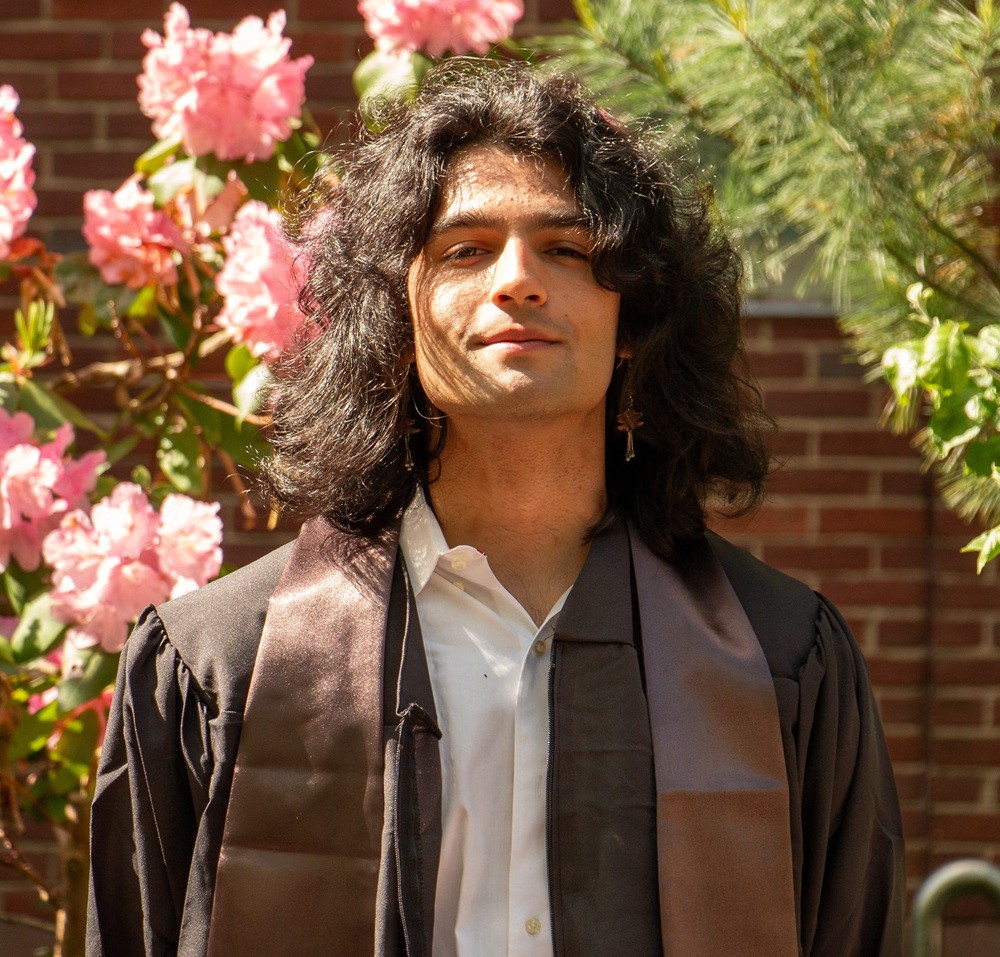
Teelucksingh, Pran
Pran Teelucksingh
Read more

Pran Teelucksingh
| Grant Category: | Fulbright-Nehru Student Research Program |
| Project Title: | Reviving the Natural Product Platform for Modern Antibiotic Discovery and Enhancement |
| Field of Study: | Chemistry |
| Home Institution: | Brown University, Providence, RI |
| Host Institution: | Indian Institute of Technology - Bombay, Mumbai, Maharashtra |
| Grant Start Month: | September 2025 |
| Duration of Grant: | Nine months |
Brief Bio:
Pran Teelucksingh recently received his BS in Chemistry and a BA in health and human biology from Brown University, Rhode Island. His research interests include bacterial metabolites and natural products. At Brown, Pran conducted research in the Kizer Lab, where he worked on optimizing the recombinant expression of glycan antigens in E. coli. He also served as a head tutor and teaching assistant for the organic chemistry sequence. He is especially interested in the intersection between public health and science. During his earlier years of college, he spent time in several student-led public health organizations and also co-published a research article on campus accessibility.
Outside of work, Pran enjoys hiking, baking, gardening, reading visual novels, and playing the trumpet and RPG video games.
Pran’s Fulbright-Nehru project is seeking to uncover novel antibiotic scaffolds and producers that can serve as the foundation for novel antimicrobial therapies. The research involves screening natural product extracts for bioactivity against Gram-negative and Gram-positive bacteria, identifying a bioactive extract, purifying the metabolite, and then characterizing the metabolite’s activity toward drug-resistant bacteria. The study is also mapping the biosynthetic gene cluster of such a metabolite by using the bioinformatic tool antiSMASH.
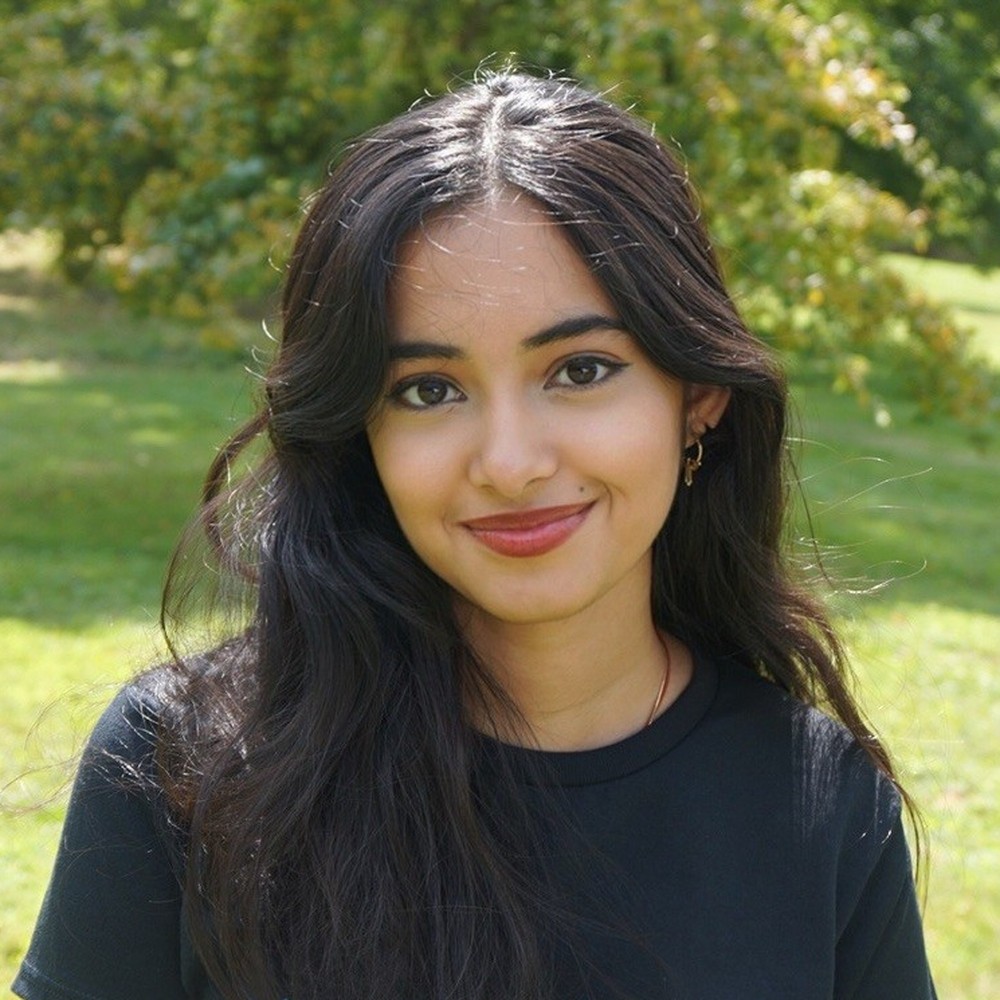
Tyagi, Shrea
Shrea Tyagi
Read more

Shrea Tyagi
| Grant Category: | Fulbright-Nehru Student Research Program |
| Project Title: | Understanding Cultural Barriers in IBD Care in India’s Marginalized Groups |
| Field of Study: | Public Health |
| Home Institution: | Yale University, New Haven, CT |
| Host Institution: | All India Institute of Medical Sciences, New Delhi, Delhi |
| Grant Start Month: | September 2025 |
| Duration of Grant: | Nine months |
Brief Bio:
Shrea Tyagi received her BS from Yale University, where she majored in neuroscience with a strong focus on interdisciplinary, patient-centered research. Her academic journey bridges basic science, global health, and the arts, with a particular interest in gastrointestinal illnesses and the cultural factors that shape access to care. At Yale, she contributed to multiple research labs. In the Turner Lab, she designed an algorithm using BioPython to identify viral “cheats” in bacteriophage populations and later conducted her own experiment studying their interactive life cycles. In the Anirvan Nandy Lab, she developed a novel video-based diffusion model capable of predicting the quantifiability of each pixel in a frame. She used this model to analyze how
visual predictability correlates with gaze movement and neuronal spiking across different neural populations in marmosets.
She also contributed to medical innovation in East Africa as part of Road2IR, a capacity-building program for interventional radiology, where she led survey-based research to identify
post-training barriers and also designed new hospital documentation systems to support clinical standardization. Her commitment to health equity and stigma reduction is deeply informed by her lived experience with inflammatory bowel disease (IBD). In this regard, in collaboration with IBD India, Shrea is leading a project to use Bharatanatyam, a classical Indian dance form, as a tool for healing and empowerment among IBD patients.
Outside of research, Shrea was the captain of Yale Kalaa, the university’s premier Indian classical dance team, and a member of both Dhvani, Yale’s Indian classical music group, and Whim ’n Rhythm, one of Yale’s senior a cappella groups. She is also the founder of the AutoKind Collective, a nonprofit focused on storytelling and culturally tailored chronic illness support.
Shrea’s Fulbright-Nehru research is examining how cultural stigma affects access to care for IBD patients in India. The study’s focus is on marginalized groups, including women of reproductive age, individuals with low socioeconomic status, and the elderly. The project aims to identify barriers to care and seeks to support culturally informed interventions in order to improve health equity for IBD patients across diverse Indian communities.

Varadan, Radha
Radha Varadan
Read more

Radha Varadan
| Grant Category: | Fulbright-Nehru Student Research Program |
| Project Title: | Anatomy-based Classical Dance: Decoding and Preventing Common Dance Injuries |
| Field of Study: | Dance |
| Home Institution: | George Washington University, Washington, D.C. |
| Host Institution: | Karnataka Samskrit University, Bengaluru, Karnataka |
| Grant Start Month: | January 2026 |
| Duration of Grant: | Nine months |
Brief Bio:
Bridging the gap between the classical arts and academia, Radha Varadan is an emerging creative artist deeply dedicated to the evolution of the traditional dance form of Kathak. A graduate of George Washington University where she held the presidential merit scholarship for excellence in dance, Radha’s academic and artistic background spans a comprehensive range. Trained from a young age in classical ballet, Kathak, and later pursuing her degree in postmodern dance, Radha is a professional Kathak artist under the tutelage of Smt. Nirupama Rajendra and Sri. T.D. Rajendra. Simultaneously, she holds a degree in the biological sciences, and has conducted and published extensive research in molecular biology and immunology.
Much like her background, Radha’s professional and creative works span countries and cultures. She has been recognized internationally for her innovative work in translating classical ballet variations into the traditional Kathak vocabulary, and for her research on the mechanisms of the injuries most commonly experienced by practitioners of Indian classical dance. In 2024, Radha received the Maida Withers Award for Originality and Risk in Performance Art. She is also the recipient of several grants supporting her research in the molecular biological sciences.
Aside from her academic and creative endeavors, Radha is an accomplished performing artist. She has performed solo worldwide at prestigious dance festivals, including the New York Kathak Festival, the North Carolina Kathak Festival, the Youth Festival organized by IFAA San Diego, and the Au-Delà des Préjugés Festival in Switzerland. Radha also performs for the renowned Abhinava Dance Company, where she continues to deepen her study of traditional Indian arts.
While scholarship in the field of dance injuries is rapidly growing, the information that is available is almost entirely geared toward Western ballet and modern dance forms. Radha’s Fulbright-Nehru research project is addressing this disparity by integrating ancient anatomical knowledge documented in the Natya Shastra with existing Western-centric research. In doing so, the academic fields of injury prevention and kinesiology broaden in the pursuit of cultural equity and access to health information.
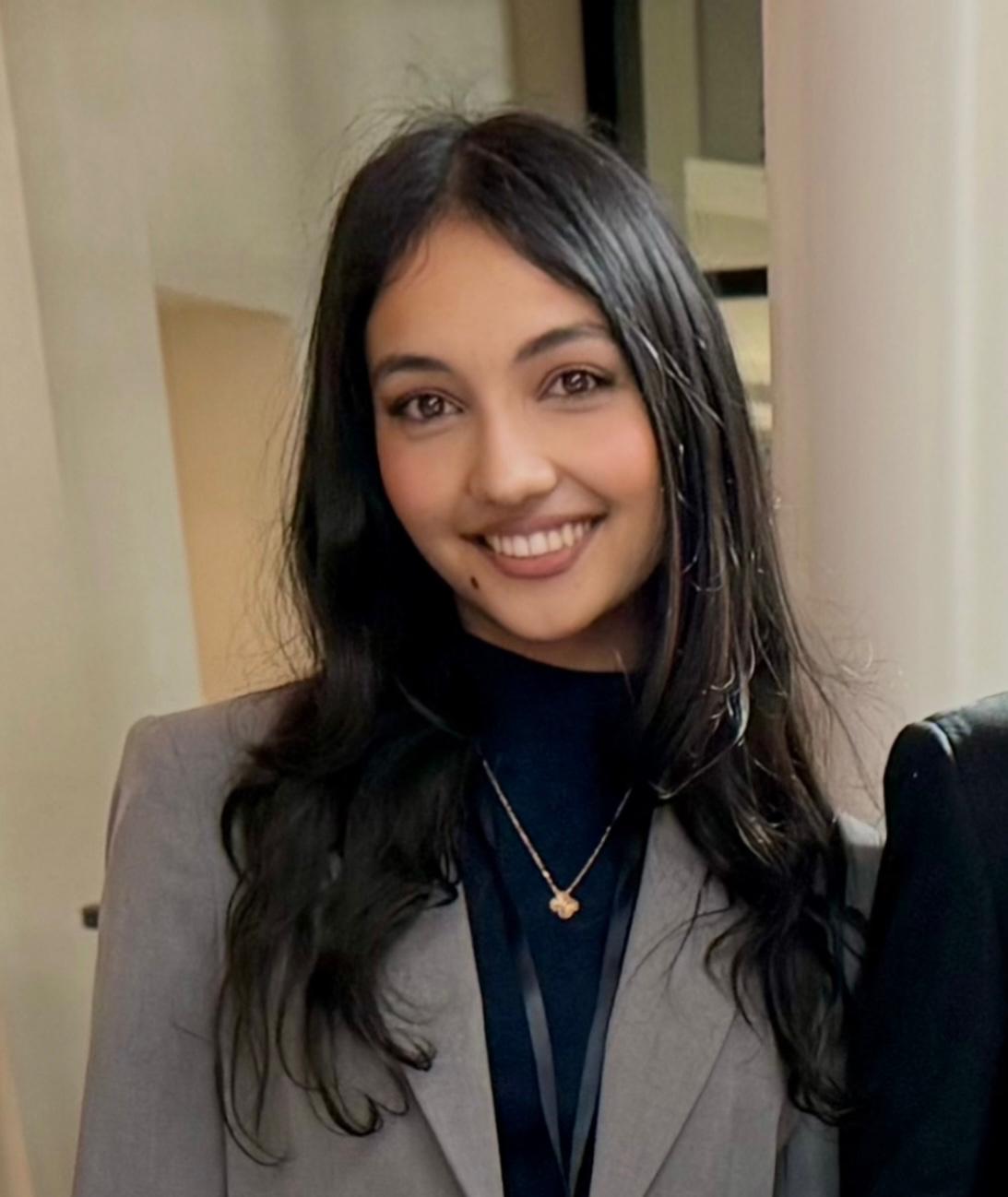
Varshney, Nundini
Nundini Varshney
Read more

Nundini Varshney
| Grant Category: | Fulbright-Nehru Student Research Program |
| Project Title: | Sex Education, HPV Vaccination, and Cervical Cancer: Jaipur’s Path Forward |
| Field of Study: | Public Health |
| Home Institution: | University of California- San Diego, San Diego, CA |
| Host Institution: | Mahatma Gandhi University of Medical Sciences and Technology, Jaipur, Rajasthan |
| Grant Start Month: | September 2025 |
| Duration of Grant: | Nine months |
Brief Bio:
Nundini Varshney is a public health advocate and aspiring physician with a strong background in clinical research, health education, and community-based initiatives. She graduated cum laude in human biology and with a minor in business from the University of California San Diego. Her academic foundation is complemented by extensive clinical research experience across Southern California, where she has contributed to studies focused on Alzheimer’s dementia, anemia in chronic kidney disease, and novel cancer therapies targeting genetic mutations.
In parallel with her scientific work, Nundini has led efforts to increase access to life-saving education and resources. She is the founder of a student-led organization that has trained over 4,000 middle- and high-school students in CPR and AED (automated external defribillator) usage. Her advocacy work has contributed to the development and co-sponsorship of legislation mandating annual CPR and AED training for students and teachers across California.
Her interests lie at the intersection of medicine, policy, and education, particularly in the fields of cancer prevention, adolescent health, and reproductive justice. With a commitment to serving marginalized populations and a deep appreciation for culturally informed care, Nundini seeks to bridge the gap between science and community impact. She aims to pursue a career in oncology that integrates clinical care, research, and advocacy to advance health equity at both local and global levels.
Nundini’s Fulbright-Nehru public health project in Rajasthan is focusing on improving adolescent awareness of cervical cancer and increasing the HPV vaccination uptake. In collaboration with Mahatma Gandhi University of Medical Sciences and Technology, she is surveying students, parents, and educators in Jaipur, Rajasthan, to identify gaps in reproductive health education, particularly omissions related to HPV and cervical cancer in national guidelines. The project is also developing context-sensitive interventions shaped by cultural, gender, and economic factors. Nundini will use her findings to deliver evidence-based policy recommendations to support equitable vaccine access across state-funded health systems.
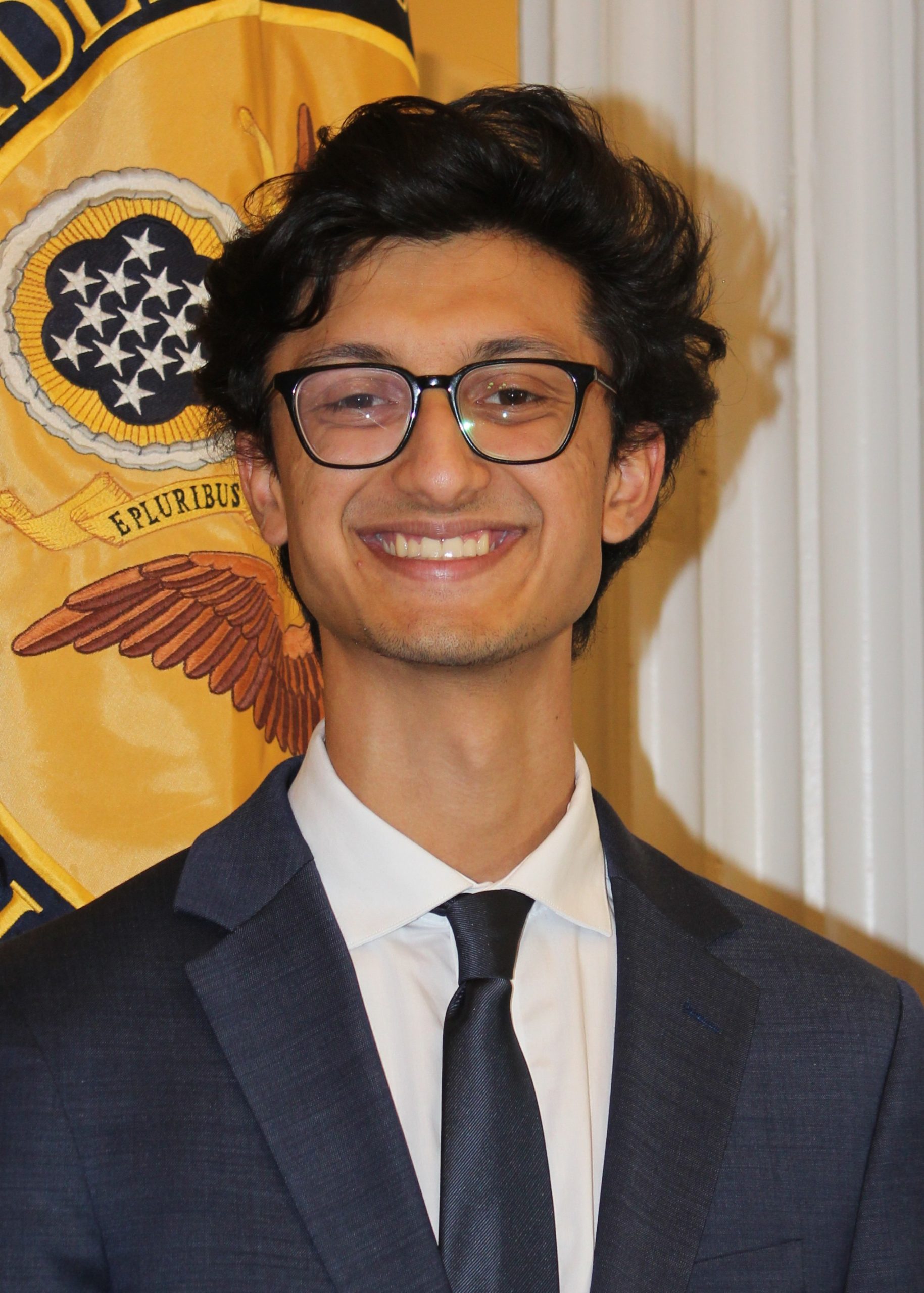
Vashee, Rushil
Rushil Vashee
Read more

Rushil Vashee
| Grant Category: | Fulbright-Nehru Student Research Program |
| Project Title: | Understanding Economic Access and Participation in Gujarat, India |
| Field of Study: | Economics |
| Home Institution: | Georgetown University, Washington, D.C. |
| Host Institution: | Indian Statistical Institute, New Delhi, Delhi |
| Grant Start Month: | September 2025 |
| Duration of Grant: | Nine months |
Brief Bio:
Rushil Vashee earned a BS summa cum laude in international political economy from Georgetown University’s Walsh School of Foreign Service in 2025. He was awarded the Dean’s Medal for earning the highest cumulative GPA in the school. Rushil’s senior thesis, awarded departmental honors, leveraged an original database on international lending to explore why some countries rejected international assistance during COVID-19.
During his time at Georgetown, Rushil interned at the White House Council of Economic Advisers, the U.S. House Committee on Oversight and Accountability, and the Edunomics Lab. He was also an intern with the Thurgood Marshall Civil Rights Center at Howard University. While studying abroad at Ecuador’s Universidad San Francisco de Quito, Rushil was a research assistant in the Laboratory of Computational and Experimental Economics. Rushil’s time in Ecuador, shaped by everyday conversations with his host family, classmates, and taxi drivers, deepened his curiosity about how social dynamics shape access to opportunity in urban economies.
Beyond academic and policy work, Rushil is an experienced journalist. He has published over 100 articles about the National Football League for USA TODAY Sports. A holder of a journalism minor from Georgetown University, Rushil, for his capstone project, interviewed NFL players and agents to examine the post-career narratives of professional athletes. He has also served as a senior coordinator of Georgetown Rangila, the largest charity dance showcase in the United States with over 400 participants every year. Besides, he helped raise a record sum of $81,000 for a Nepali nonprofit to sponsor 300 years of girls’ education and to renovate a science lab and a school library. For his leadership skills, Rushil received the Martha Swanson Outstanding Senior Leader Award at Georgetown University.
Rushil’s Fulbright-Nehru research project is focusing on understanding the differences in economic access in Gujarat, one of the fastest growing states in India. The project is investigating the behavioral and institutional factors that shape economic inclusion across both urban and rural Gujarat. Through fieldwork in Delhi and Gujarat, Rushil aims to produce actionable insights that set the stage for the next leap in global financial access.
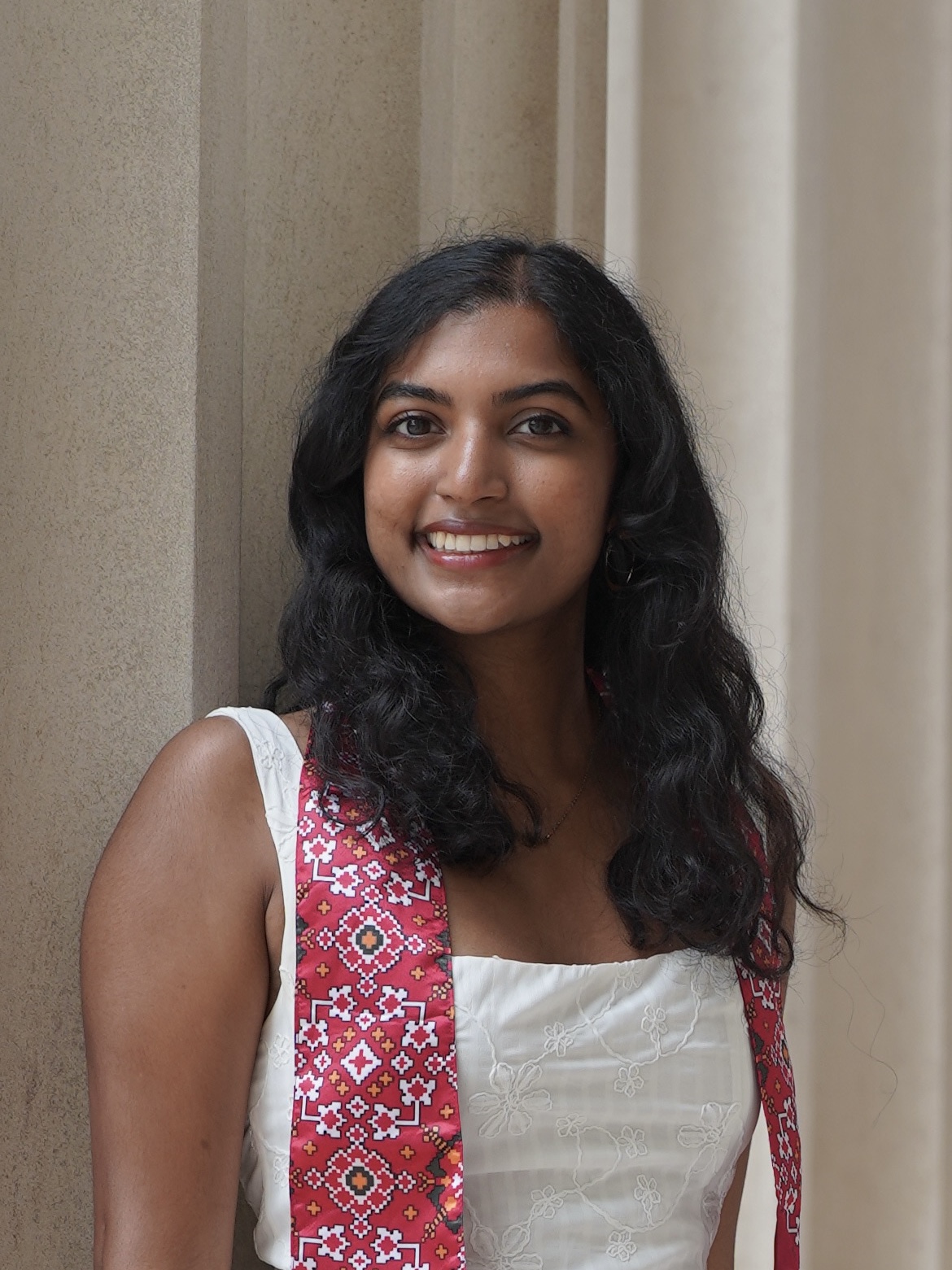
Vemuri, Megha
Megha Vemuri
Read more

Megha Vemuri
| Grant Category: | Fulbright-Nehru Student Research Program |
| Project Title: | Investigating the Language Networks of Early Multilinguals using fMRI |
| Field of Study: | Neuroscience |
| Home Institution: | Massachusetts Institute of Technology, Cambridge, MA |
| Host Institution: | National Brain Research Centre, Gurugram, Haryana |
| Grant Start Month: | September 2025 |
| Duration of Grant: | Nine months |
Brief Bio:
Megha Vemuri received her BS in computation and cognition and in linguistics and philosophy from the Massachusetts Institute of Technology (MIT) in May 2025. Her academic and research interests center on the neurobiology of language and its developmental foundations. She worked as an undergraduate research assistant in various neuroscience labs throughout her time in the university. Her early research spanned both assistive technology and interspecies communication. At the Senseable Intelligence Lab, she worked on Mumble Melody, a mobile application serving as a free, accessible alternative to assistive technology for people who stutter. Building on this interest in social connection, she co-led a novel study in interspecies communication, designing and analyzing a video-calling system for socially isolated parrots. The work received press coverage and an honorable mention at the 2023 Conference on Human Factors in Computing Systems. In 2024, she conducted infant neuroimaging research in South Africa with the Neurodevelopment Group at the University of Cape Town, using EEG and portable MRI to identify early brain development biomarkers in low-resource settings. For the last two years, she has been working in the EvLab at MIT’s McGovern Institute for Brain Research, on fMRI projects focused on multilingualism, heritage speakers, and language processing, many of which serve to diversify neurolinguistics data.
In her Fulbright-Nehru project, Megha is examining the neural signatures of individuals who acquired three or more languages at a young age. The fMRI study is being conducted at the National Brain Research Centre in Gurugram under Dr. Arpan Banerjee. Using fMRI methods adapted from the EvLab, the study is addressing a critical gap in neurolinguistics by examining an understudied population between bilinguals and polyglots. By collecting and analyzing brain imaging data from 80–90 participants, the project seeks to diversify language research by studying underrepresented profiles. The findings and materials will contribute to global cognitive science and support future language-related studies in South Asia, particularly in developmental contexts.
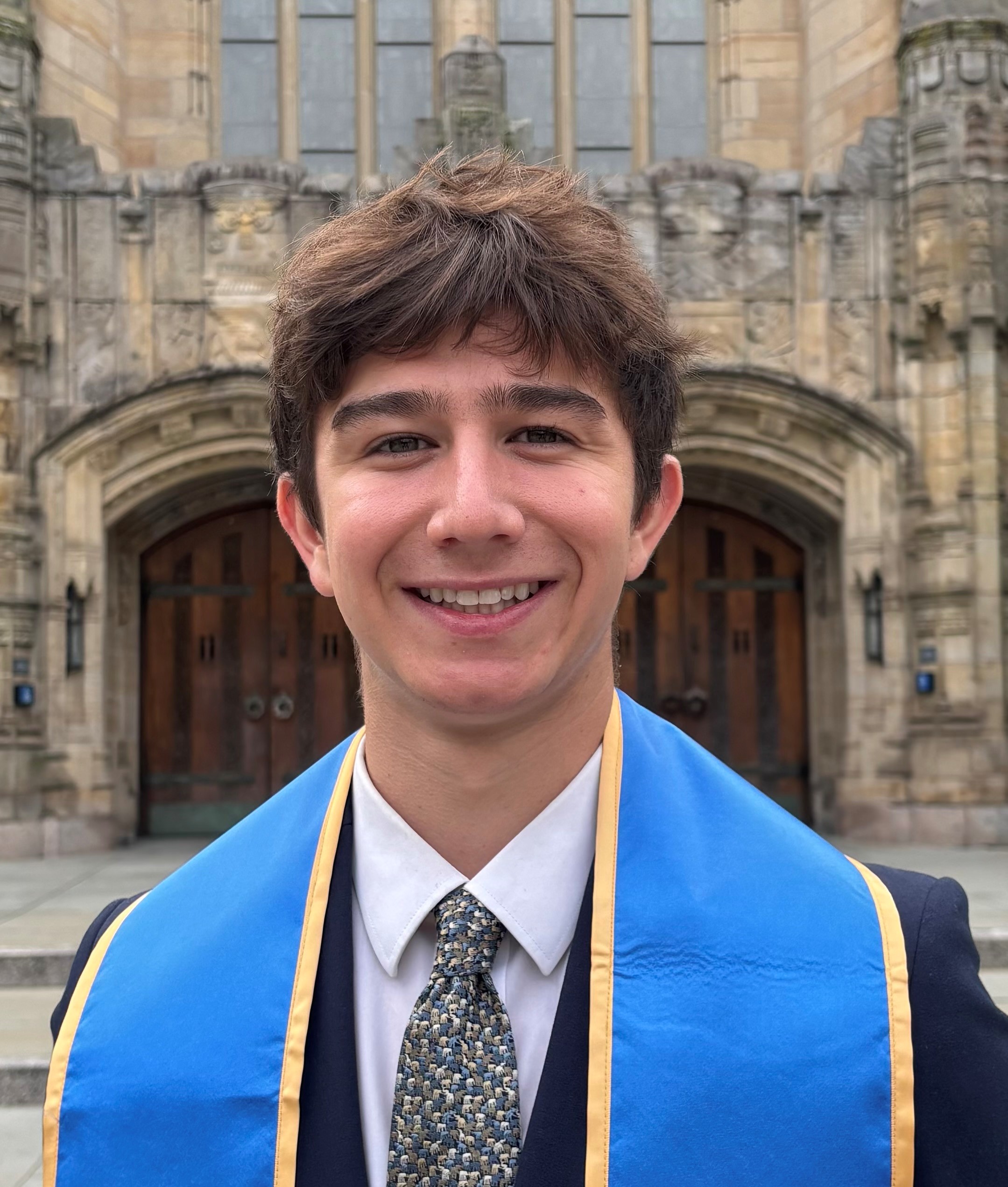
Wipfli, Ray
Ray Wipfli
Read more

Ray Wipfli
| Grant Category: | Fulbright-Nehru Student Research Program |
| Project Title: | Assessment of the Kids and Diabetes in School Intervention in New Delhi, India |
| Field of Study: | Public Health |
| Home Institution: | Yale University, New Haven, CT |
| Host Institution: | Holy Family Hospital, New Delhi, Delhi |
| Grant Start Month: | September 2025 |
| Duration of Grant: | Nine months |
Brief Bio:
Ray Wipfli holds a BS in molecular biophysics and biochemistry with a concentration in medicine from Yale University. In addition to his primary undergraduate degree, he received a certificate in global health studies through the selective Yale Jackson Institute’s Global Health Scholars Program. He already has over a decade of experience working in global health through his nonprofit organization, Energy in Action, which specializes in youth-targeted interventions in Uganda. Through this organization, of which he is both the founder and the chief executive officer, he has led countless public health interventions concerning sanitation and hygiene, sexual and reproductive health, and prevention of drowning. Furthermore, he has facilitated and published multiple research studies examining health knowledge and behaviors in Ugandan youth. Ray is interested in forging strong international connections to further the mission of health across the world, with a specific focus on youth and non-communicable diseases.
Ray’s Fulbright-Nehru project is to conduct an evaluation of the updated Kids and Diabetes in School (KiDS) campaign in New Delhi, India. The campaign targets the rapidly rising health and economic burden of diabetes in India, home to the world’s second highest number of diabetic patients. The research seeks to inform future health policy related to adolescents.
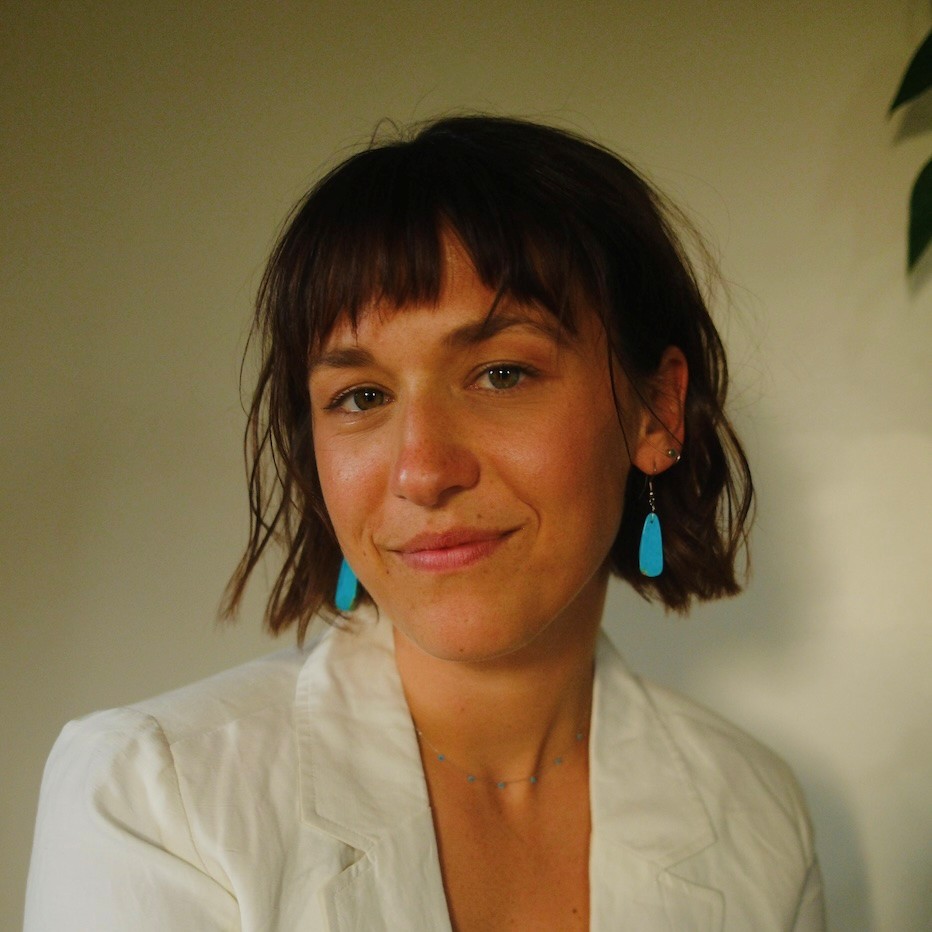
Wulfman, Claire
Claire Wulfman
Read more

Claire Wulfman
| Grant Category: | Fulbright-Nehru Student Research Program |
| Project Title: | Exploring Men and Masculinities for Addressing Public-space Sexual Harassment |
| Field of Study: | Public Health |
| Home Institution: | University of Utah, Salt Lake City, UT |
| Host Institution: | D.Y. Patil University, Mumbai, Maharashtra |
| Grant Start Month: | September 2025 |
| Duration of Grant: | Nine months |
Brief Bio:
Claire Wulfman holds a bachelor’s degree in biology from the University of Vermont and recently completed her master’s in public health from the University of Utah. Her academic path has been shaped by her curiosity and drive to create more equitable systems of care. As an undergraduate, she was involved in student government, biomedical research, collegiate athletics, and tutoring in writing. All through her master’s program, Claire contributed to a nationwide sleep study by coordinating participant recruitment and conducting cognitive assessments. She has served as a health educator with the Planned Parenthood’s Teen Council Program and has also been a counselor for sexual assault victims; besides, she was a community outreach assistant with the Utah Coalition Against Sexual Assault. For her practicum, Claire traveled to Peru to study family planning beliefs and behaviors.
As a community outreach officer on the Student Advisory Committee, Claire organized volunteer initiatives and policy engagement events for fellow graduate students. She has also contributed to research on sexual and reproductive health and rights in India. Her capstone project explored how gender norms affect stress and mental health among college-aged men; this built on her broader interest in social constructs of masculinity and gender-based violence. Claire’s interdisciplinary interests bridge public health, gender equity, and social justice. Her passion for addressing gender-based violence stems from her experience supporting survivors, promoting prevention, and researching the role of masculinities. Outside of academics and work, Claire finds joy in poetry, cooking, and spending time in the mountains.
Claire’s Fulbright-Nehru project is examining how NGOs based in Mumbai are engaging with men and boys on the topic of public-space sexual harassment (PSH). Working with these local organizations, Claire is assessing how concepts of masculinity, gender roles, and safety are communicated and implemented. Through interviews, field observations, and policy analysis, her research aims to identify effective strategies to promote gender equity and inform future interventions to address PSH in India and beyond.
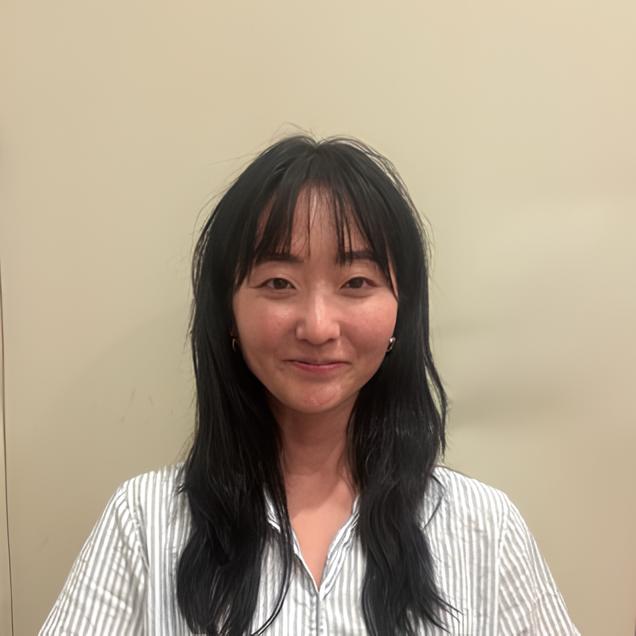
Kang, Sophia
Sophia Kang
Read more

Sophia Kang
| Grant Category: | Fulbright Distinguished Awards in Teaching Research Program |
| Project Title: | Challenges to Intrinsic Motivation in the Classroom and How to Involve Community in Student-Driven Learning |
| Field of Study: | Education |
| Home Institution: | Multicultural High School Brooklyn, NY |
| Host Institution: | TBD, TBD, TBD |
| Grant Start Month: | September 2026 |
| Duration of Grant: | Six months |
Brief Bio:
Ms. Sophia Kang has been teaching English literature for the past eight years across the seventh to 12th grades. She is an advocate for culturally relevant teaching that connects students’ lived experiences to the classroom. She has collaborated with TED-Ed Student Talks to help students develop their inquiry skills, resulting in personalized projects, such as connecting local carcinogen levels to health or concussions to the longevity of football players. Committed to educational equity across marginalized communities, Ms. Kang has led professional development for 150 teachers around data collection, culturally relevant teaching, and interdisciplinary writing. She has also established a shared language for writing across subjects and has played a significant role in increasing her school’s English Language Arts performance level from red to green tier. In her research, she seeks to examine how schools with limited funding can implement innovative and systemic practices to increase student engagement, such as by fostering community connections and increasing ownership across all stakeholders. The ultimate goal of Ms. Kang’s research is to empower students, teachers, and communities to each become leaders of positive change, thereby building up schools as positive learning spaces. She received her BA in English from the University of California, Berkeley, in 2015 and her MA in education from the University of California, Los Angeles, in 2018.
Beyond the classroom, Ms. Kang has engaged with her local community and communities abroad – she has provided mentorship to unhoused youth on skid row and has created culturally relevant English lessons for the Ticuna tribe. She enjoys creative expressions such as poetry, ceramics, and film in her free time, which allows her to make unique connections to education.
Ms. Kang’s Fulbright research project is examining how under-resourced schools can implement innovative and systemic practices to close socio-economic achievement gaps and foster community connections. She aims to use her findings to boost student engagement by nurturing intrinsic motivation and meaningful learning experiences in her own school community.
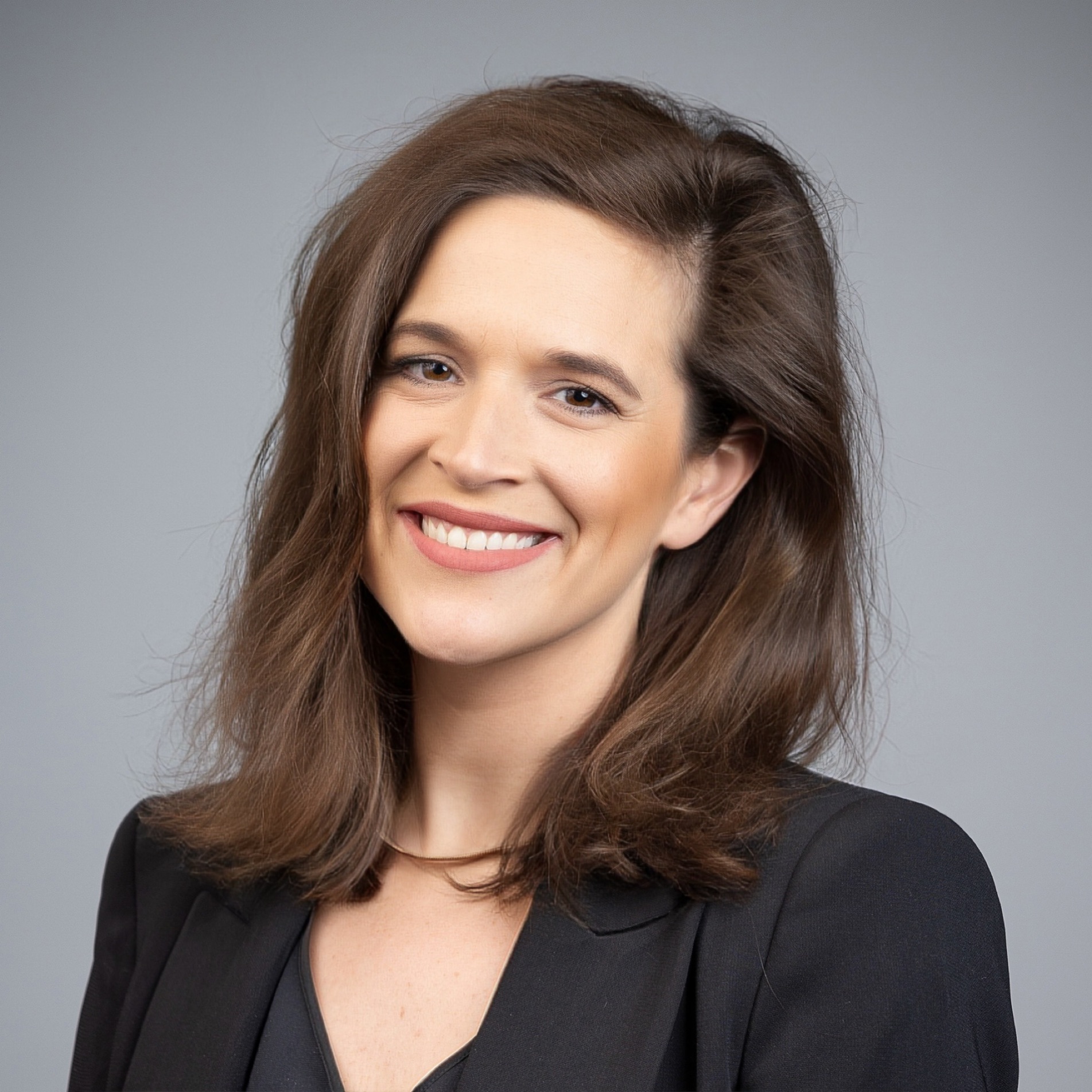
Dambrino, Kristian
Kristian Dambrino
Read more

Kristian Dambrino
| Grant Category: | Fulbright Global Scholar Award |
| Project Title: | Reducing Global Mental Health Stigma through Nurse Capacity Enhancement in Indonesia and India |
| Field of Study: | Nursing |
| Home Institution: | Belmont University College of Nursing Nashville, TN |
| Host Institution: | Bangalore Baptist Hospital Society, Bengaluru, Karnataka |
| Grant Start Month: | December 2025 |
| Duration of Grant: | One and a half months |
Brief Bio:
Dr. Kristian Dambrino is an ANCC board-certified psychiatric nurse practitioner and founder of Dambrino Wellness, an evidence-based outpatient mental health clinic in Nashville, Tennessee. During her Doctor of Nursing Practice program, she studied the impact of high-deductible health insurance on mental health treatment through a retrospective analysis, exploring how cost transparency between the provider and patient can mitigate financial decision-making for patients accessing psychiatric care.
As a national speaker and psychopharmacology expert, Dr. Dambrino regularly delivers continuing medical education programs for Psych Congress, HMP Global, and conferences across the United States. Her academic contributions include authoring accredited graduate nursing courses in psychopharmacology, guest lecturing at Vanderbilt University, and holding adjunct appointments at Michigan State University and Marian University.
Dr. Dambrino is the creator of The Limbic Music, an R&B musical about neurotransmitters in mental health, which is currently in pre-production. She has also authored a masterclass in jazz vocal improvisation, delivering the six-hour curriculum completely in French in Caen, France, in May 2023. An accomplished vocalist, she performs at annual jazz concerts in France and has shared stages with Oprah Winfrey, Morgan Freeman, Jean Smart, Samuel L. Jackson, and Ray Romano. She has also been featured on U.S. national television – MSNBC, CNBC, and CMT – as an entertainer, and has released three original jazz albums, one of which was awarded the 2017 Mississippi Institute of Arts & Letters Award for Best Contemporary Music Composition.
Committed to service, Dr. Dambrino volunteers regularly with Rotary International, Project C.U.R.E., Habitat for Humanity, the National Alliance on Mental Illness, and the Nashville International Center for Empowerment. Recently, she produced a sold-out benefit concert, Music City Without Borders, raising $20,000 for refugee resettlement in Tennessee.
Dr. Dambrino’ s Fulbright-project is working on reducing mental health stigma among nurses and nursing students in Indonesia and India through a photovoice-enhanced intervention. Via participatory photography and workshops, the project participants are documenting and reflecting on their experiences with stigma. The goal is to strengthen mental health nursing capacity by building sustainable global partnerships.
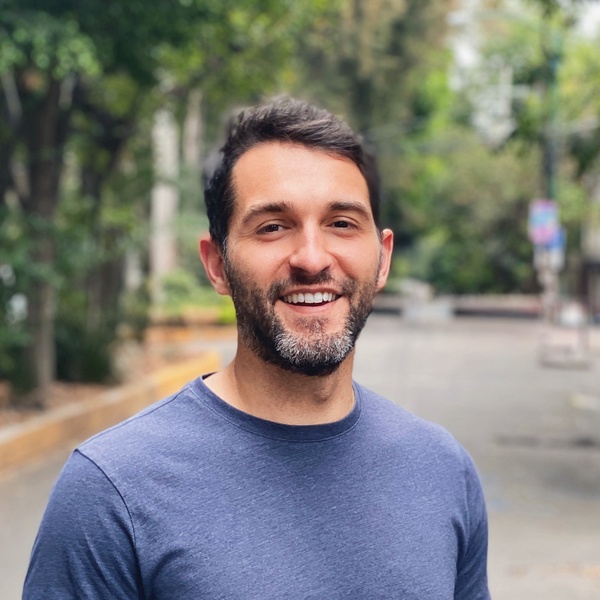
Mazzanti, Jared
Jared Mazzanti
Read more

Jared Mazzanti
| Grant Category: | Fulbright Global Scholar Award |
| Project Title: | Deepening University Integration in Local and National Innovation Ecosystems |
| Field of Study: | Business |
| Home Institution: | University of California Berkeley, CA |
| Host Institution: | Indian Institute of Science, Bengaluru, Karnataka |
| Grant Start Month: | November 2025 |
| Duration of Grant: | One and a half months |
Brief Bio:
Mr. Jared Mazzanti currently serves as the director of Strategic Initiatives in the Dean’s Office at the University of California (UC), Berkeley School of Public Health, where he has designed and operationalized multiple programs focused on health innovation internationally and domestically. He spearheads a novel partnership with J.P. Morgan that brought a new healthcare conference to Asia, oversees a Health Innovation Accelerator for Taiwanese start-ups, and previously built a Social Impact Innovation Grant Program to provide student teams resources and training to effect positive change in their communities.
A Boren scholarship to China in 2009 ignited Mr. Mazzanti’s lifelong drive to build bridges between peoples and cultures, especially in Asia. He has launched and sustained multi-country partnerships in his previous roles at the Harvard T.H. Chan School of Public Health, Peking University’s Guanghua School of Management, UC Berkeley’s Office of the Chancellor, and the HNA Group in China.
Mr. Mazzanti received his BA in political economy with the distinction of magna cum laude from UC, where he concentrated in East Asia and minored in Chinese. He received his MBA in 2016 after completing a Chinese-taught program at Central South University (中南大学) in China’s Hunan province. He is an active member of UC Berkeley’s Innovation and Entrepreneurship Council, regularly volunteers for the Asia Society of Northern California, and maintains professional credentials in HR and project management.
Mr. Mazzanti’s Fulbright project is conducting a comparative analysis on how universities in India (Indian Institute of Science), Japan (Tohoku University), and South Korea (Seoul National University) are bridging the gap between invention and innovation, especially in health-related deep tech; this is to identify success stories and pain points, the latter preventing faster uptake of university research by industry. His research aims to answer one key question through surveys and stakeholder interviews: what factors best position a university to integrate into local and national innovation ecosystems and drive entrepreneurship among its faculty, students, staff, and alumni?

Zhang, Weidong
Weidong Zhang
Read more

Weidong Zhang
| Grant Category: | Fulbright Global Scholar Award |
| Project Title: | China and the Global South: Contemporary Dynamics and Global Implications |
| Field of Study: | International Relations |
| Home Institution: | Winona State University Winona, MN |
| Host Institution: | Mahatma Gandhi University, Kottayam, Kerala |
| Grant Start Month: | January 2026 |
| Duration of Grant: | Two months |
Brief Bio:
Dr. Weidong Zhang is a professor in the Department of Global Studies and World Languages at Winona State University, Minnesota. He holds a doctorate in mass communications (with a cultural studies focus on media, culture, and society), and an MA in Asian studies/Asian civilizations, both from the University of Iowa. He was a research fellow at the Max Planck Institute for the Study of Religious and Ethnic Diversity in Göttingen, Germany, during 2014–2015. His research interests lie at the intersection of language and discourse, culture, and Chinese society. He has published in the International Journal of China Studies, the American Review of China Studies, the Journal of Asian Communication Research, and the Network and Communications Journal, among others. One important line of his work focuses on China’s role in the world, including China’s self-perception and its evolving foreign policy and the foreign policy discourse it has with the new world order and the Global South.
Dr. Zhang’s Fulbright project is part of a multi-country research aiming to provide a comprehensive yet nuanced analysis of China’s engagement with diverse regions within the Global South. Using case studies and fieldwork in India, Brazil, and South Africa, the project is investigating China’s diverse strategies in foreign policy, economic investments, and diplomatic initiatives in Asia, Africa, and Latin America. It is also assessing how nations in the Global South perceive and respond to China’s influence, highlighting regional variations in these interactions. This research addresses a critical gap in the understanding of China’s role in the Global South, a region that has often been overlooked in mainstream analyses of China’s foreign policy. By exploring the intersection of China’s strategic interests and the diverse priorities of the Global South nations, the study is attempting to offer a deeper understanding of how these evolving relationships are shaping global power dynamics, regional development, and geopolitical alignments. Additionally, it is examining the broader implications for global governance, peace, and security, to provide insights into the future of international relations and China’s role in the evolving global order.
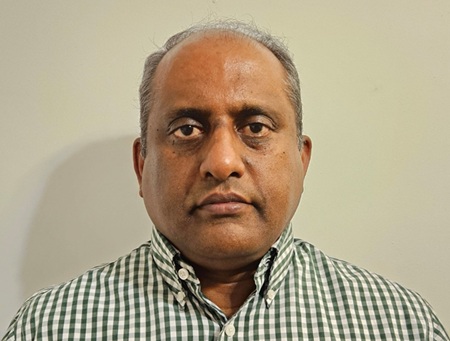
Arumugam, Sankarasubramanian
Sankarasubramanian Arumugam
Read more

Sankarasubramanian Arumugam
| Grant Category: | Fulbright-Kalam Fellowship |
| Project Title: | Utilizing Hydroclimate Information for FEWS Management in India: Opportunities and Challenges |
| Field of Study: | Engineering |
| Home Institution: | North Carolina State University Raleigh, NC |
| Host Institution: | Indian Institute of Science, Bengaluru, Karnataka |
| Grant Start Month: | January 2026 |
| Duration of Grant: | Six months |
Brief Bio:
Prof. Sankarasubramanian Arumugam is a faculty at North Carolina State University. His primary research interest lies in understanding, modeling, and forecasting large-scale hydroclimate information and utilizing that information for improved food, water, energy nexus. In this context, he has developed both physical and stochastic models in hydroclimatology, as well as stochastic optimization models for incorporating climate information into water, energy and crop-water management models. He received his PhD in water resources engineering from Tufts University in 2001. After that, he worked as a postdoctoral research scientist and as associate research scientist at Columbia University’s International Research Institute for Climate and Society. He has also worked as a consultant for the World Bank focusing on the role of environmental impact assessment in improving development projects.
Dr. Arumugam has published more than 120 refereed articles in various top-tier journals such as Water Resources Research, Earth’s Future, and Journal of Geophysical Research. He has mentored 9 postdoctoral scientists, 21 PhD students, and 5 MS students. He has served as the lead principal investigator for various interdisciplinary flagship initiatives of the National Science Foundation (NSF) on climate and sustainability. He has received the prestigious CAREER award from NSF. Dr. Arumugam has also led an AGU Chapman International Conference on seasonal hydroclimatic predictions and water management.
He is currently serving as an associate editor with Geophysical Research Letters and has served on the editorial board of publications like Water Resources Research and Journal of Hydrology. Apart from serving on several NSF panels, he was a panelist for the NAS workshop on utilizing water-use information. He has also led several workshops for the USGS Powell Center and the World Meteorological Organization.
Dr. Arumugam’s Fulbright-Kalam project is pursuing four key research activities: developing a national assessment of Food, Water and Energy Systems (FEWS) security; synthesizing opportunities and challenges to improve FEWS resilience under near-term climate change; capacity building of agencies on state-of-the-art models in FEWS research through workshops; and training next-gen scientists through short-term courses on utilizing hydroclimatic information for improving FEWS resilience.
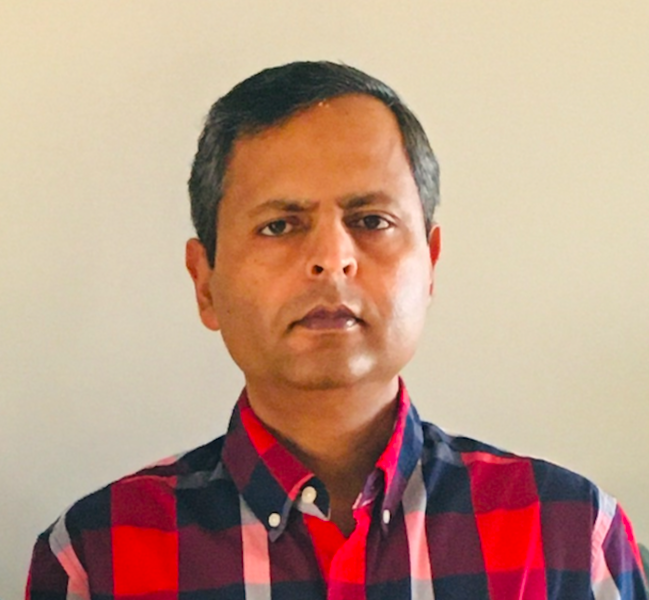
Behura, Susanta
Susanta Behura
Read more

Susanta Behura
| Grant Category: | Fulbright-Kalam Fellowship |
| Project Title: | Advancing Genomics Research and Education on Climate-resilient Animal Agriculture in India |
| Field of Study: | Animal Science |
| Home Institution: | University of Missouri Columbia, MO |
| Host Institution: | Utkal University, Bhubaneswar, Odisha |
| Grant Start Month: | May 2026 |
| Duration of Grant: | Four months |
Brief Bio:
Dr. Susanta Behura is an assistant professor of computational biology and bioinformatics in the Division of Animal Sciences of the University of Missouri, Columbia. He has a BSc in mathematics, an MSc in biotechnology, and a PhD in life sciences. His postdoctoral training was at Purdue University and the University of Illinois Urbana-Champaign. He has a decade’s experience in animal health and reproduction research at the University of Missouri. His lab leverages multi-omics data using transcriptomics, epigenetics, metabolomics, proteomics, and single-cell genomics assays to perform data-intensive bioinformatics research in the areas of reproduction, development, and health.
Dr. Behura has a demonstratable track record of conducting research independently as well as collaboratively. He has published over 100 papers in peer-reviewed journals and these have been cited extensively. His current h-index is 37 and i10-index, 82. In the last five years, his lab has published several papers in Gene, Placenta, Cells, iScience, and FASEB J which have provided new insights into the role of placenta in the development of fetal brain in animals. Dr. Behura has also been actively involved in writing collaborative and independent grant proposals. At Missouri, he has developed and taught a graduate-level course, and has also mentored three graduate students and a senior research specialist.
A reviewer for many high-impact factor journals, Dr. Behura is an editorial board member of several journals such as Scientific Reports and Systems Biology in Reproductive Medicine. He has also served as a grant reviewer and panelist for agencies like the U.S. National Science Foundation, French National Research Agency, German Research Foundation, Wellcome Trust, U.S. Department of Agriculture, Israel’s Ministry of Science, Technology and Space, and Spain’s “la Caixa” Foundation.
Dr. Behura’s Fulbright-Kalam project is a combined teaching and research endeavor at Utkal University, India. His research project, called “Advancing Genomics Research and Education on Climate-resilient Animal Agriculture in India”, is studying epigenetic changes in the blood of dairy cows to understand how they cope with summer heat. The teaching component is providing students an overview of emerging applications of genomics in climate resilience research in animal agriculture.
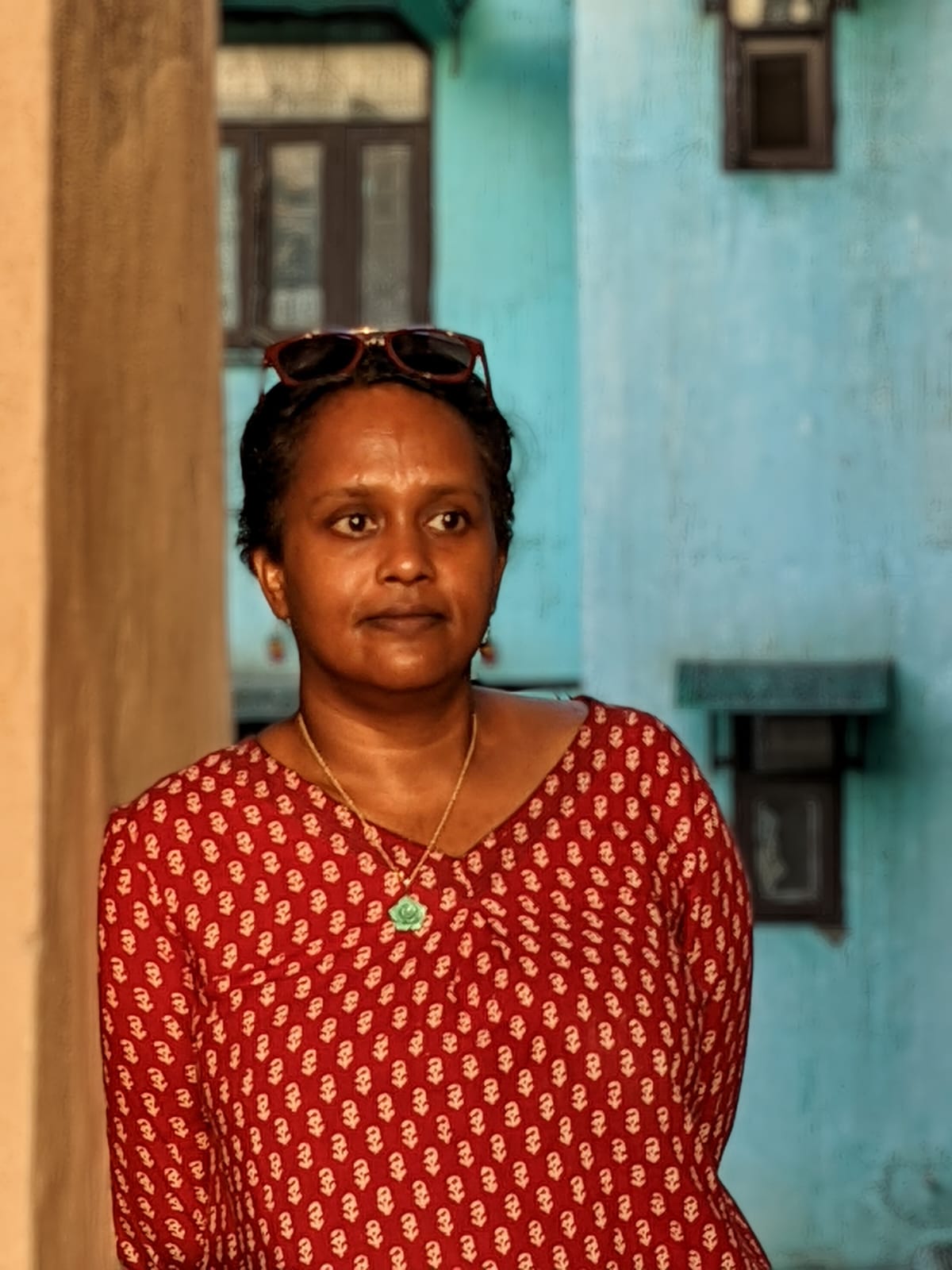
Roy, Shouraseni
Shouraseni Roy
Read more

Shouraseni Roy
| Grant Category: | Fulbright-Kalam Fellowship |
| Project Title: | Exploring Climate Change Impacts and Community Resilience in the Indian Sundarban Delta |
| Field of Study: | Environmental Sciences |
| Home Institution: | University of Miami Coral Gables, FL |
| Host Institution: | Indian Institute of Technology-Kharagpur, Kharagpur, West Bengal |
| Grant Start Month: | January 2026 |
| Duration of Grant: | Four months |
Brief Bio:
Prof. Shouraseni Roy is a professor in the Department of Geography and Sustainable Development at the University of Miami. Her research centers on long-term climate trends and their societal impacts, with a particular focus on the intersections of climate change, health, and gender in the Global South. Over the past two decades, she has gained national and international recognition for her contributions to climate science, which reflects in her selection as a contributor to the Intergovernmental Panel on Climate Change (IPCC) reports.
Her methodological research approach emphasizes spatial analysis using GIS, remote sensing, and climate data. She analyzes field data, satellite imagery, and both gridded and station-level data sets to identify urban heat island trends in cities like New Delhi, Belize, and Beijing. Her research has been published in leading journals like the International Journal of Climatology, Journal of Applied Meteorology and Climatology, and Journal of Geophysical Research: Atmospheres. As a recognized expert on Indian climate, she has also contributed an entry on Monsoons to the Encyclopedia of Geography published by the American Association of Geographers (AAG). Several of her publications on long-term climate change have been cited in IPCC reports. Prof. Roy was also selected as an AAG delegate to attend the UNFCCC’s Conference of Parties (COP) meetings in Lima and Paris. Earlier, she had conducted a Fulbright study in India on the long-term impact of urbanization on groundwater levels in Delhi and Mumbai.
Besides her climate-related research, Prof. Roy has actively engaged in projects that examine urban processes using big data and geospatial analysis. Her recent work in Miami, conducted in collaboration with students and faculty, explored spatial patterns of crime, traffic accidents, and vulnerability to sea-level rise.
Prof. Roy’s Fulbright-Kalam project is documenting the localized impacts of climate change in the Sundarban Delta through comprehensive spatial analysis and fieldwork. The study is assessing shoreline changes, subsidence, and local adaptation responses in order to provide critical insights for policymakers and local communities. The results will be shared with local stakeholders and used to develop a knowledge hub dashboard for collaborations.
